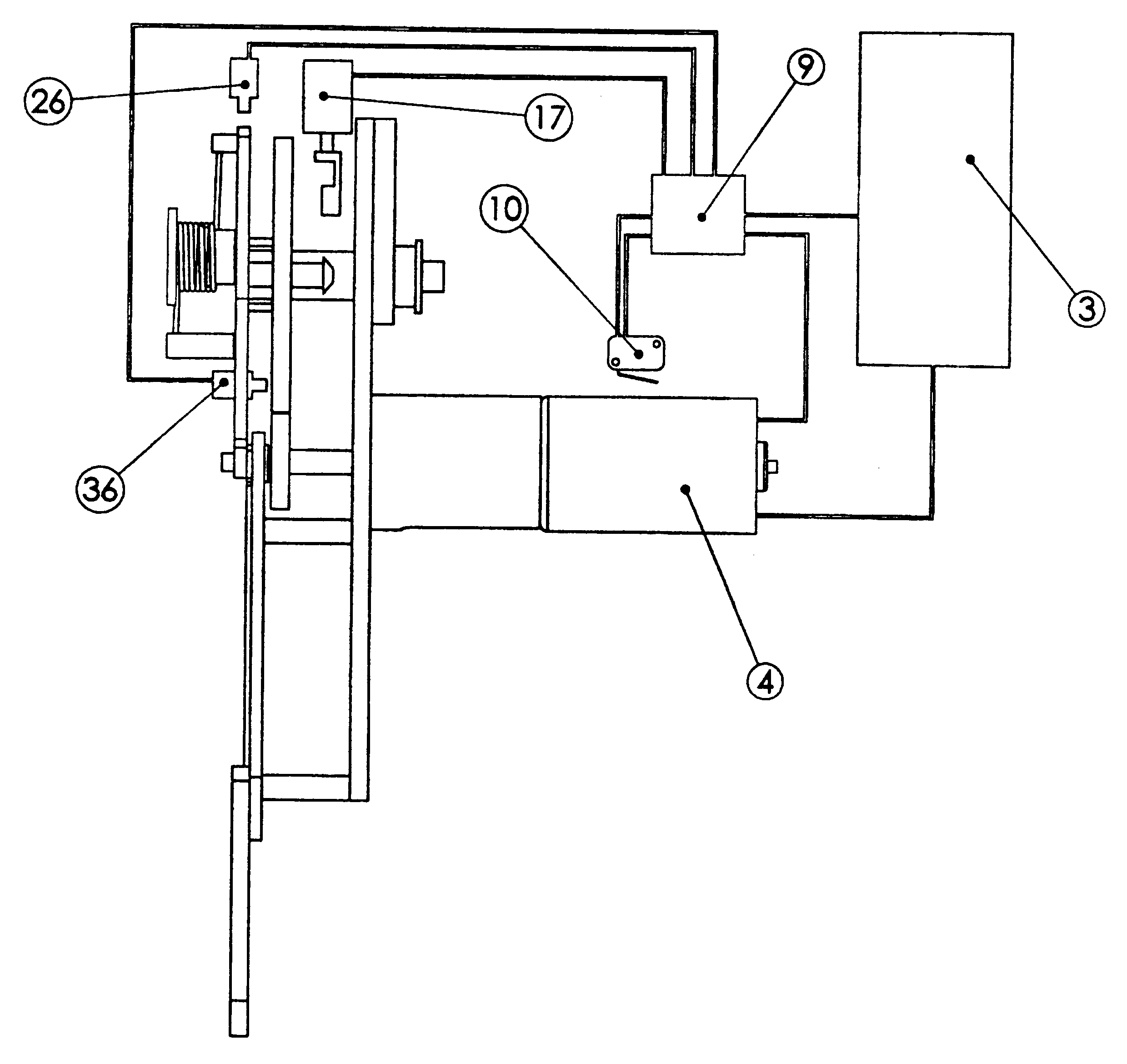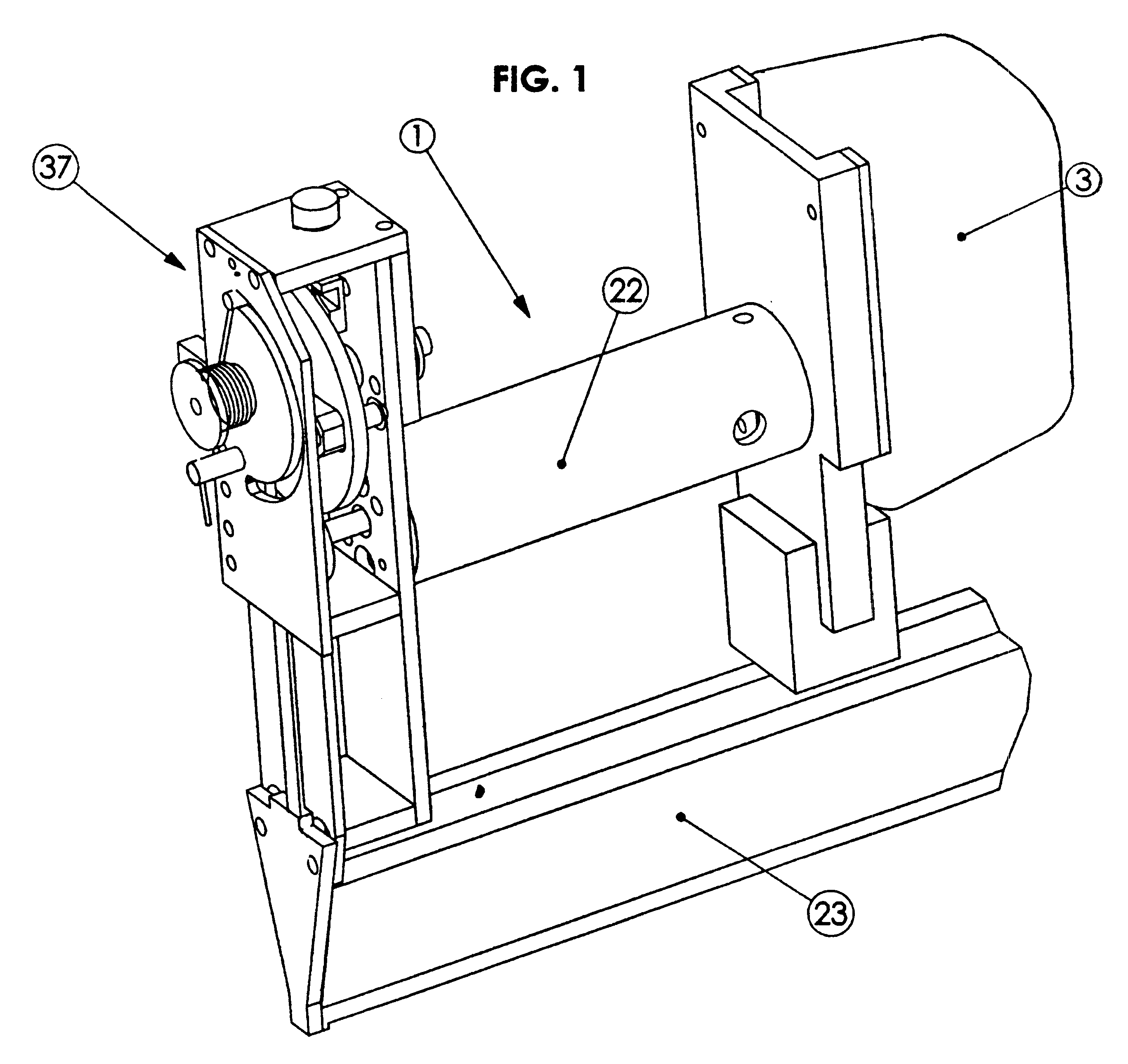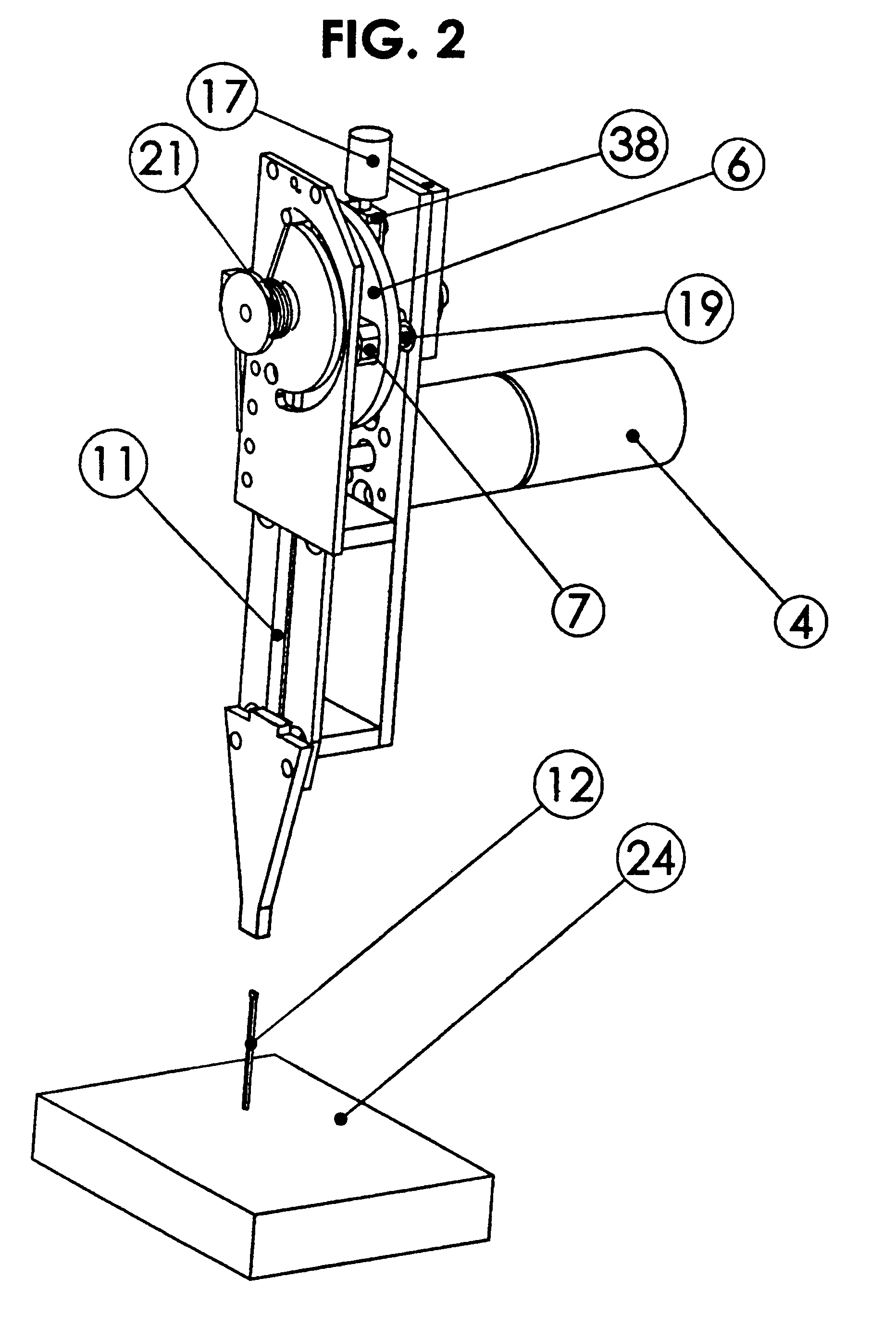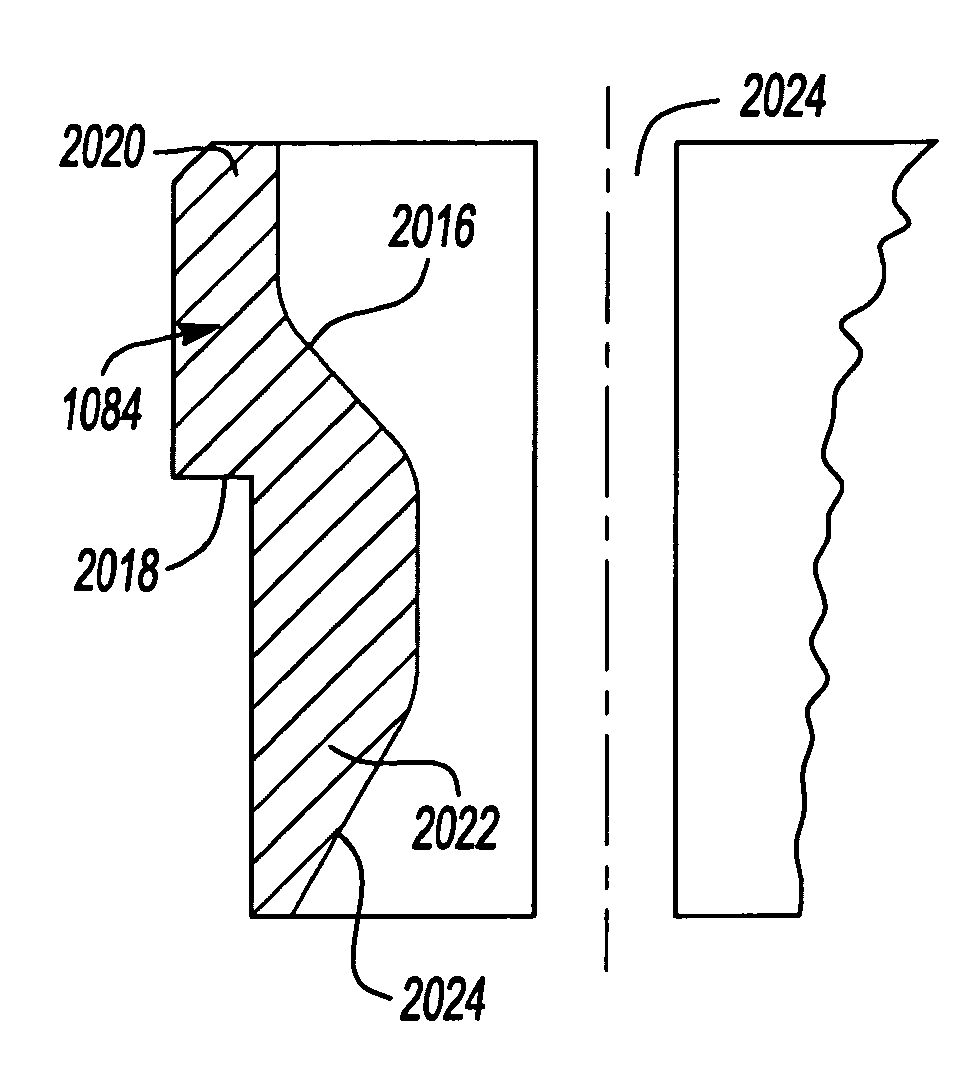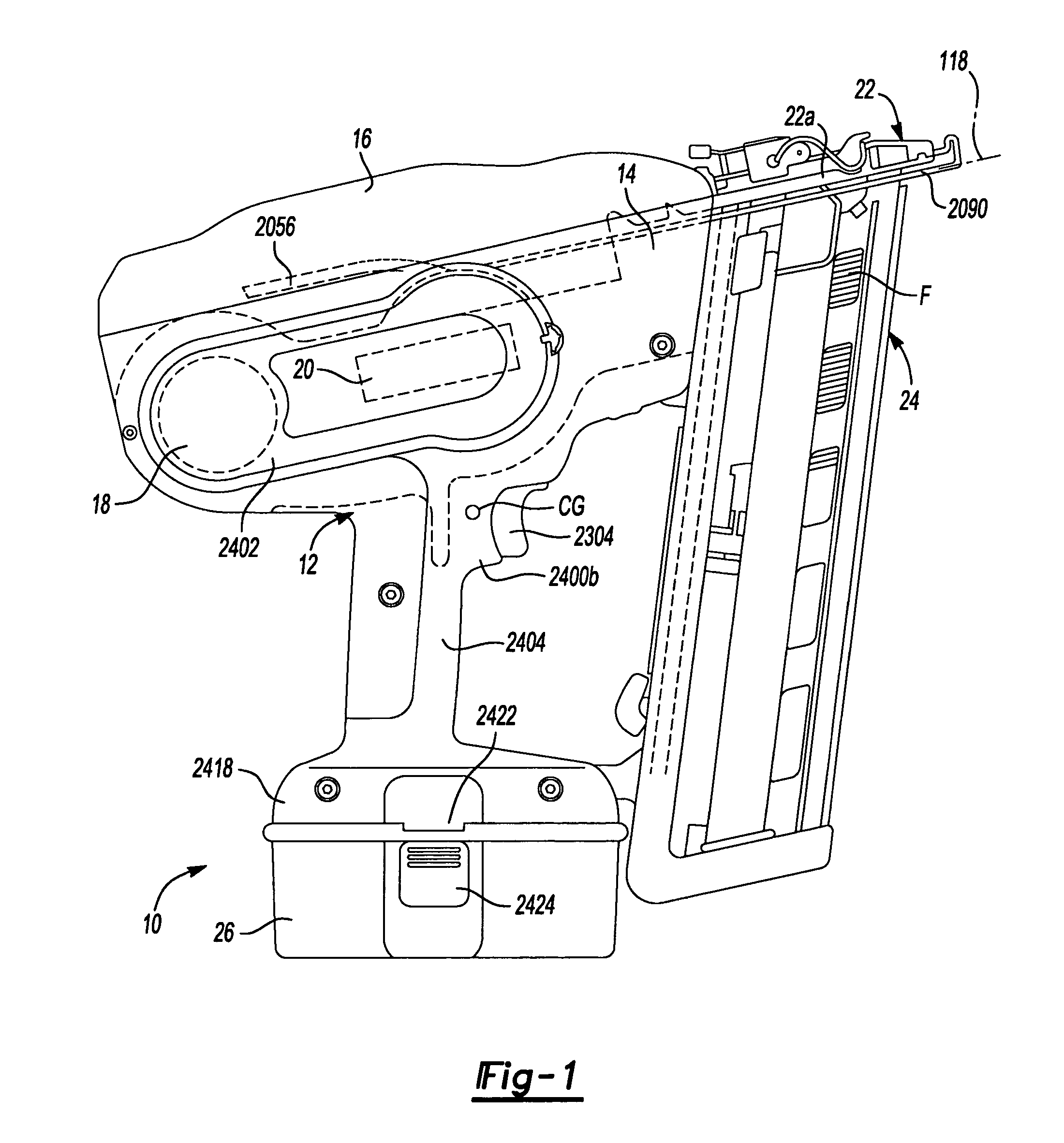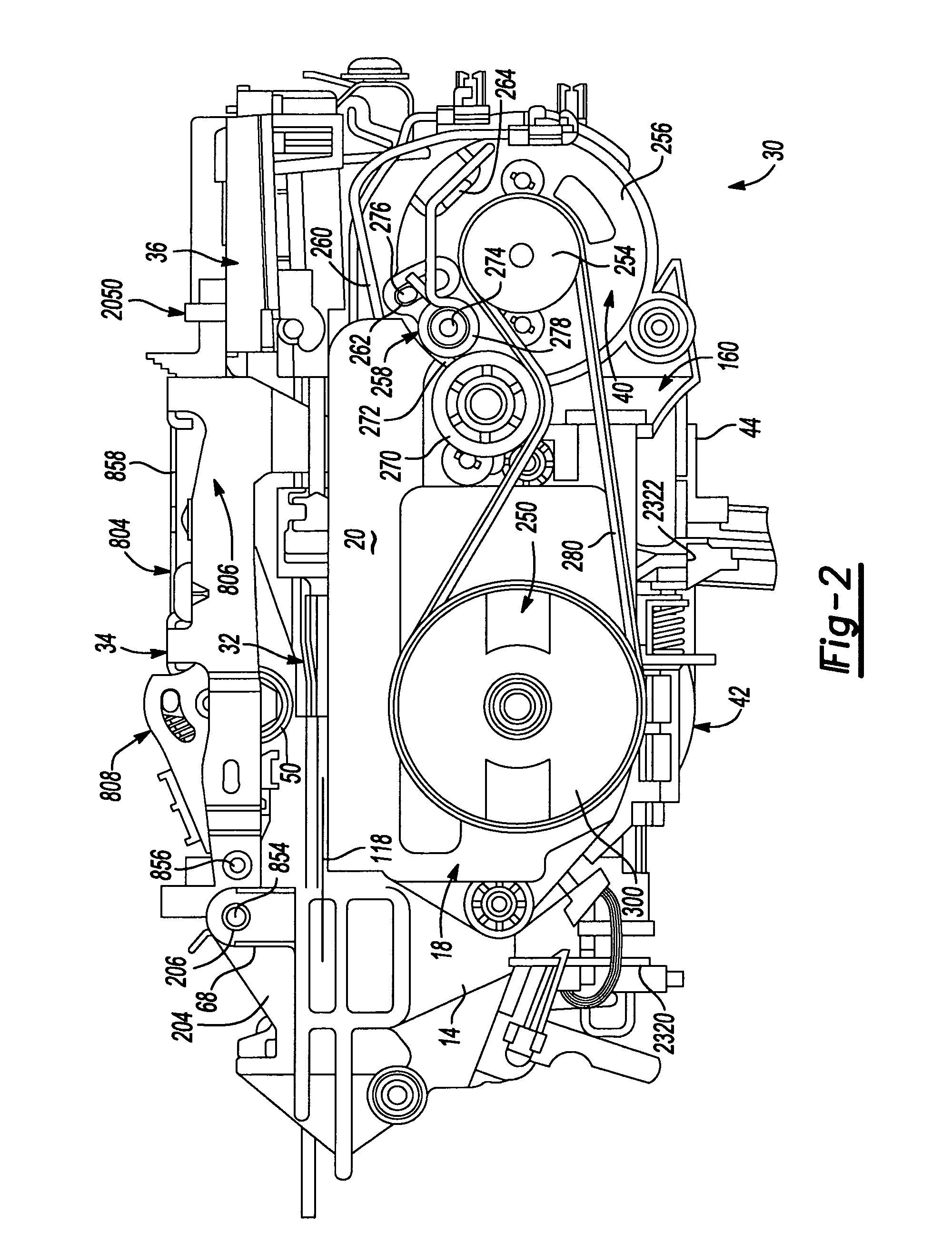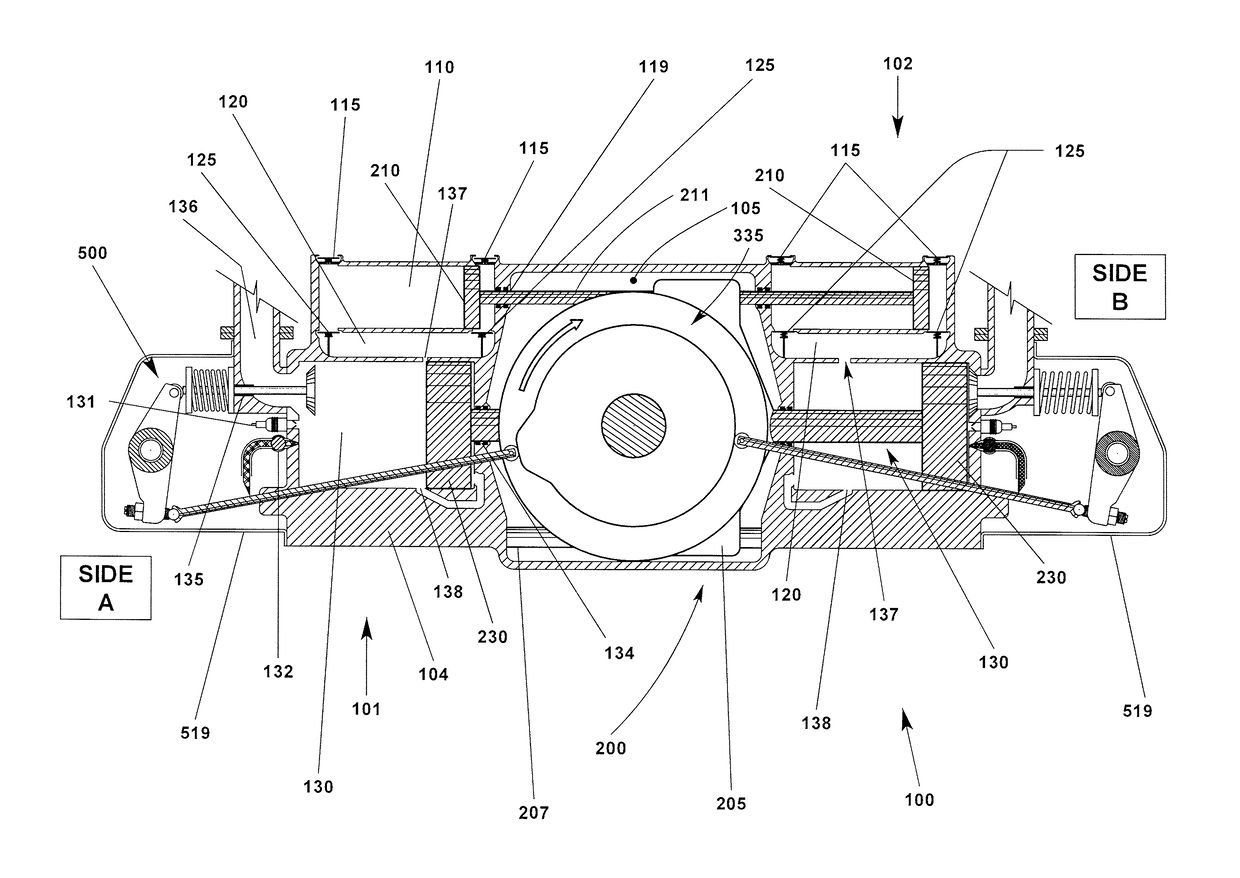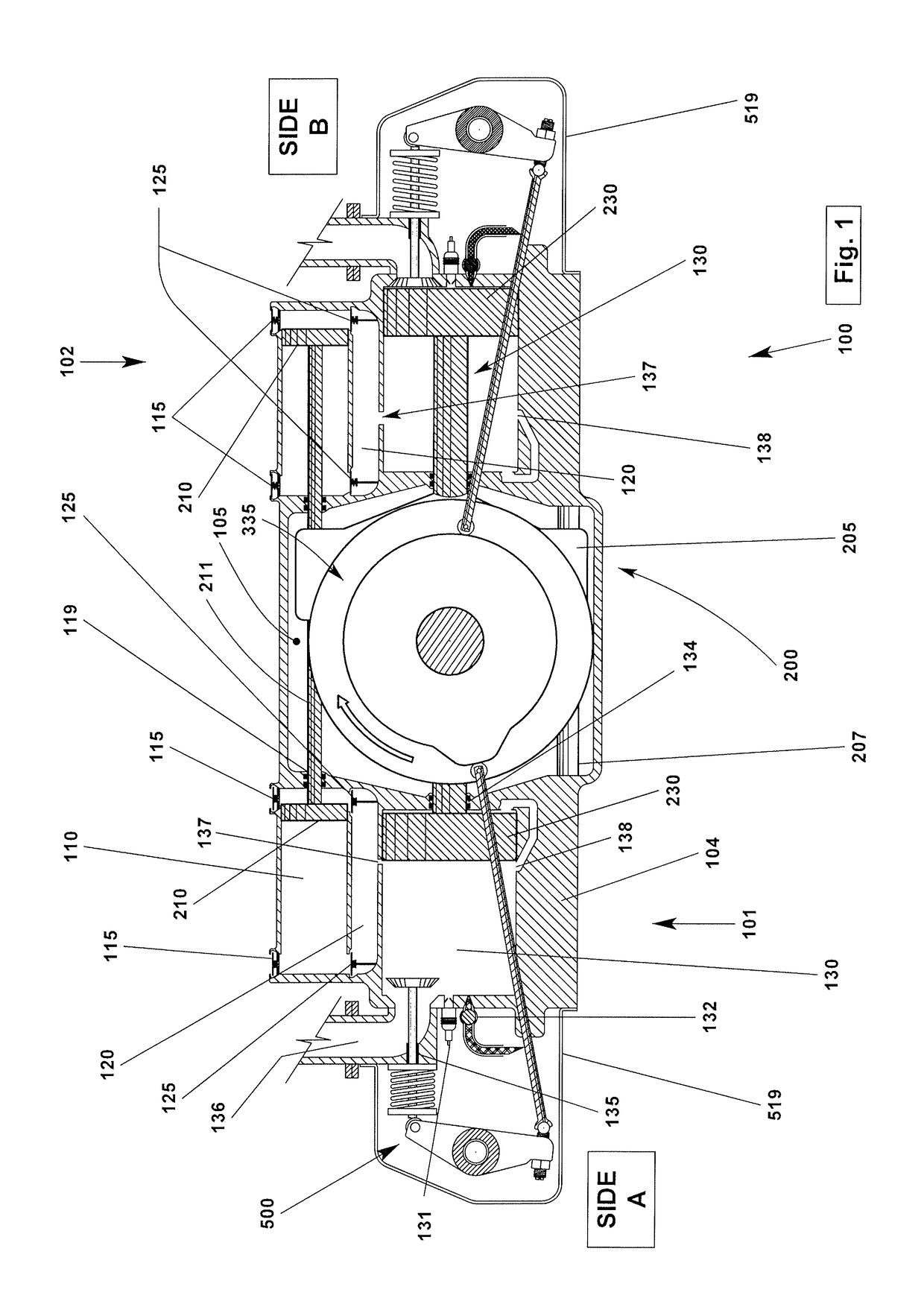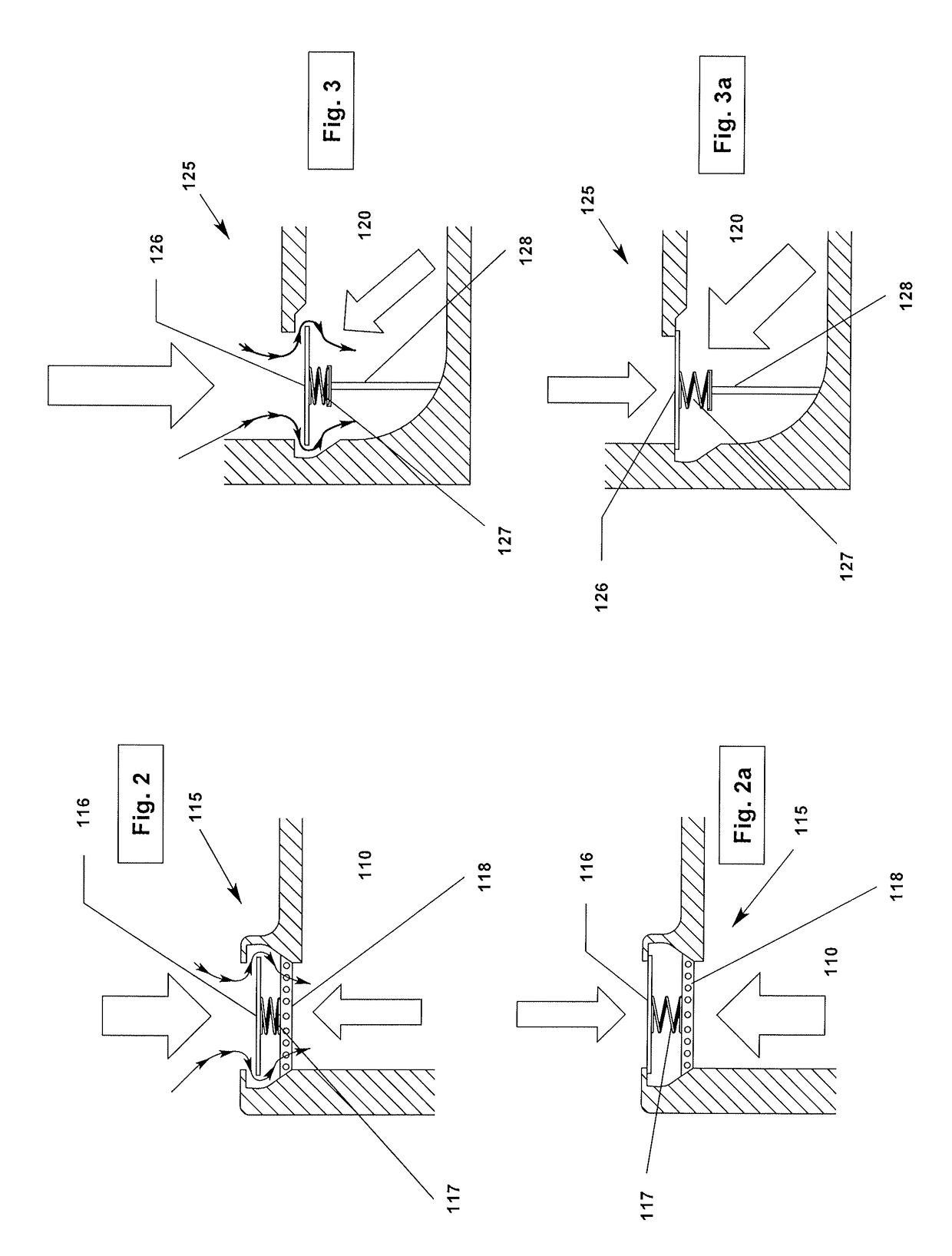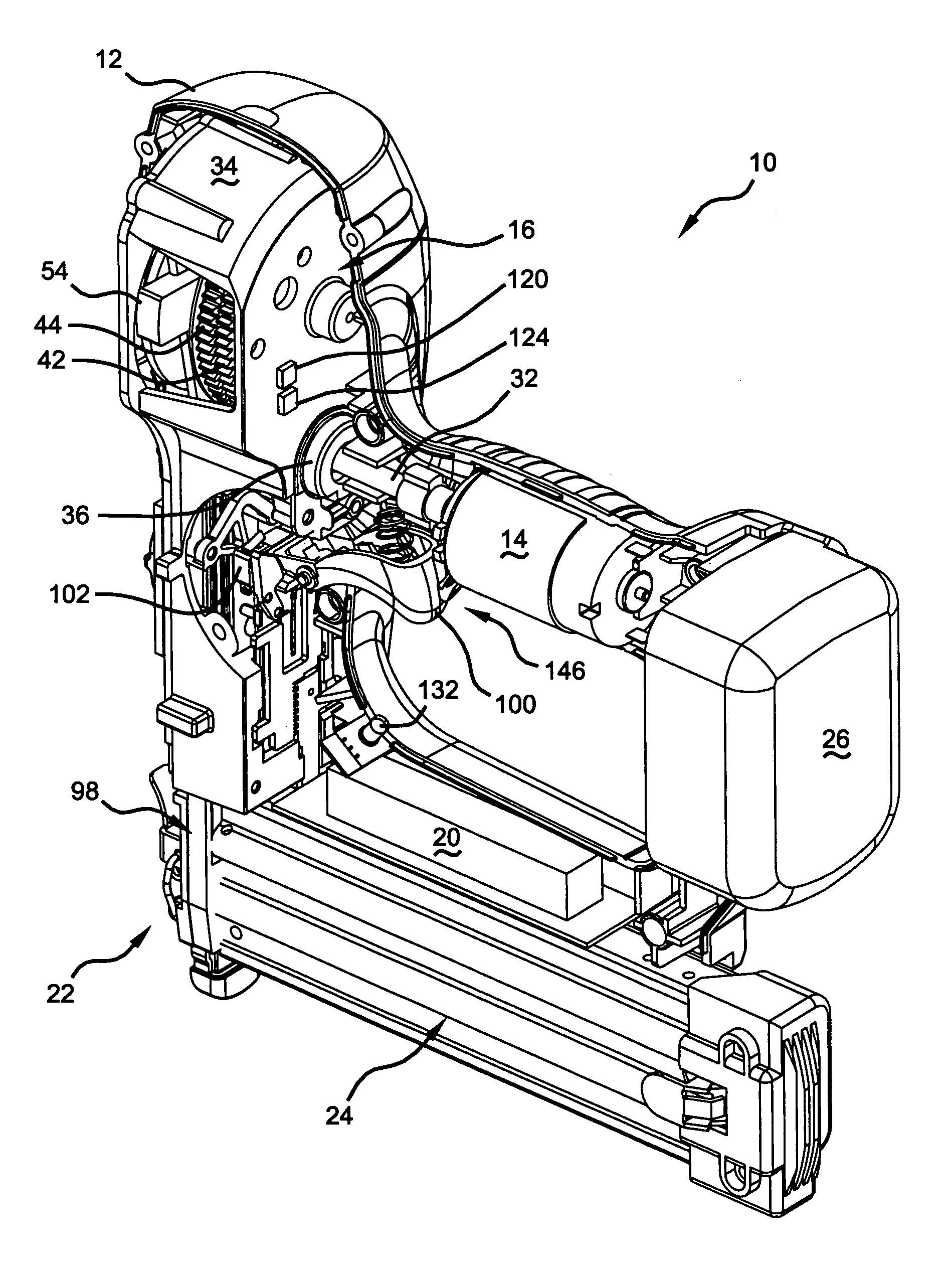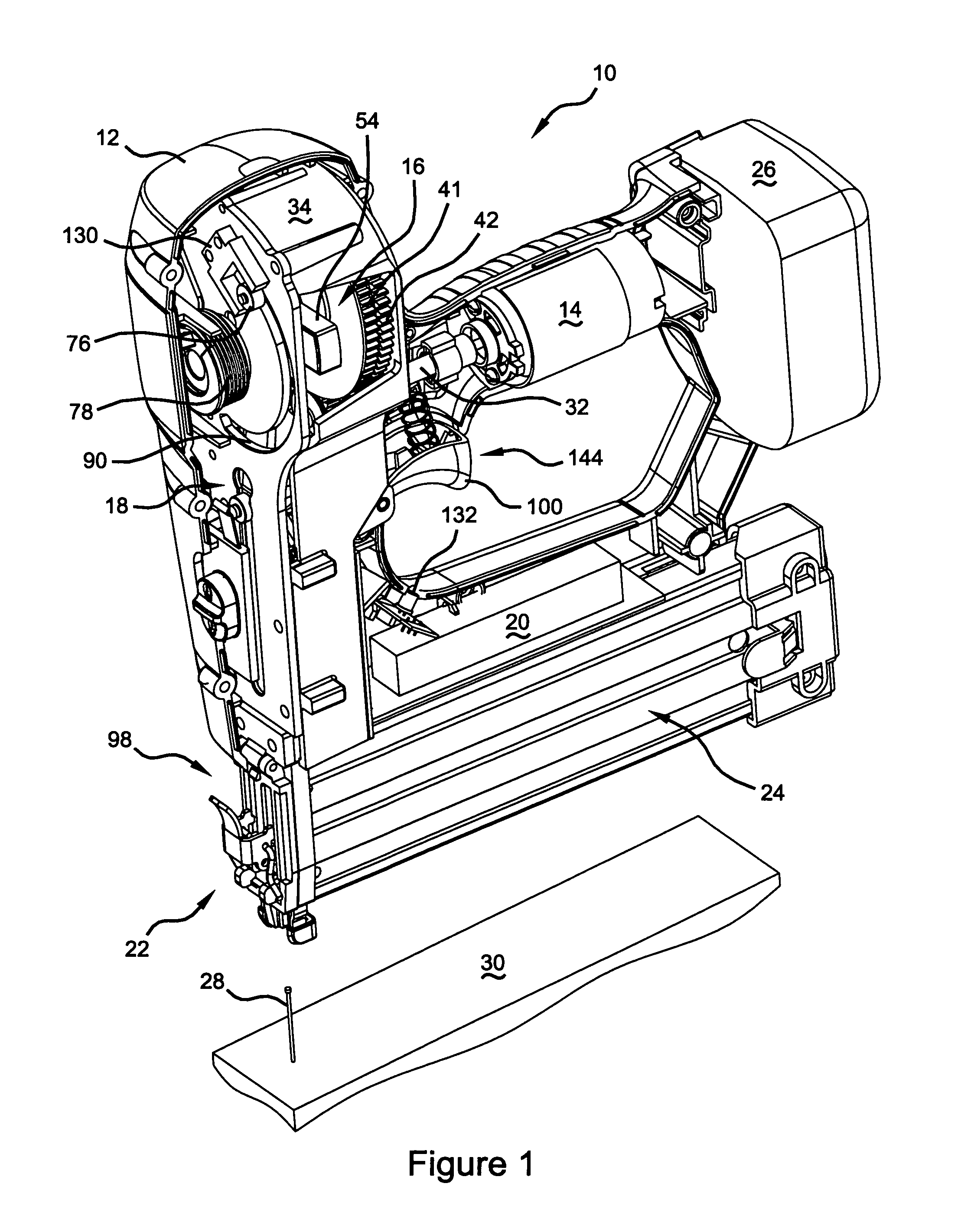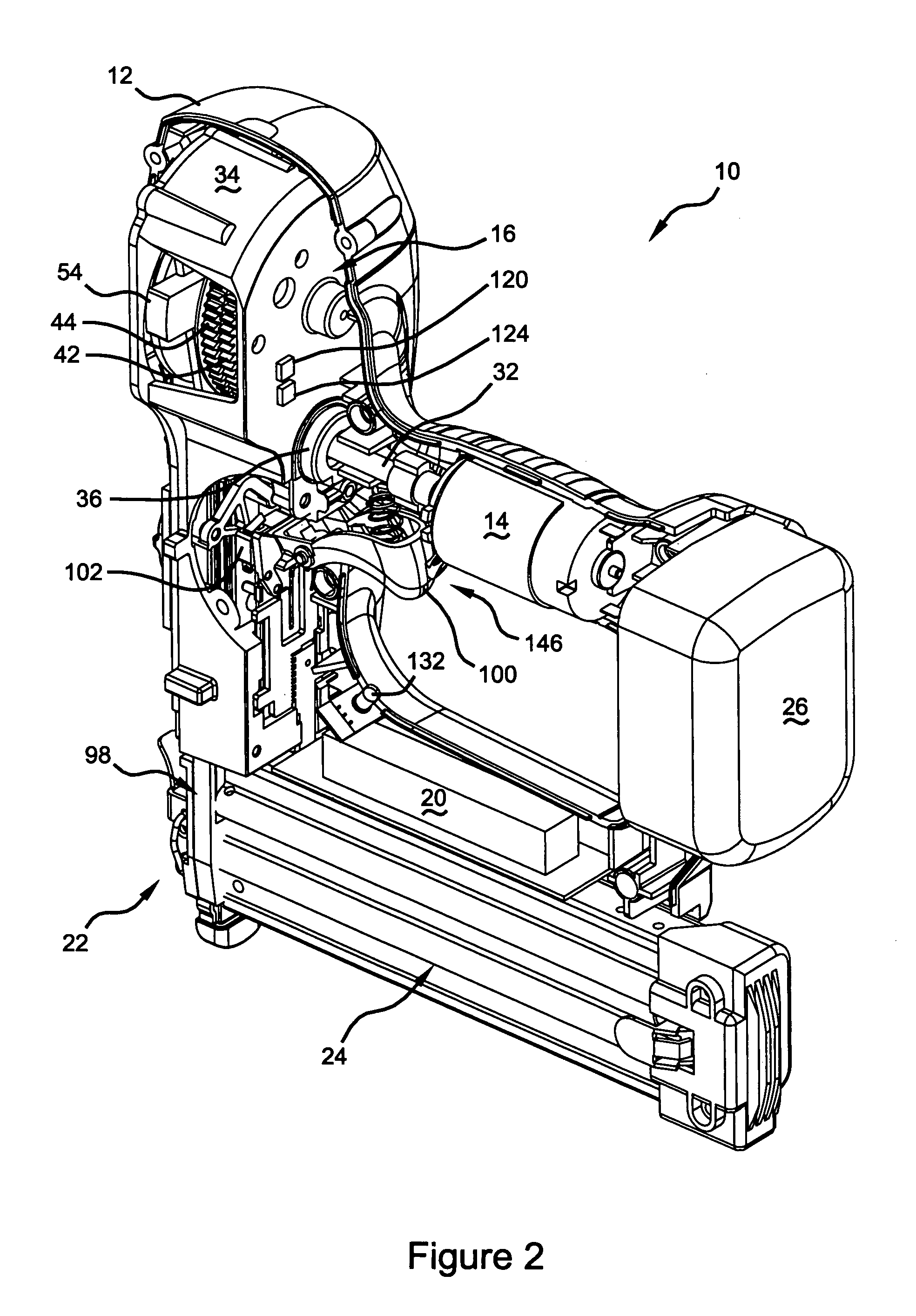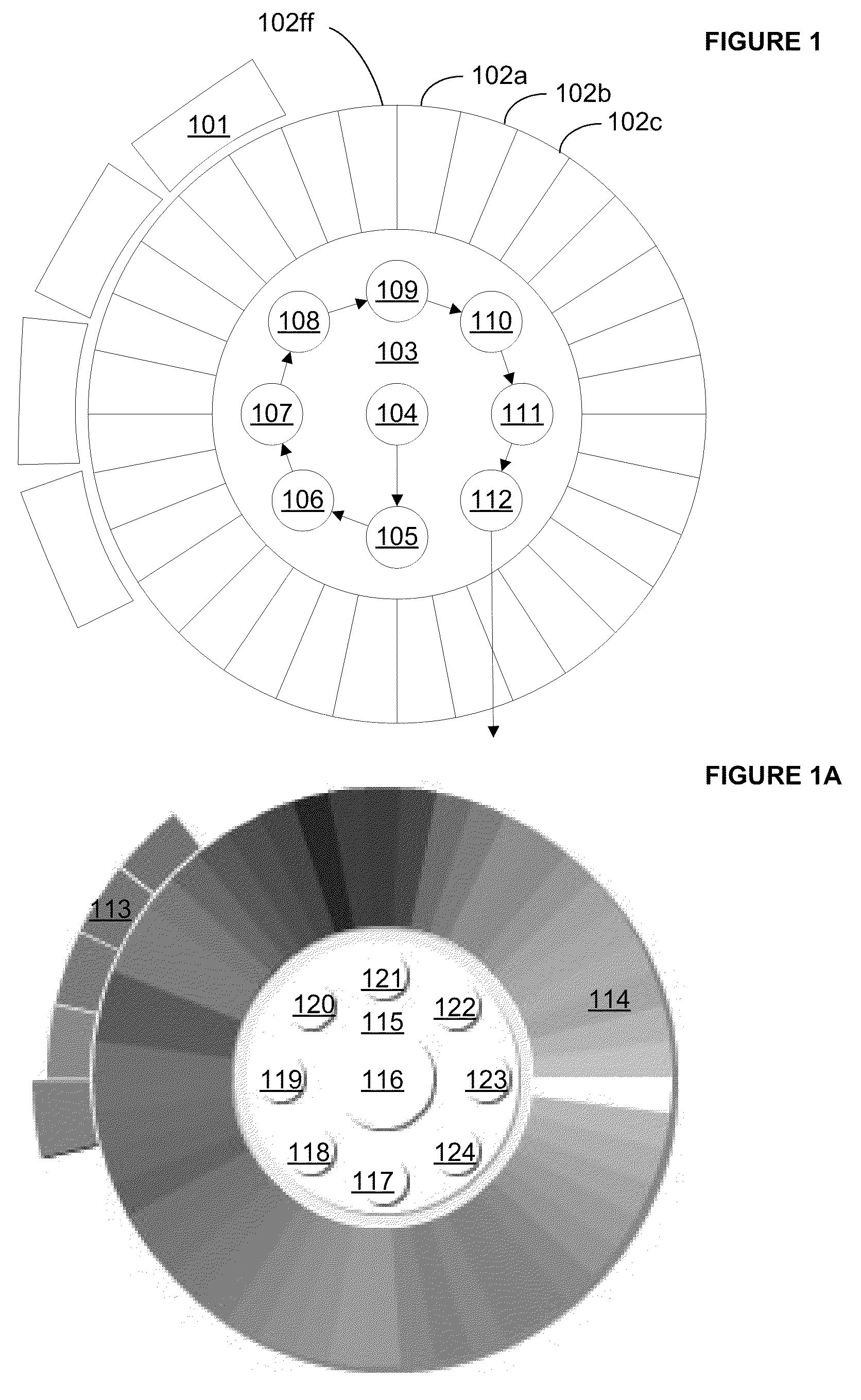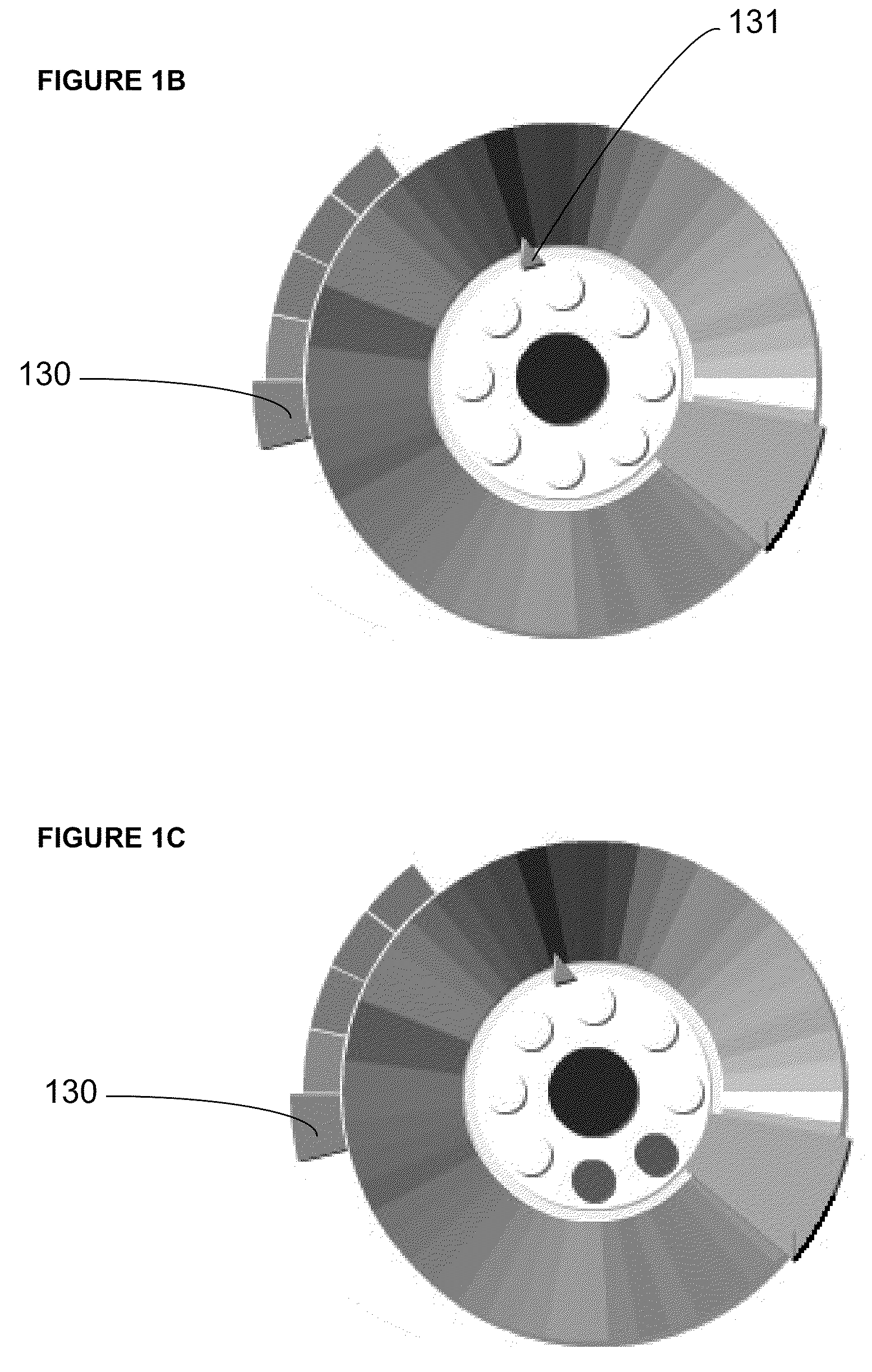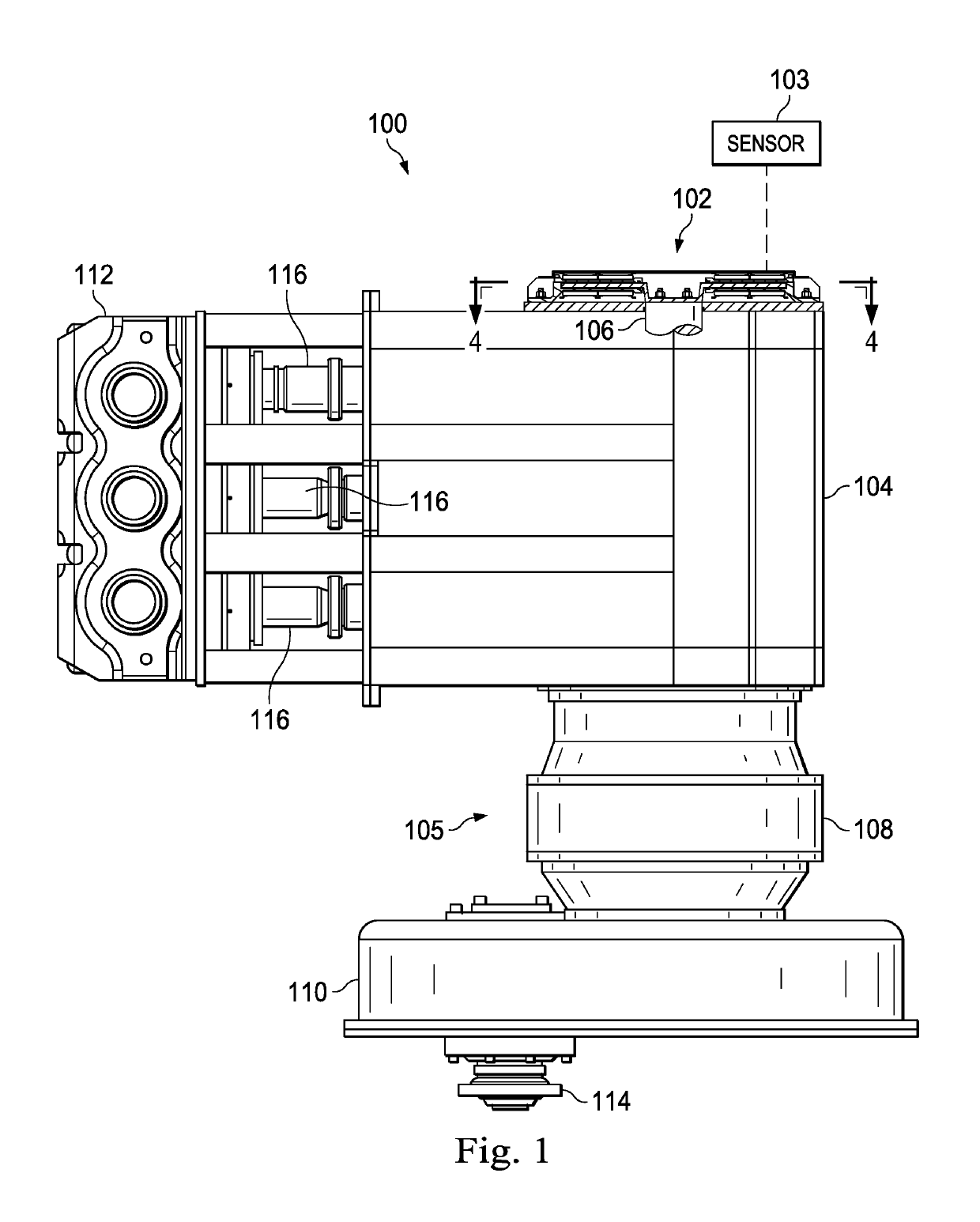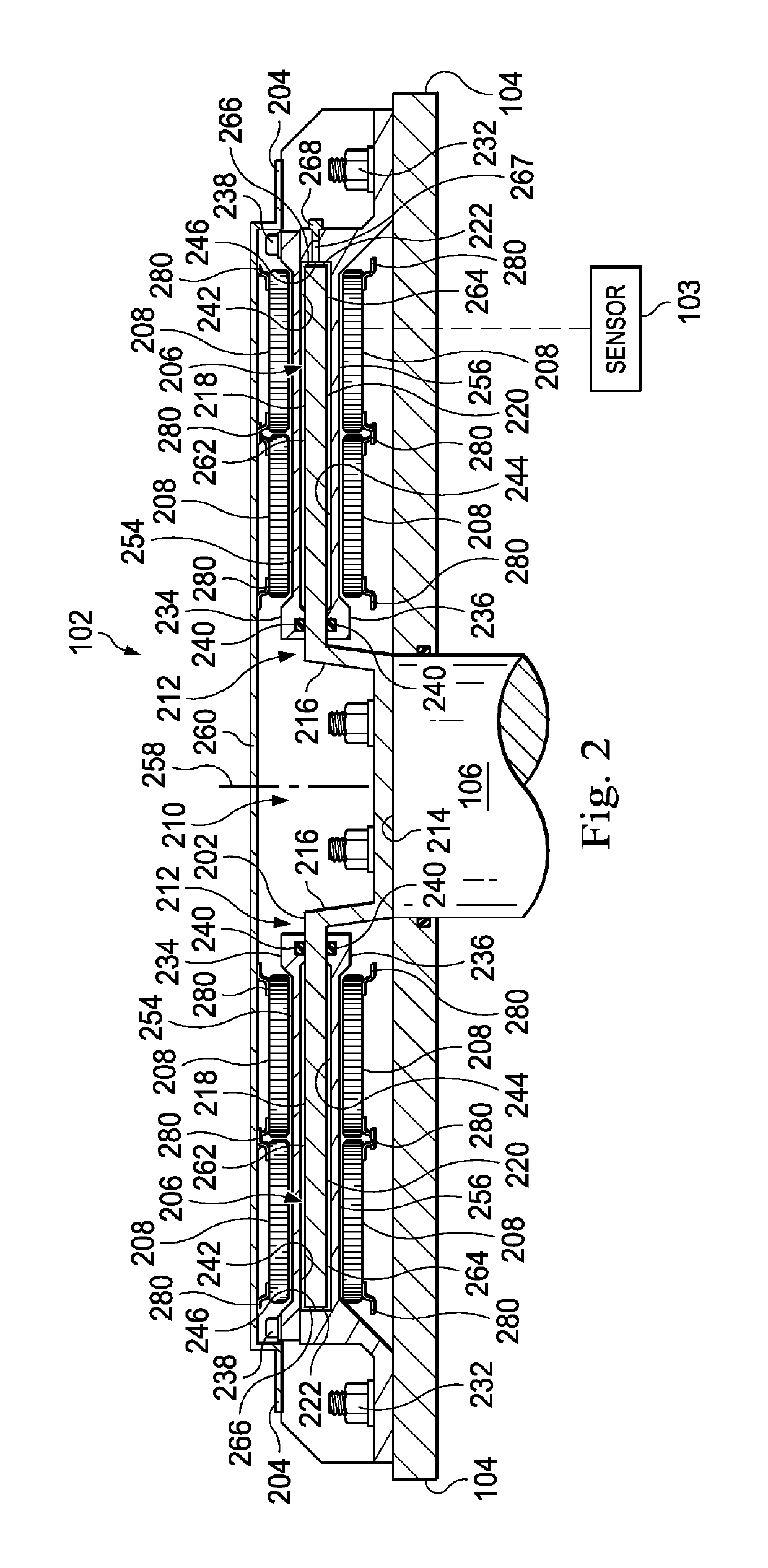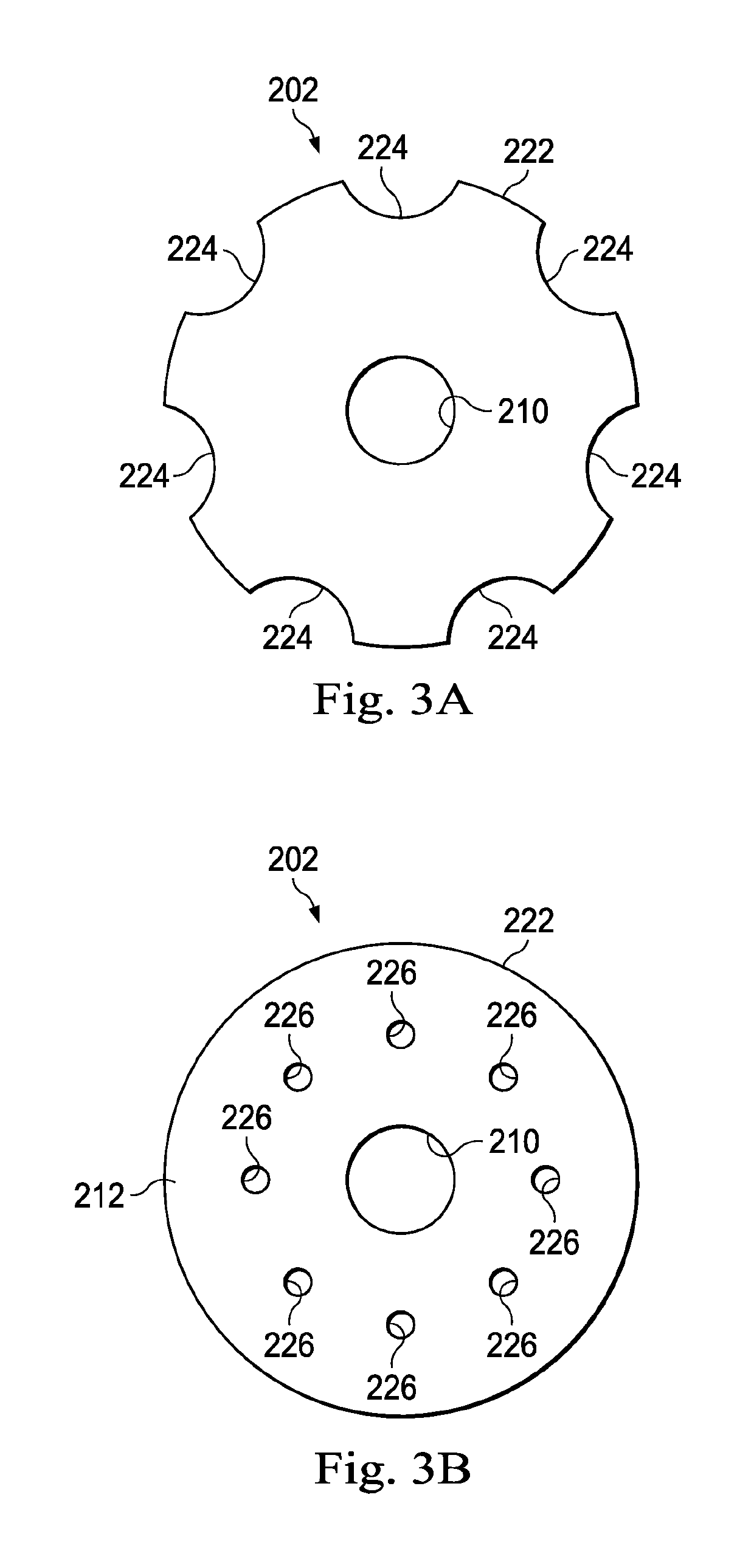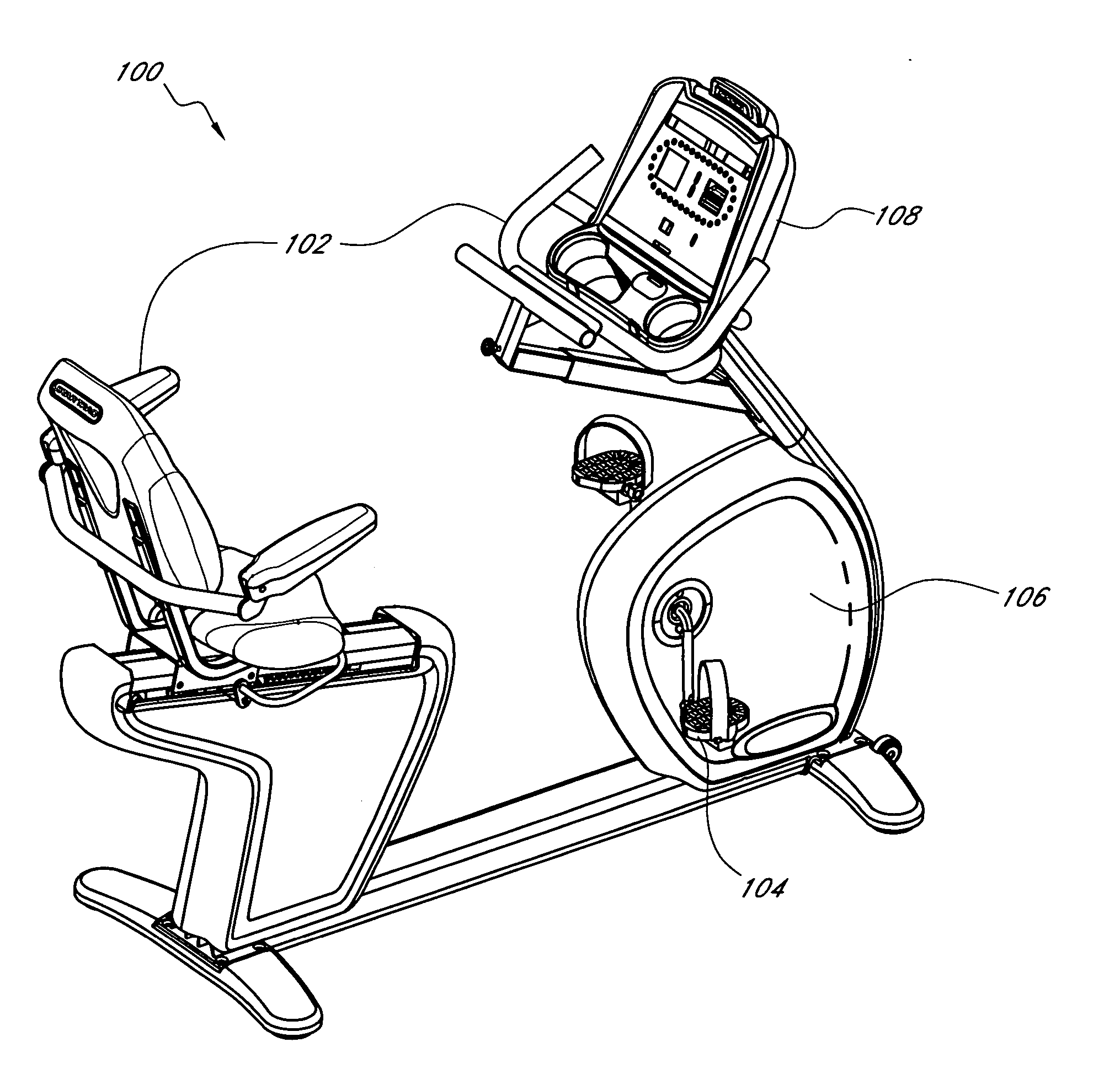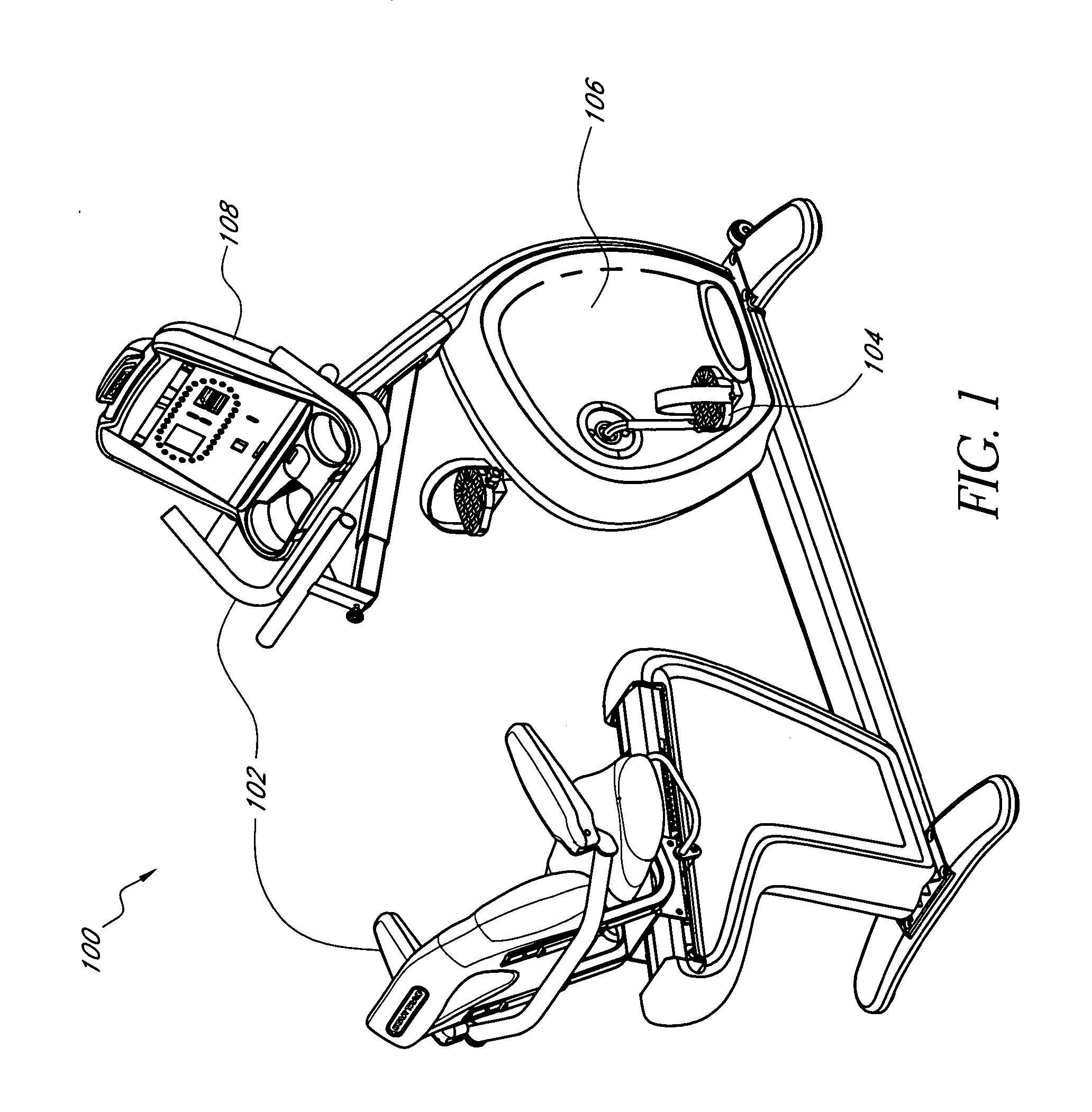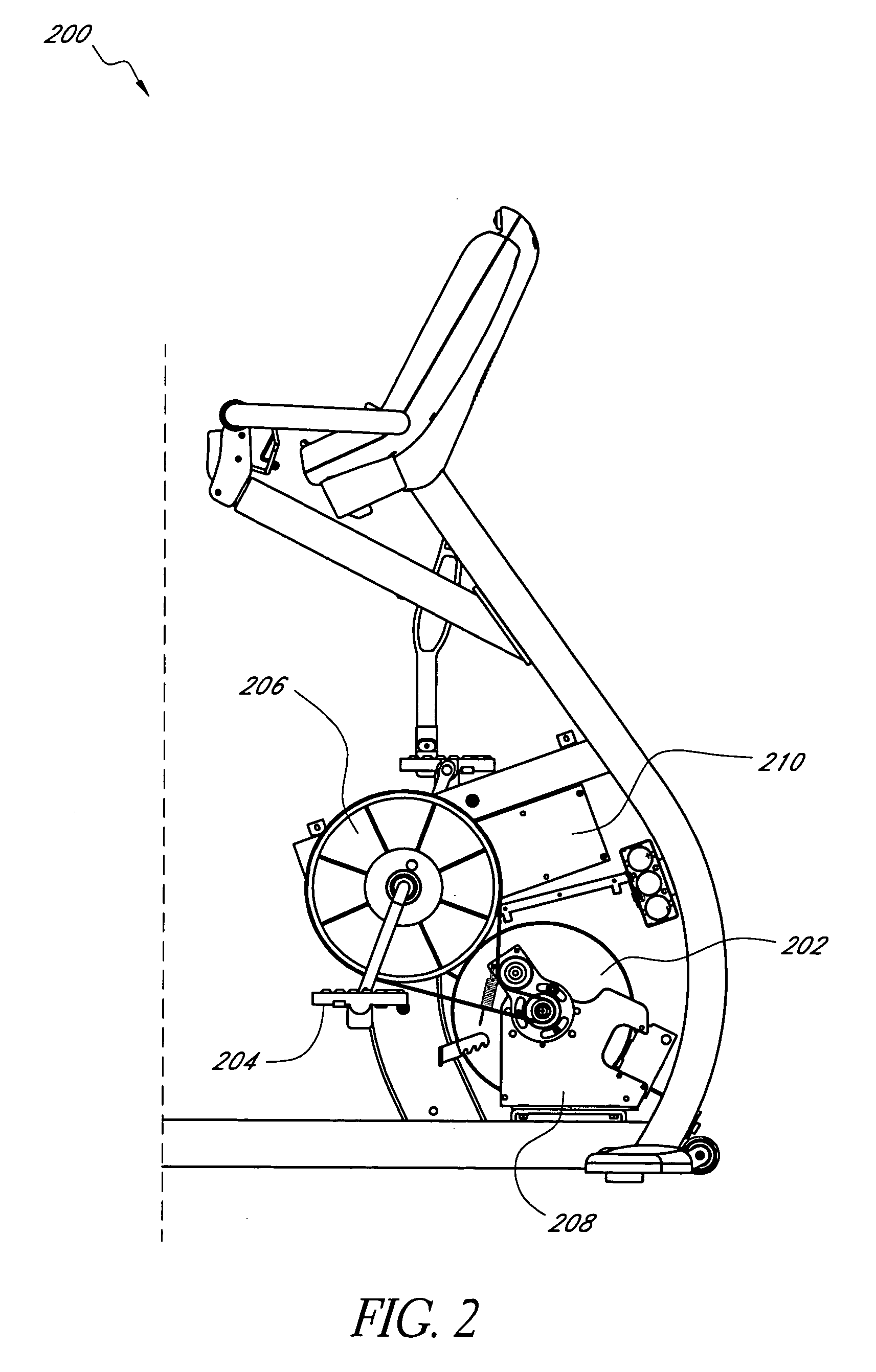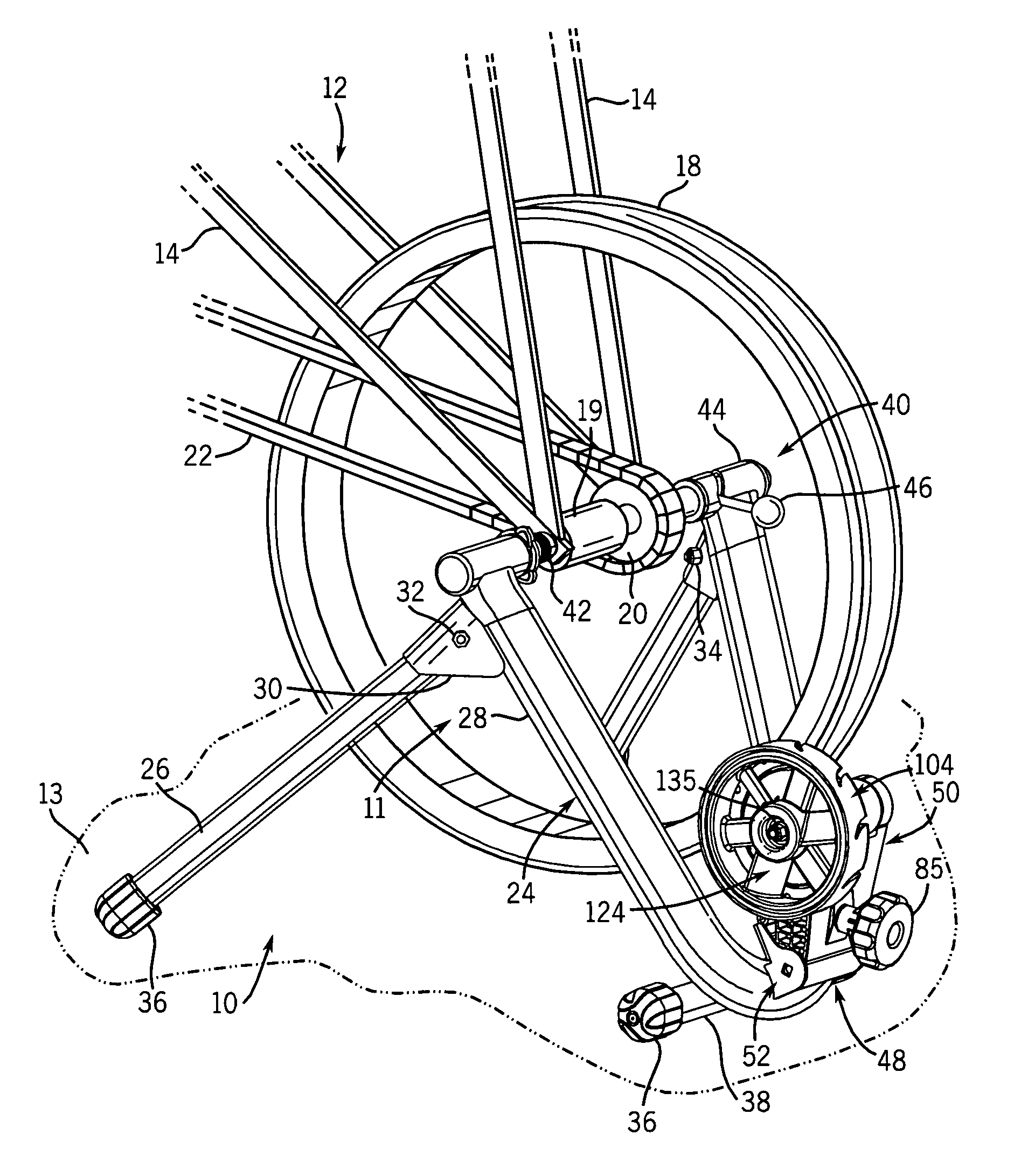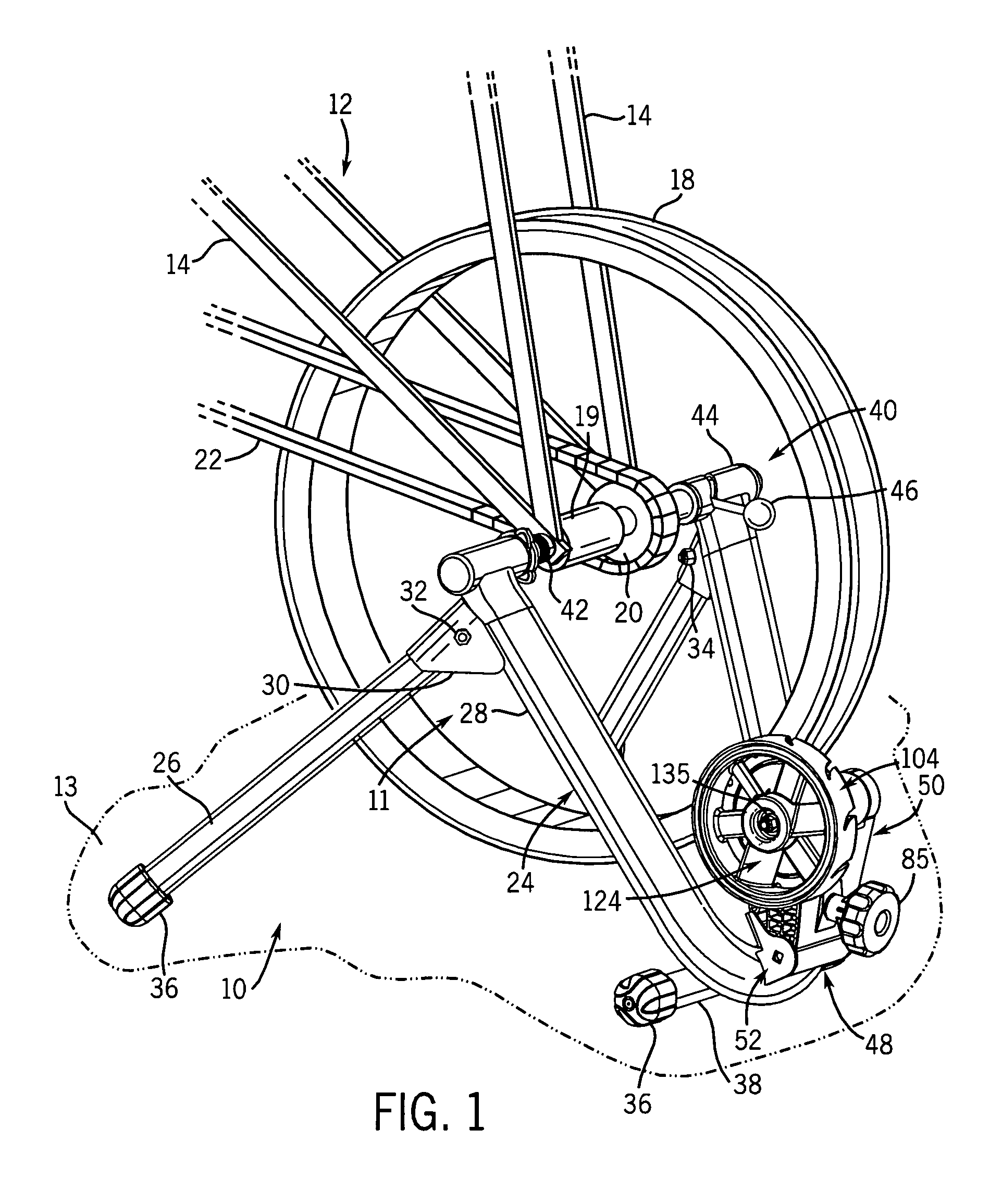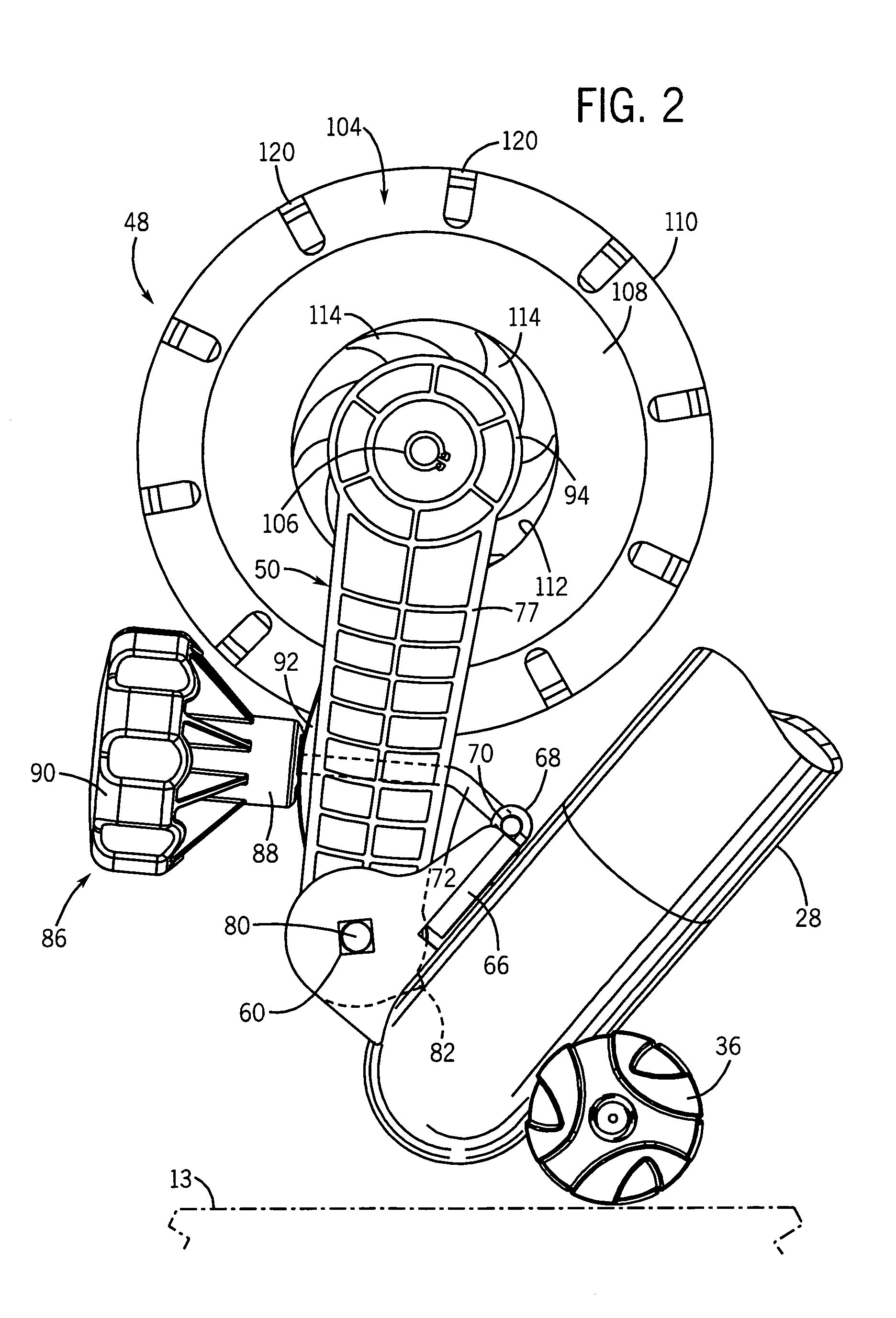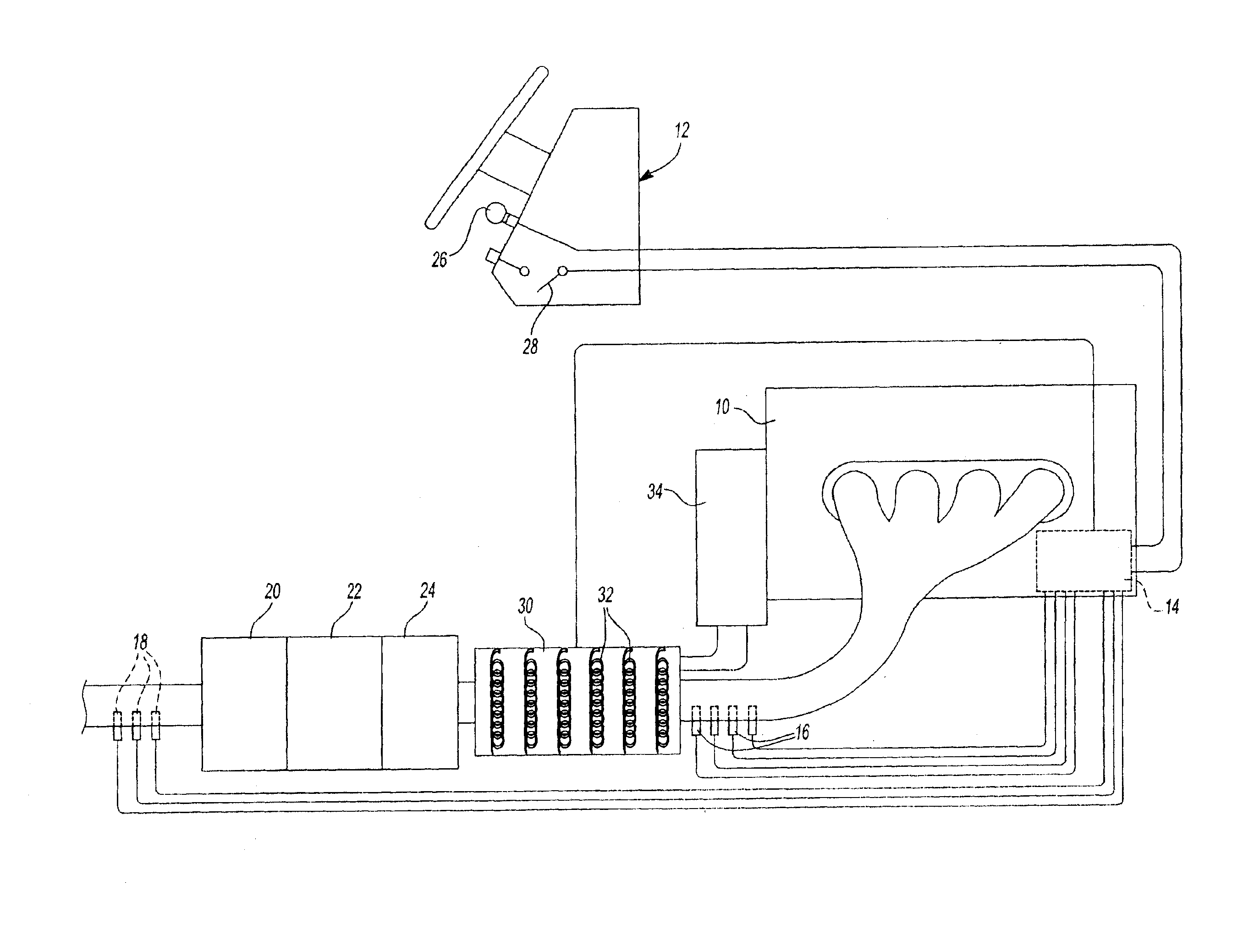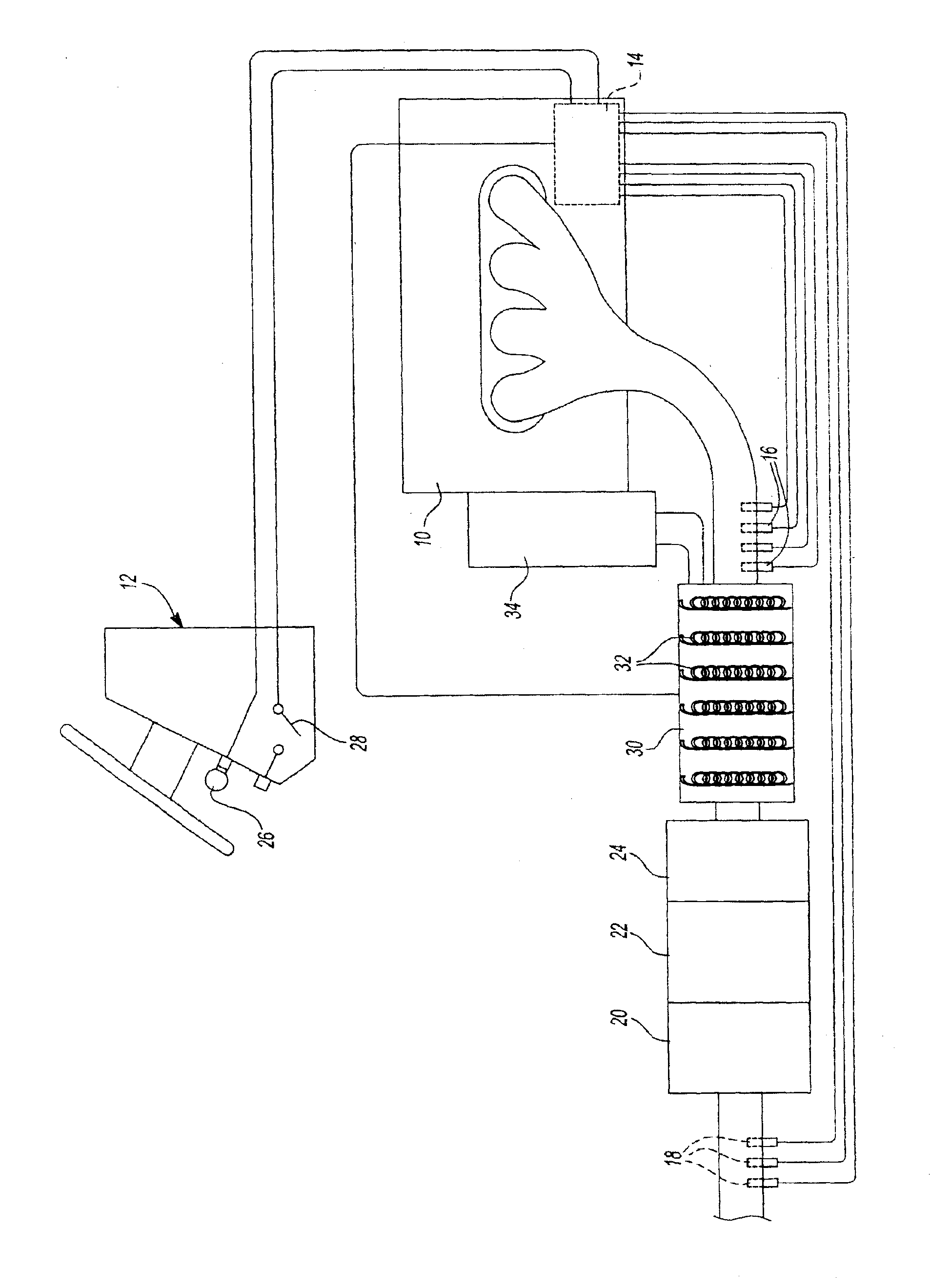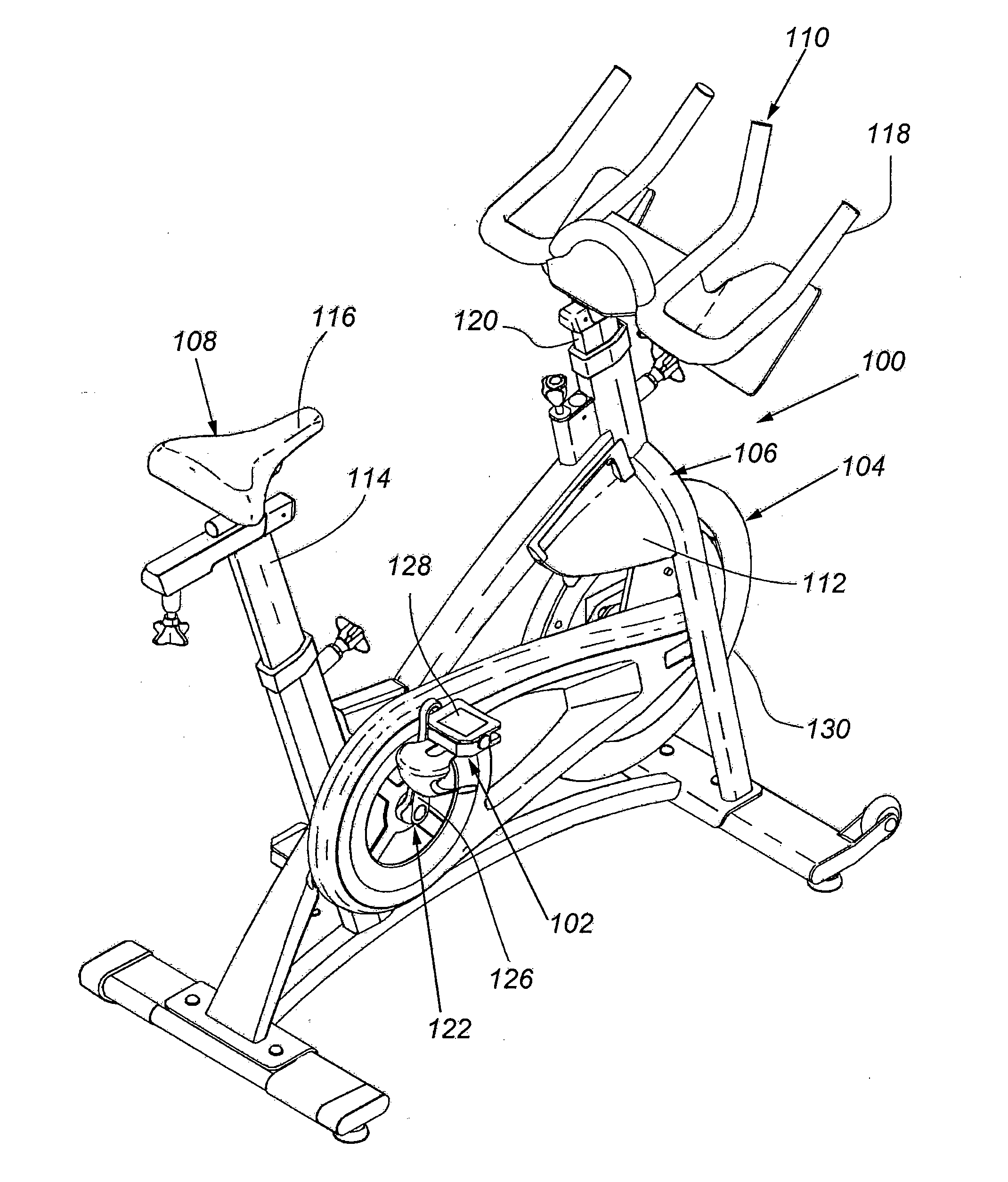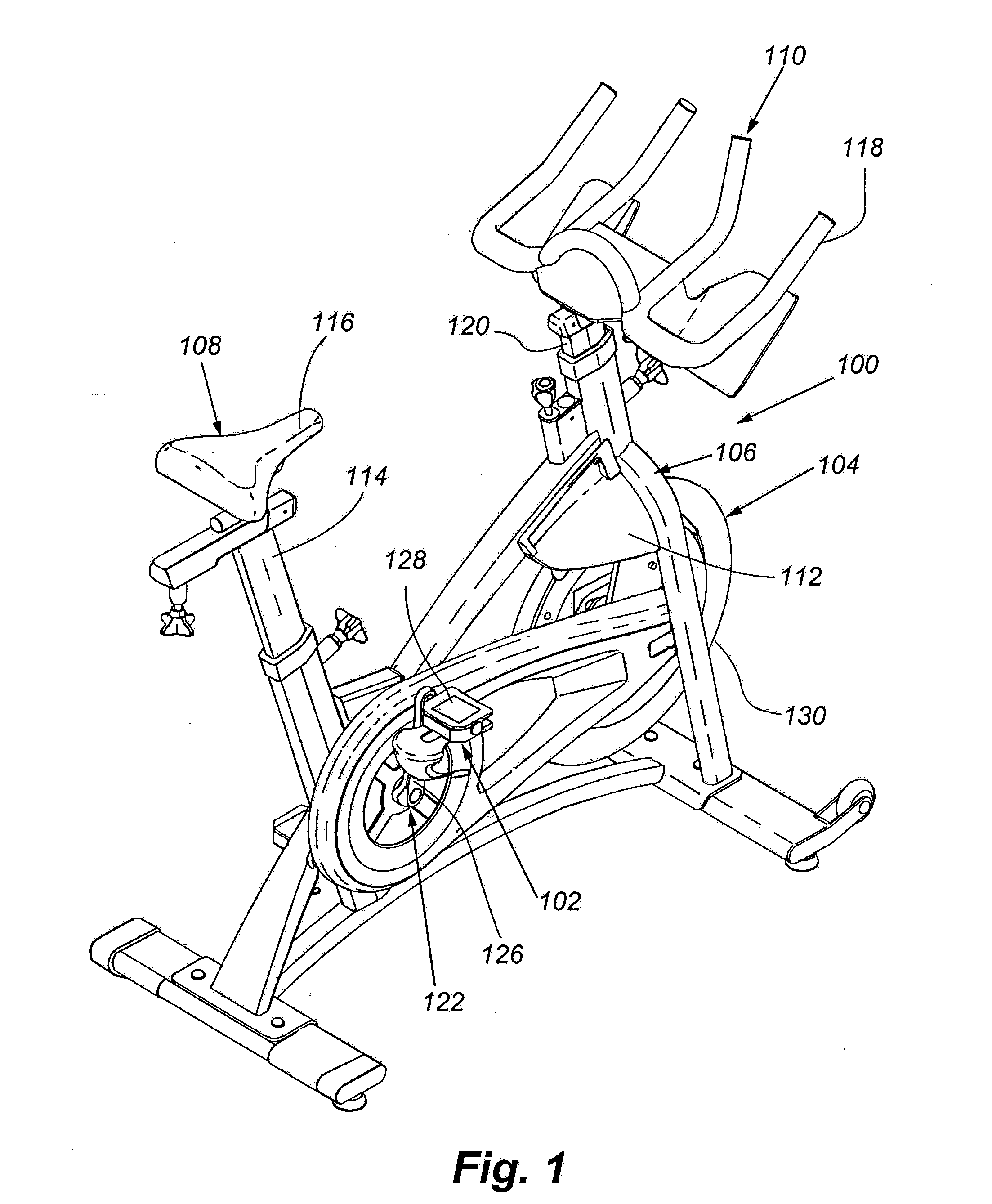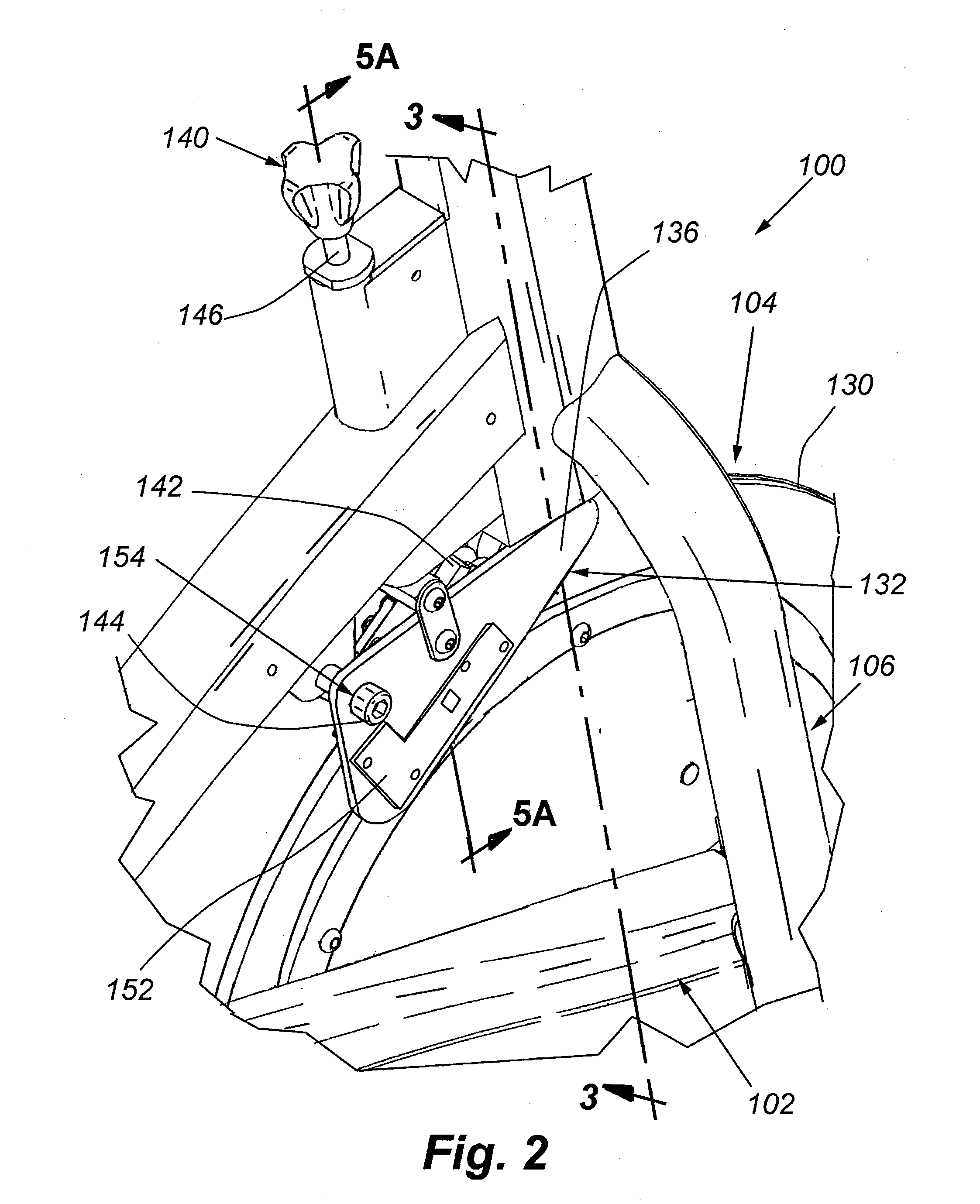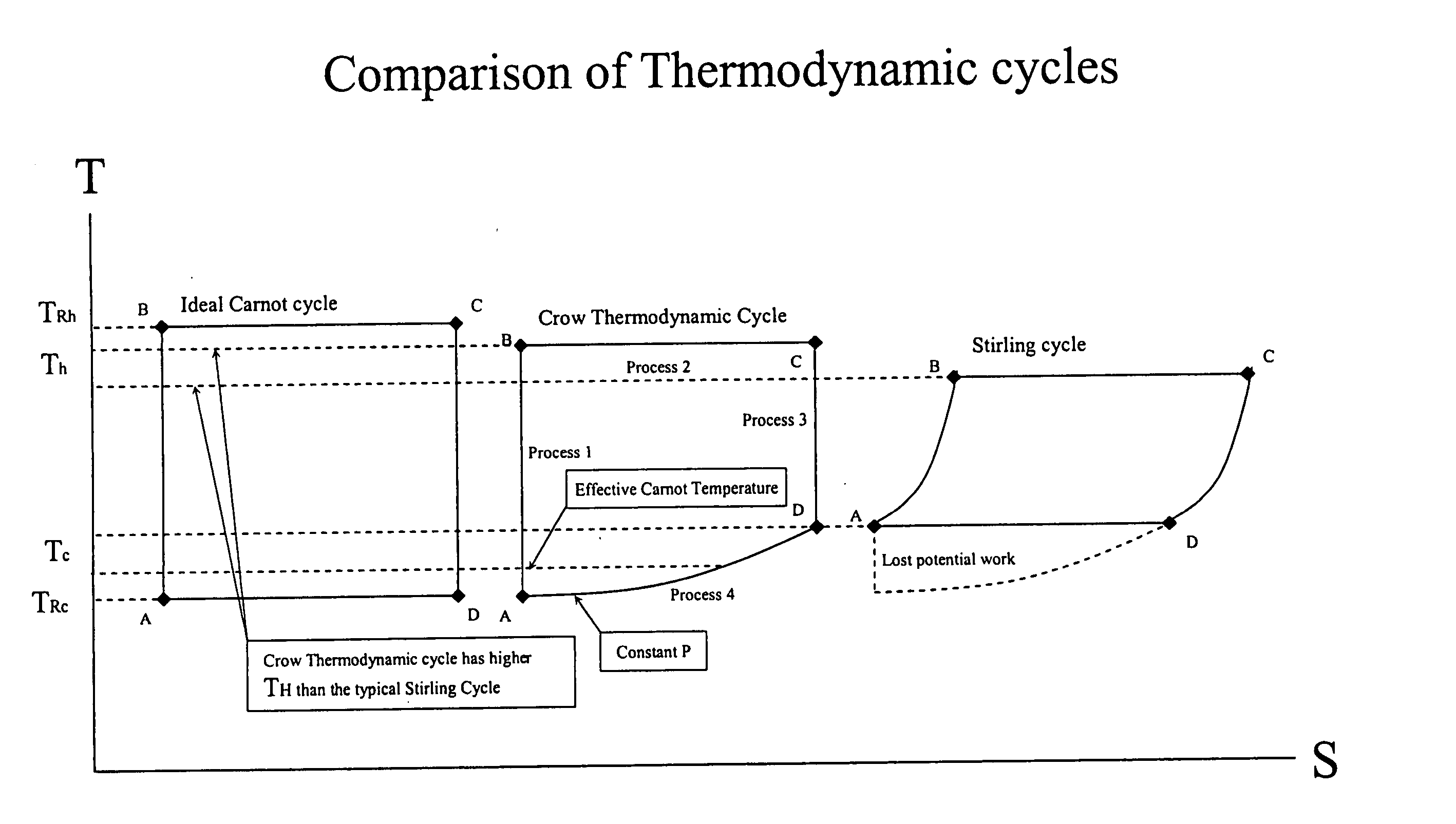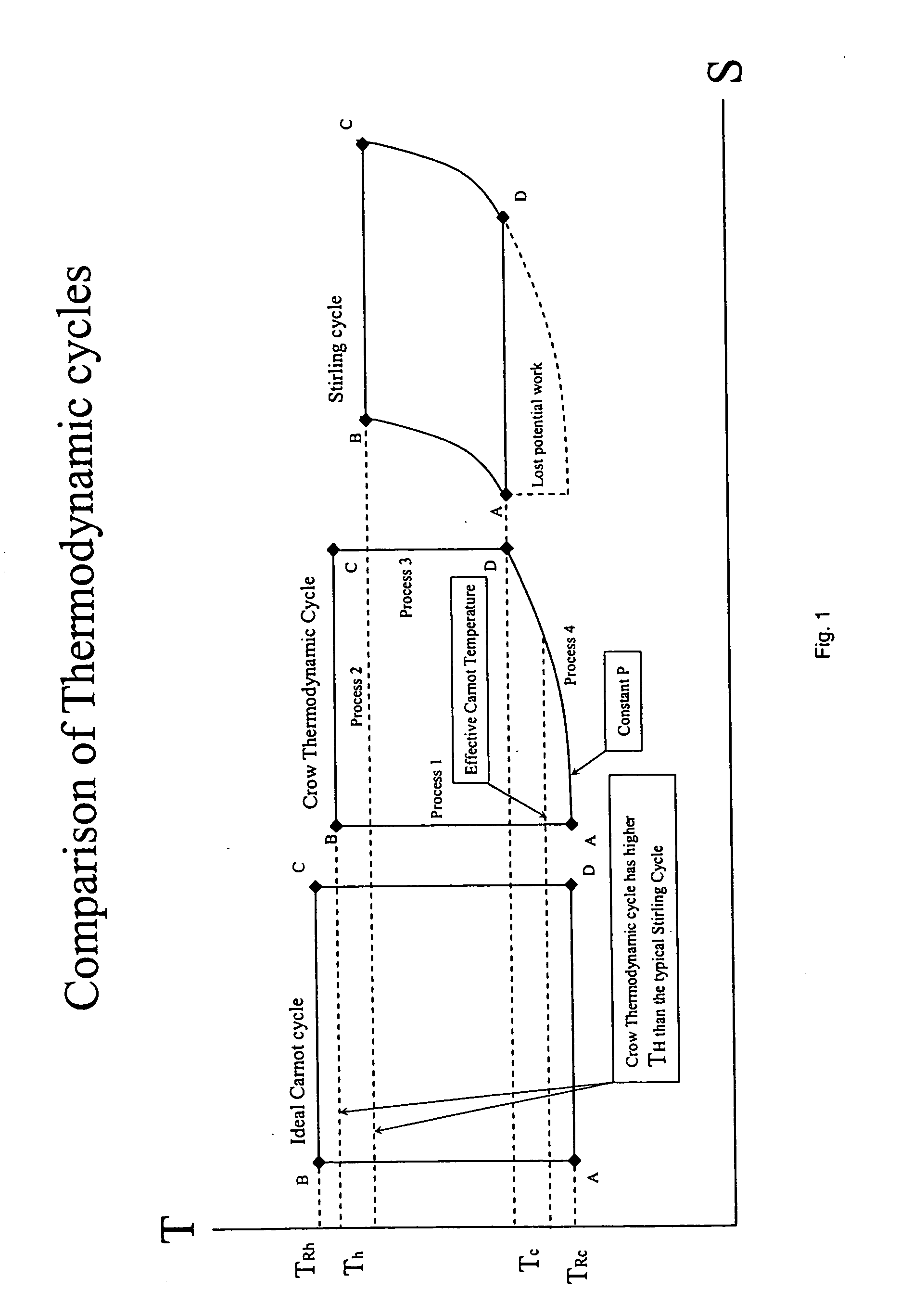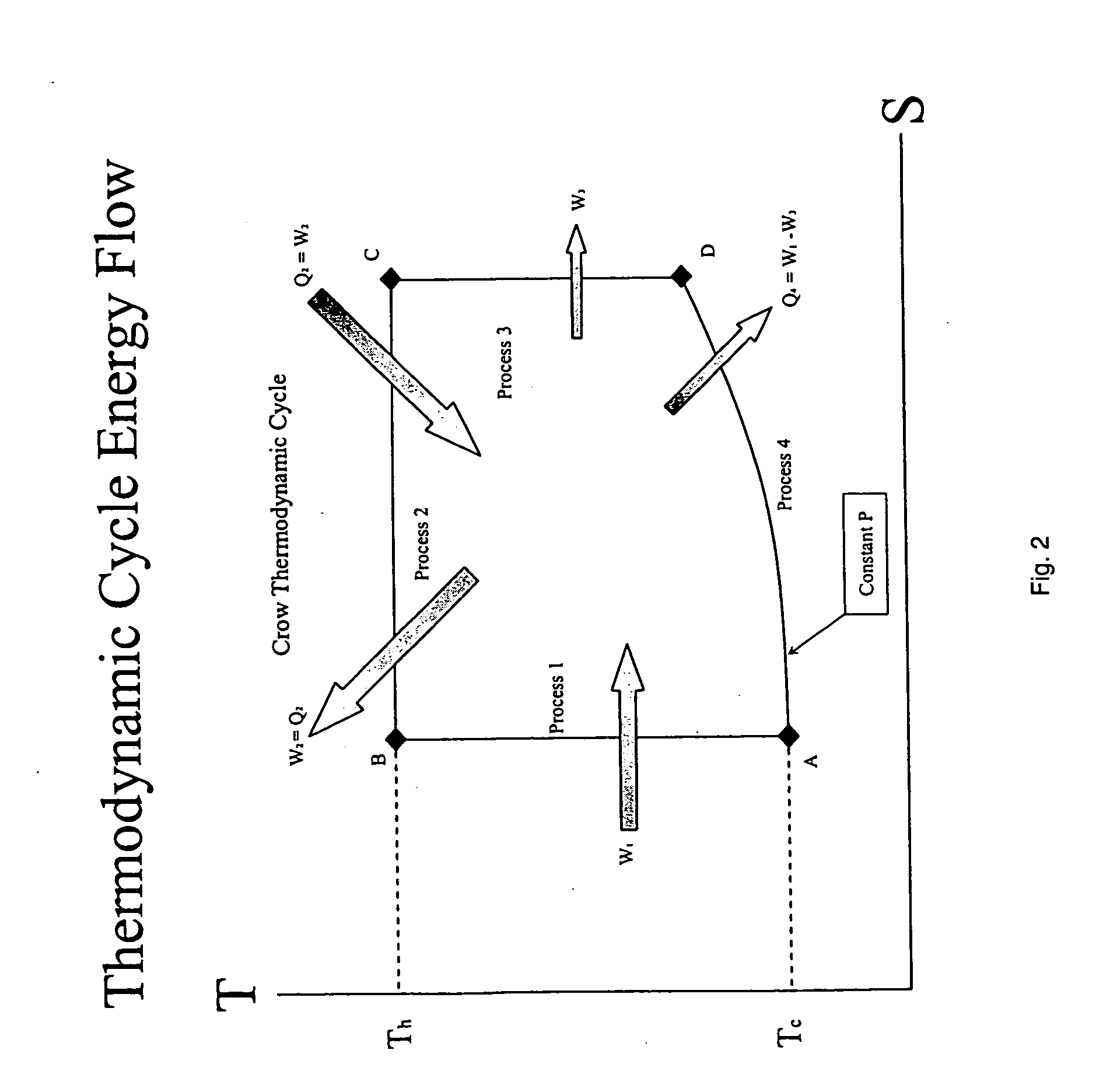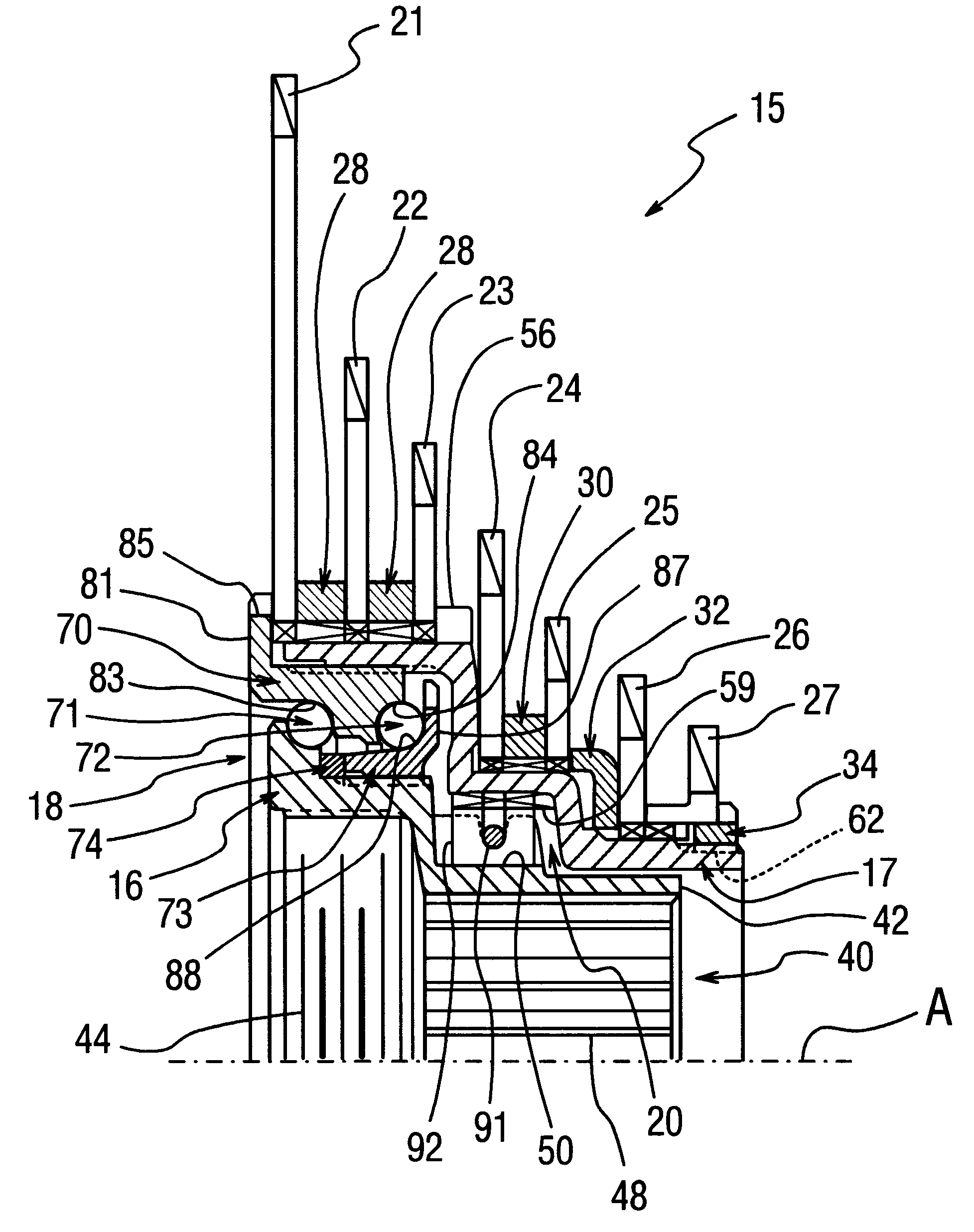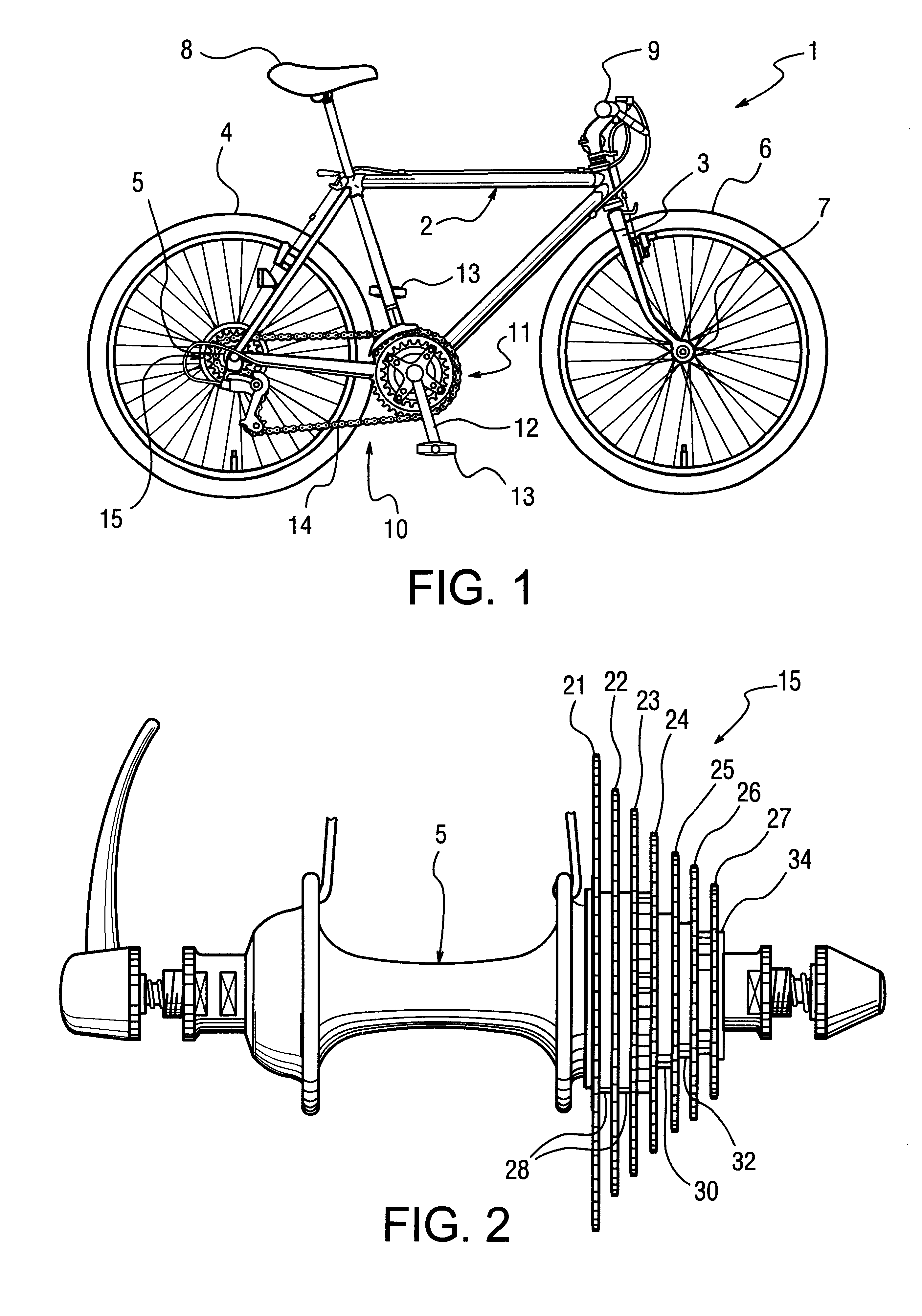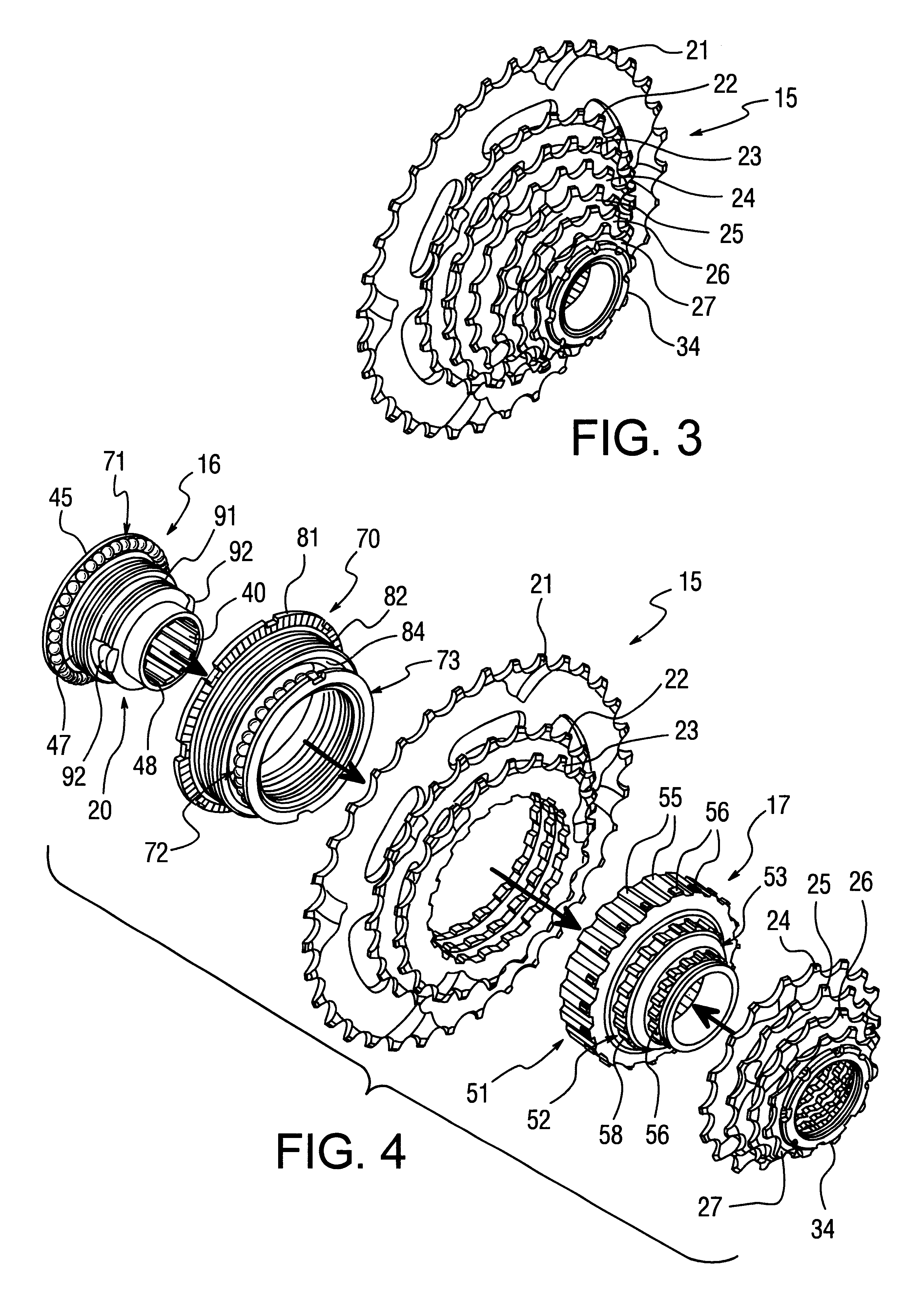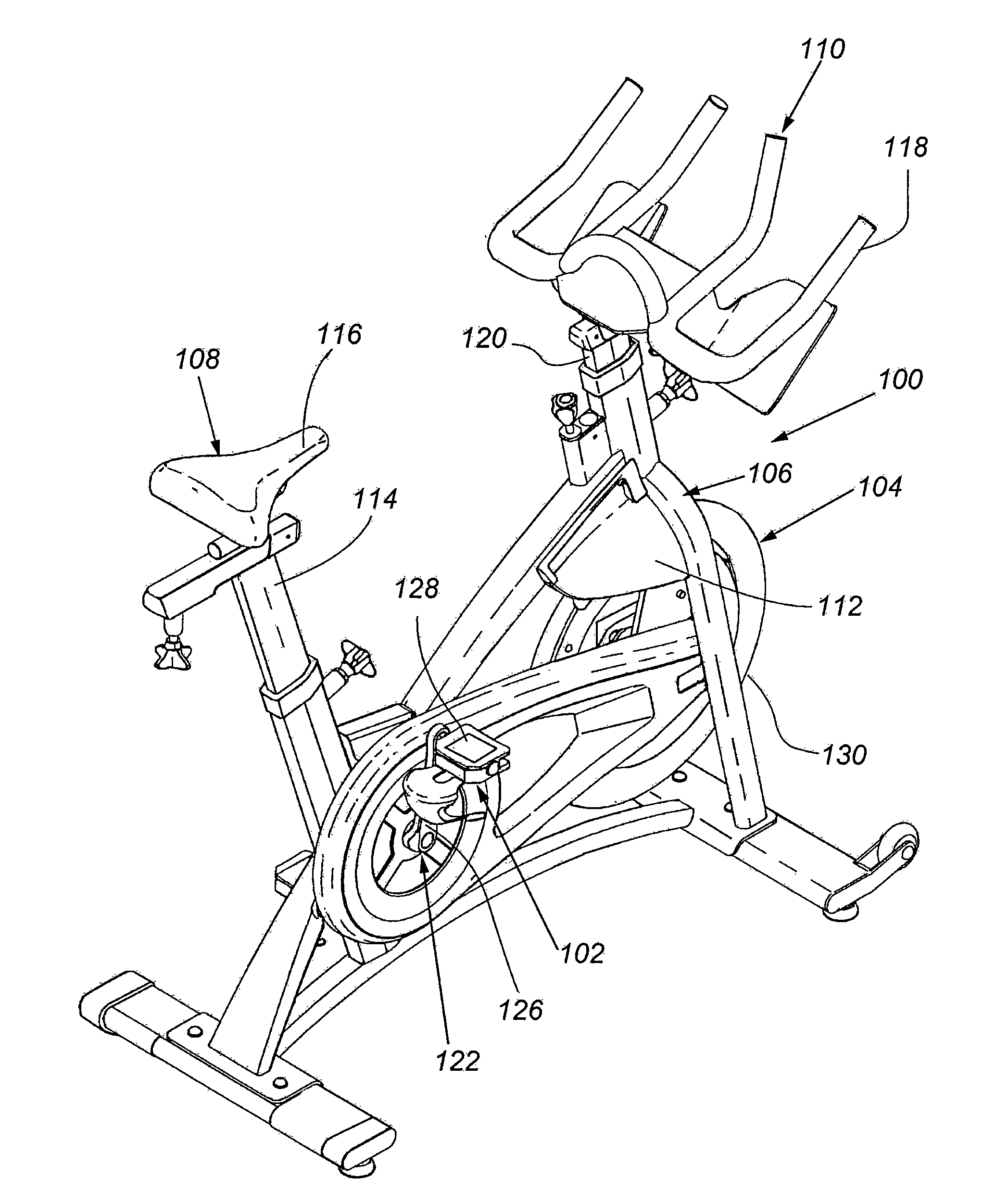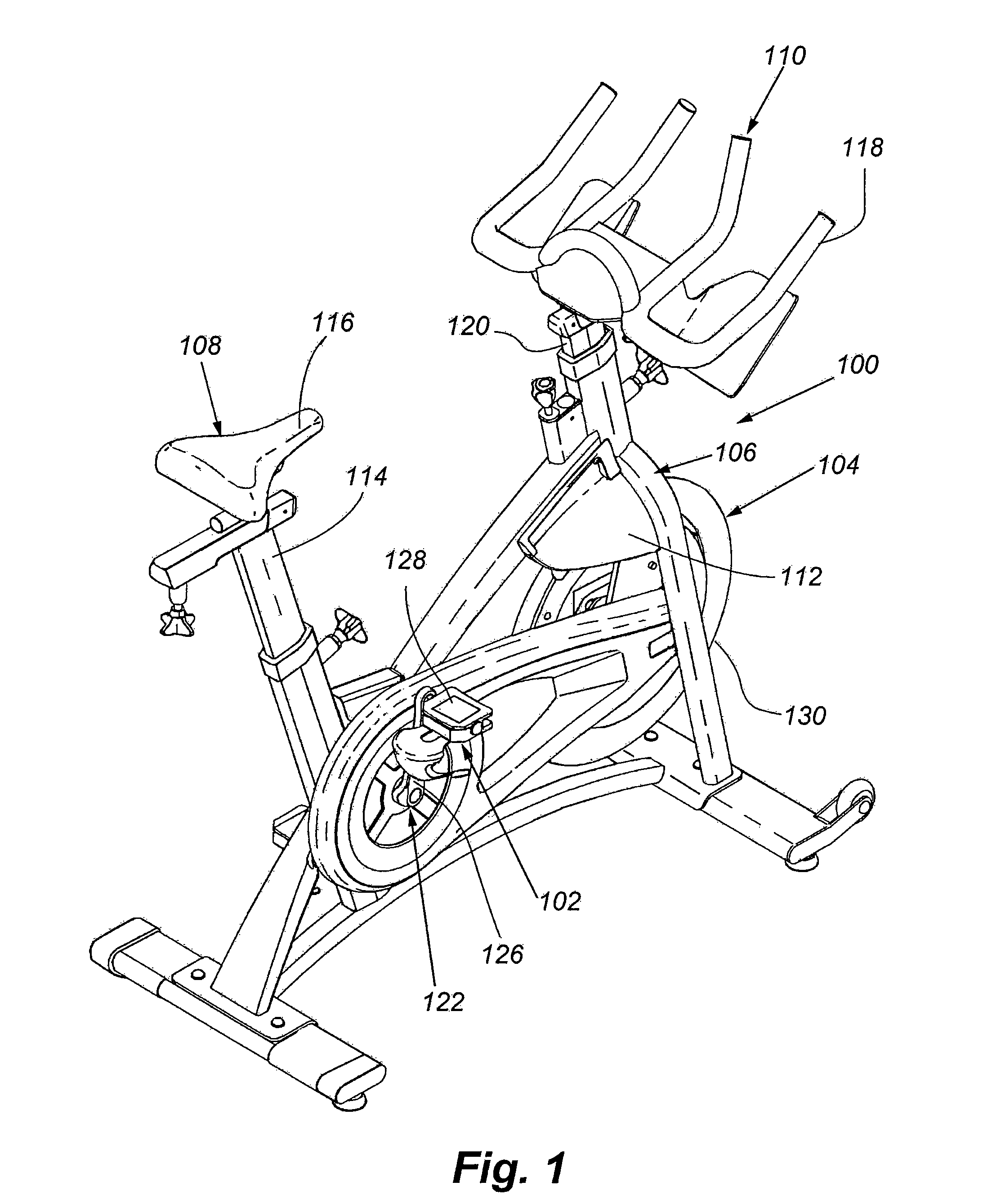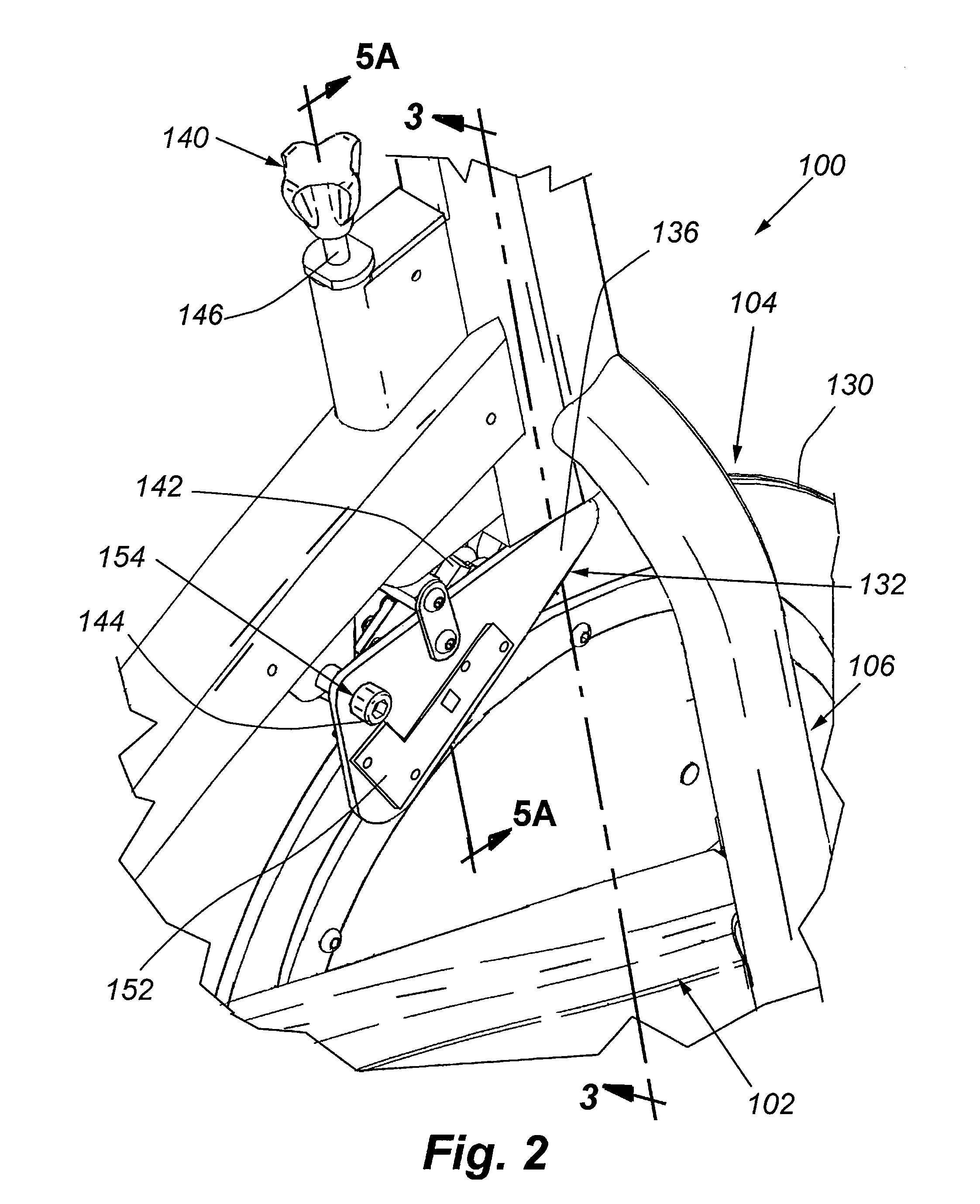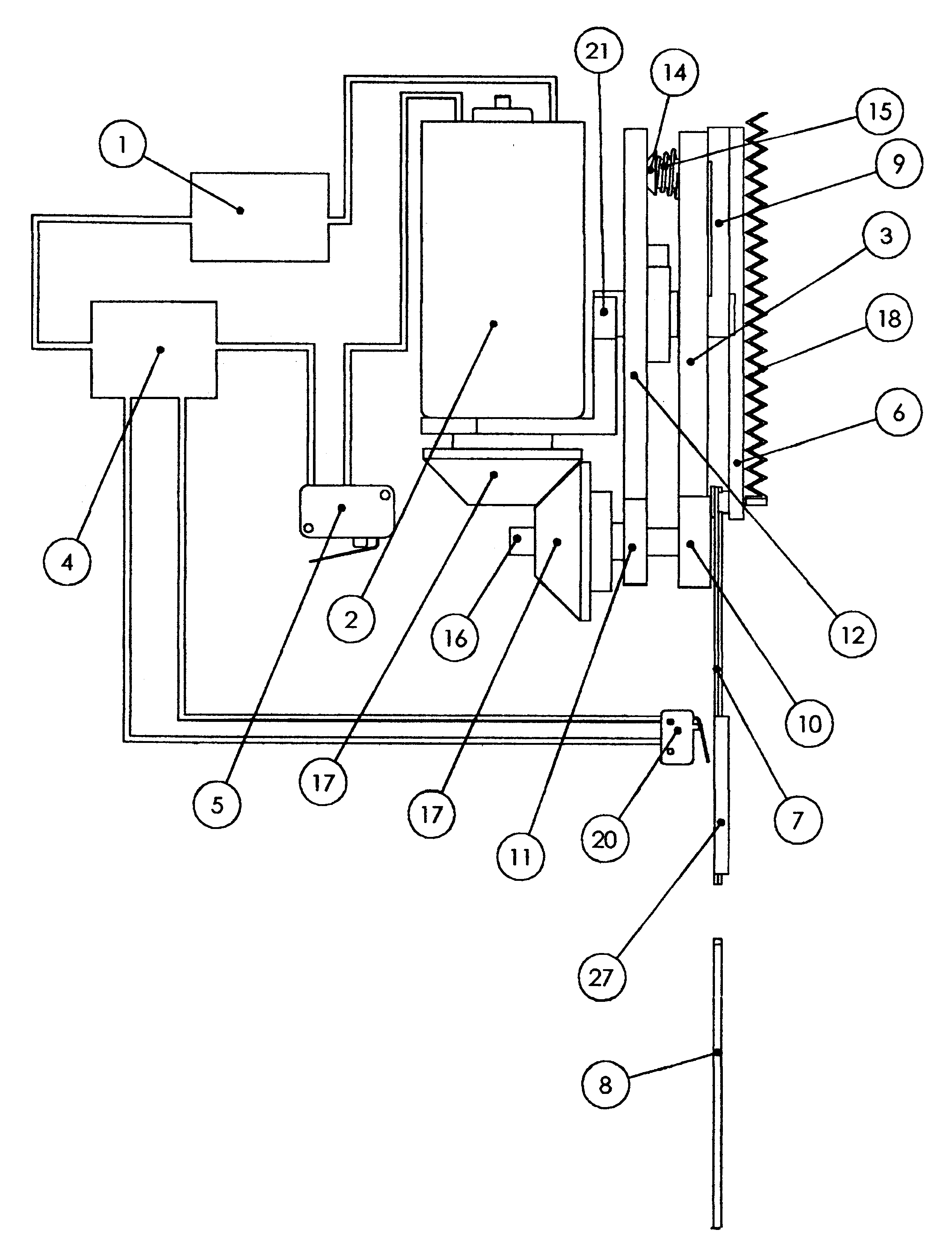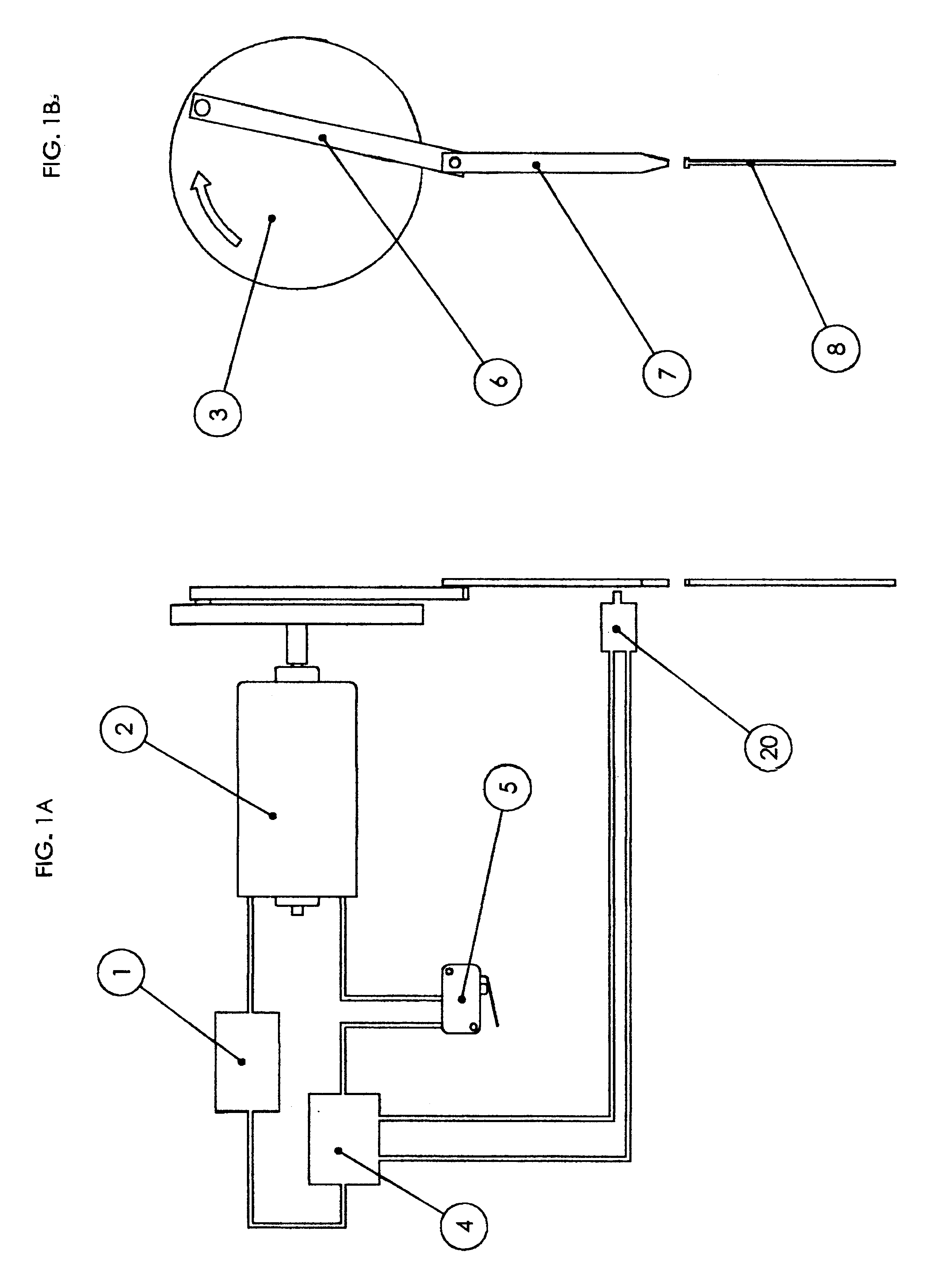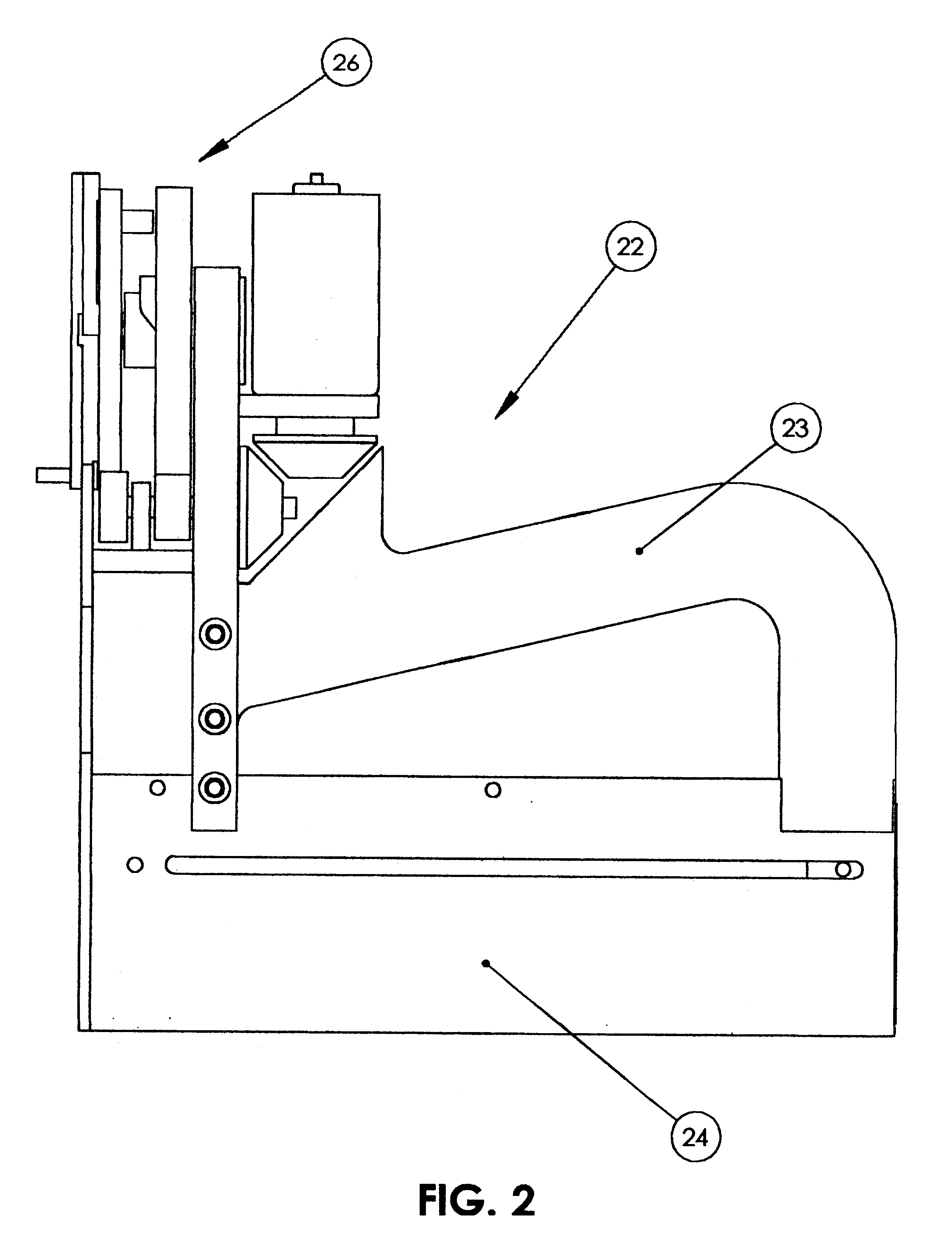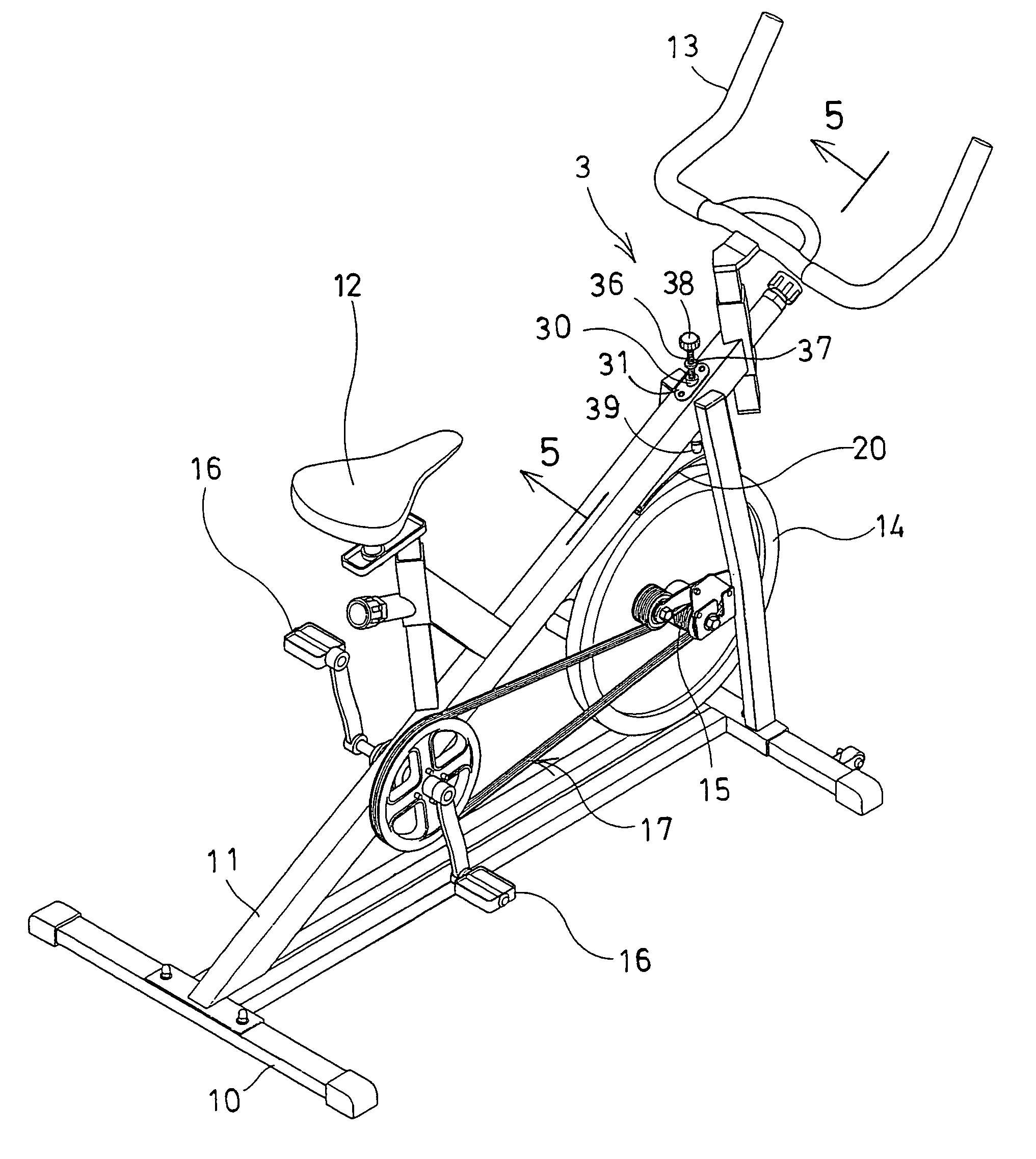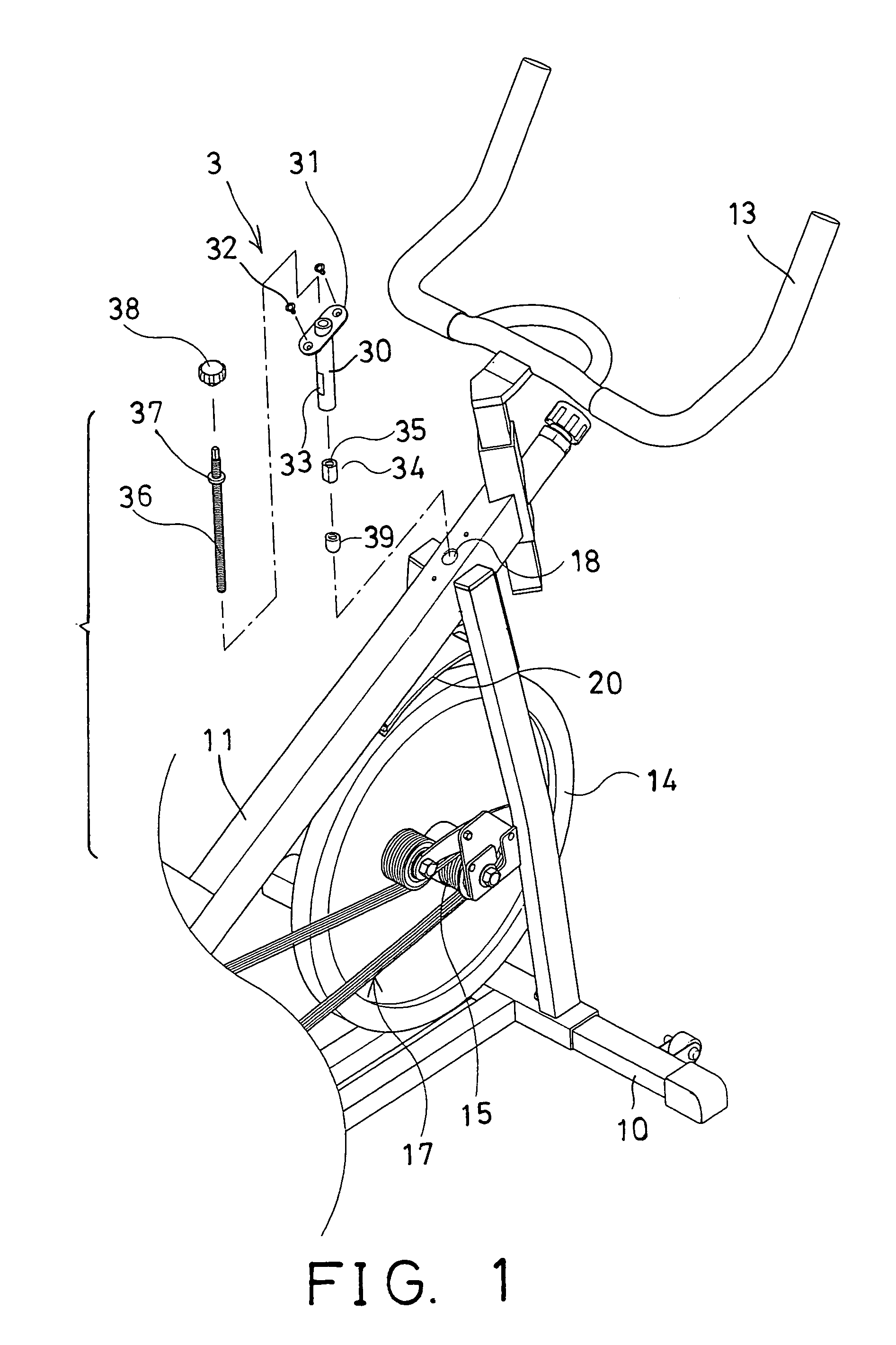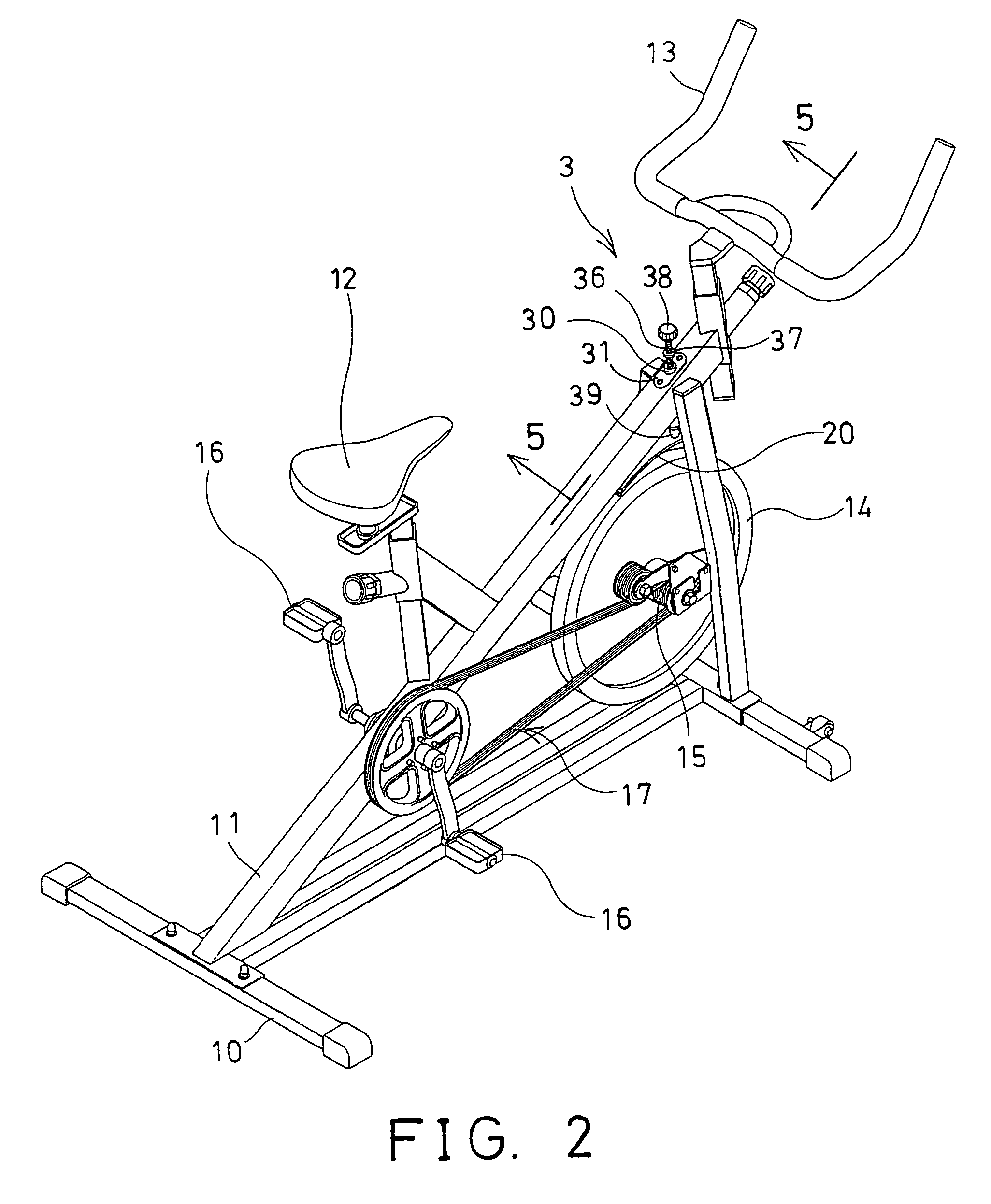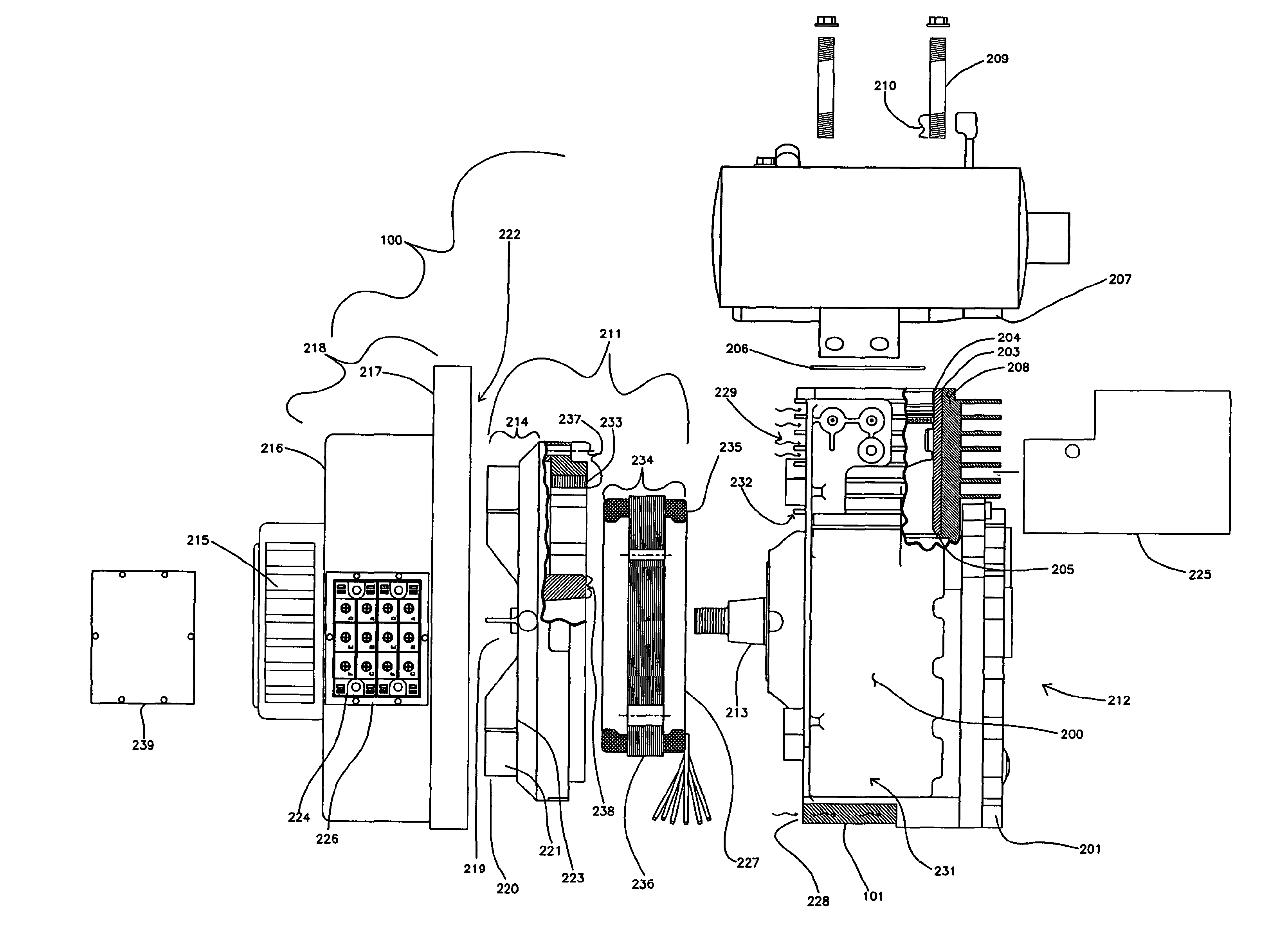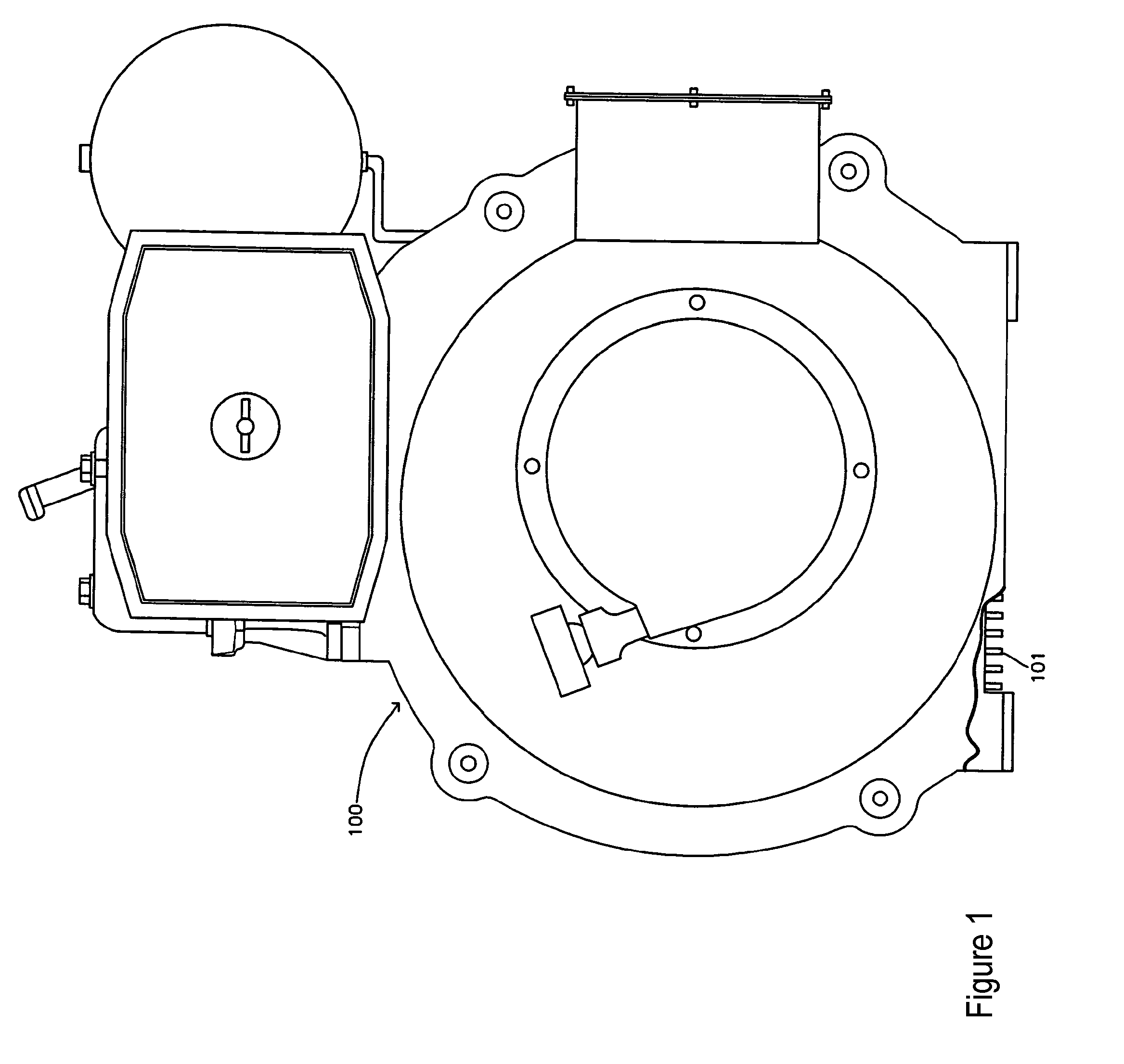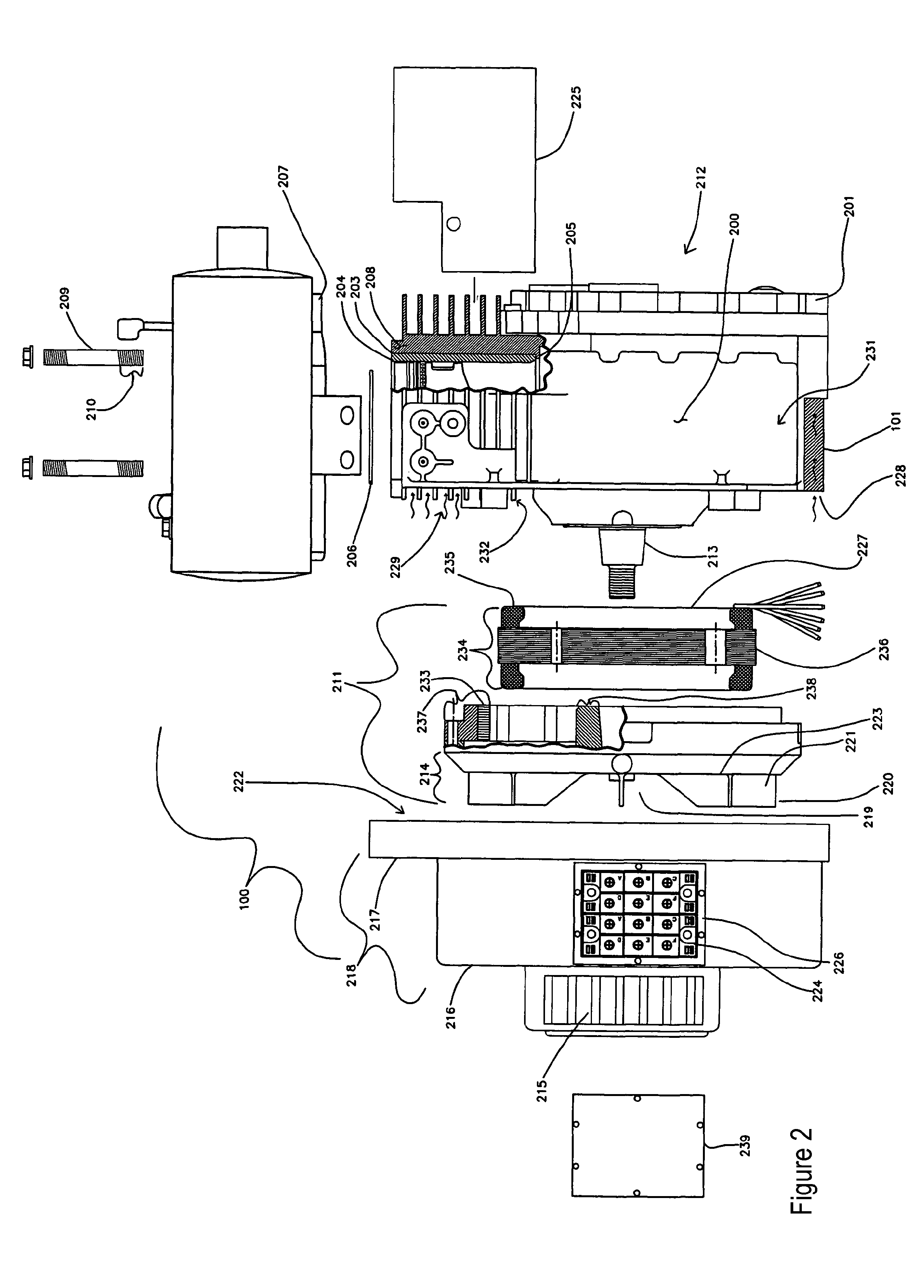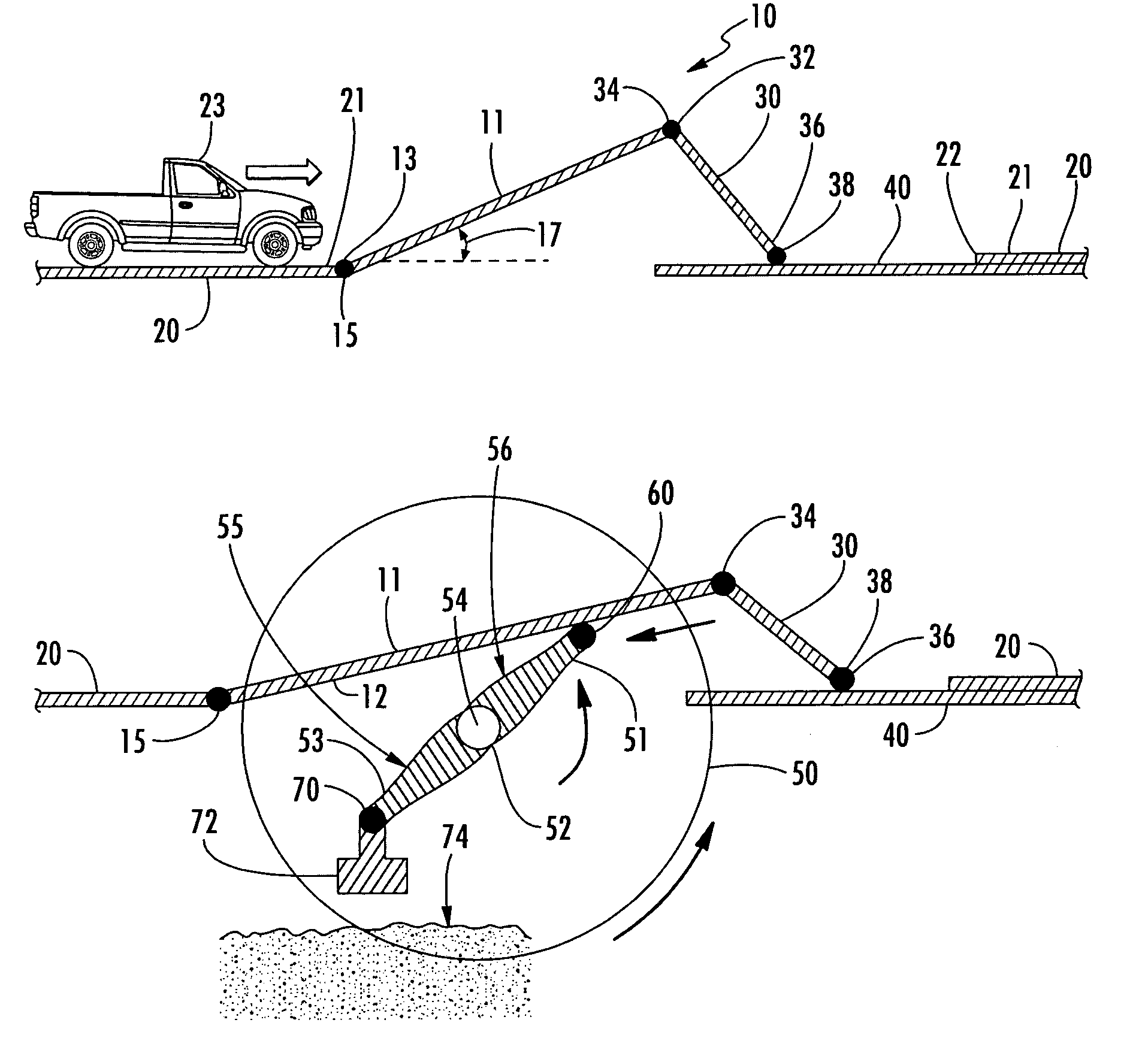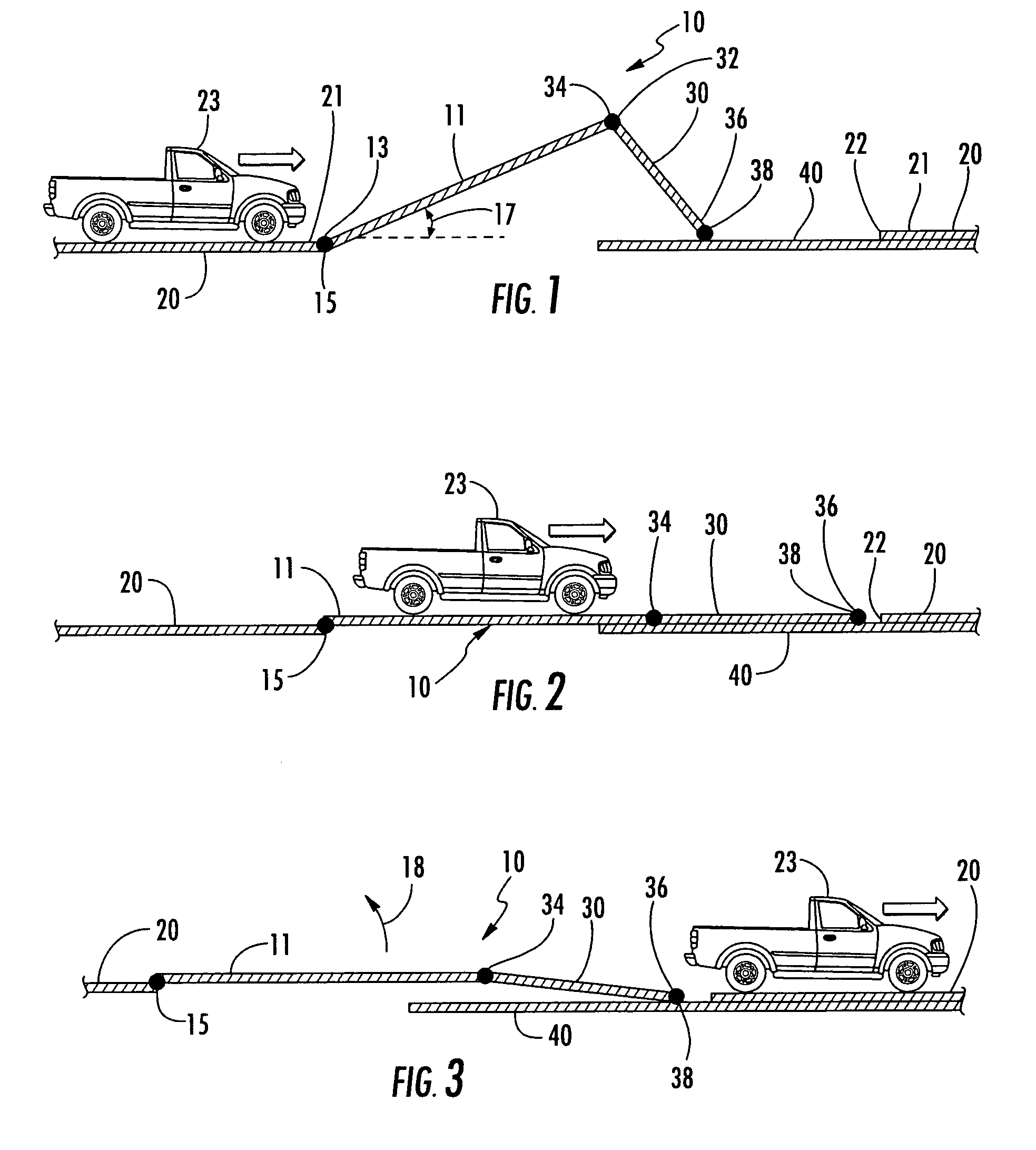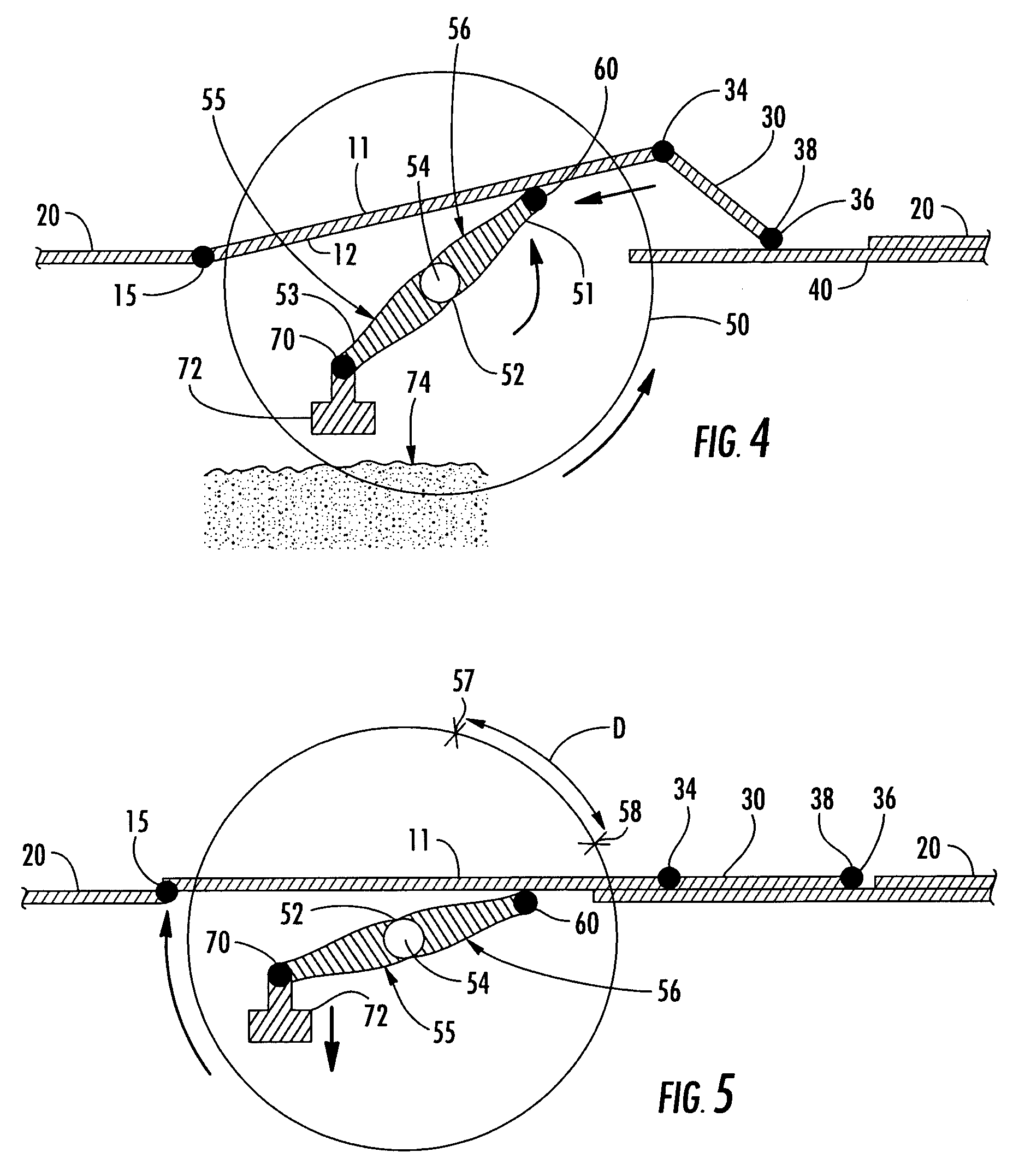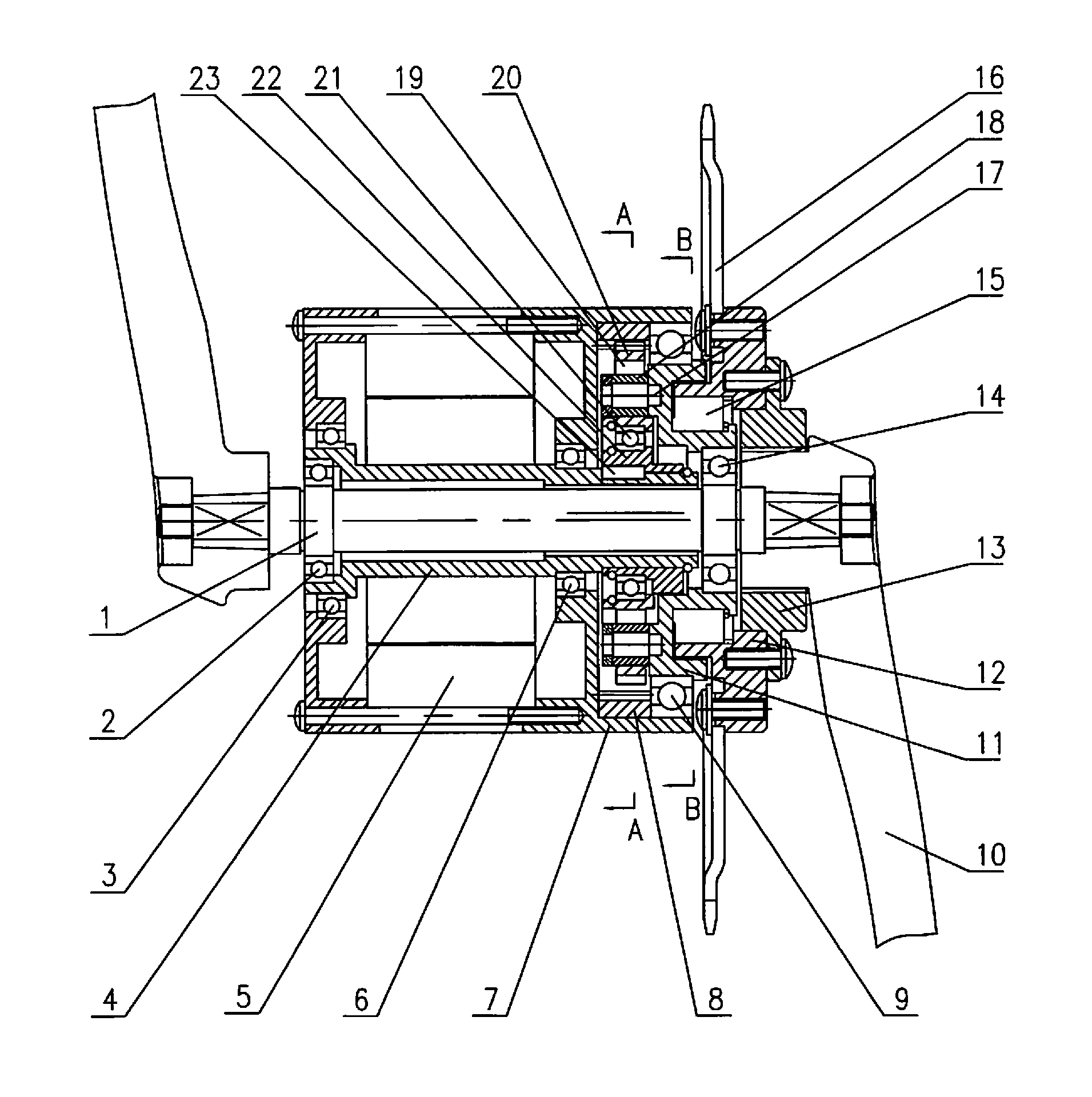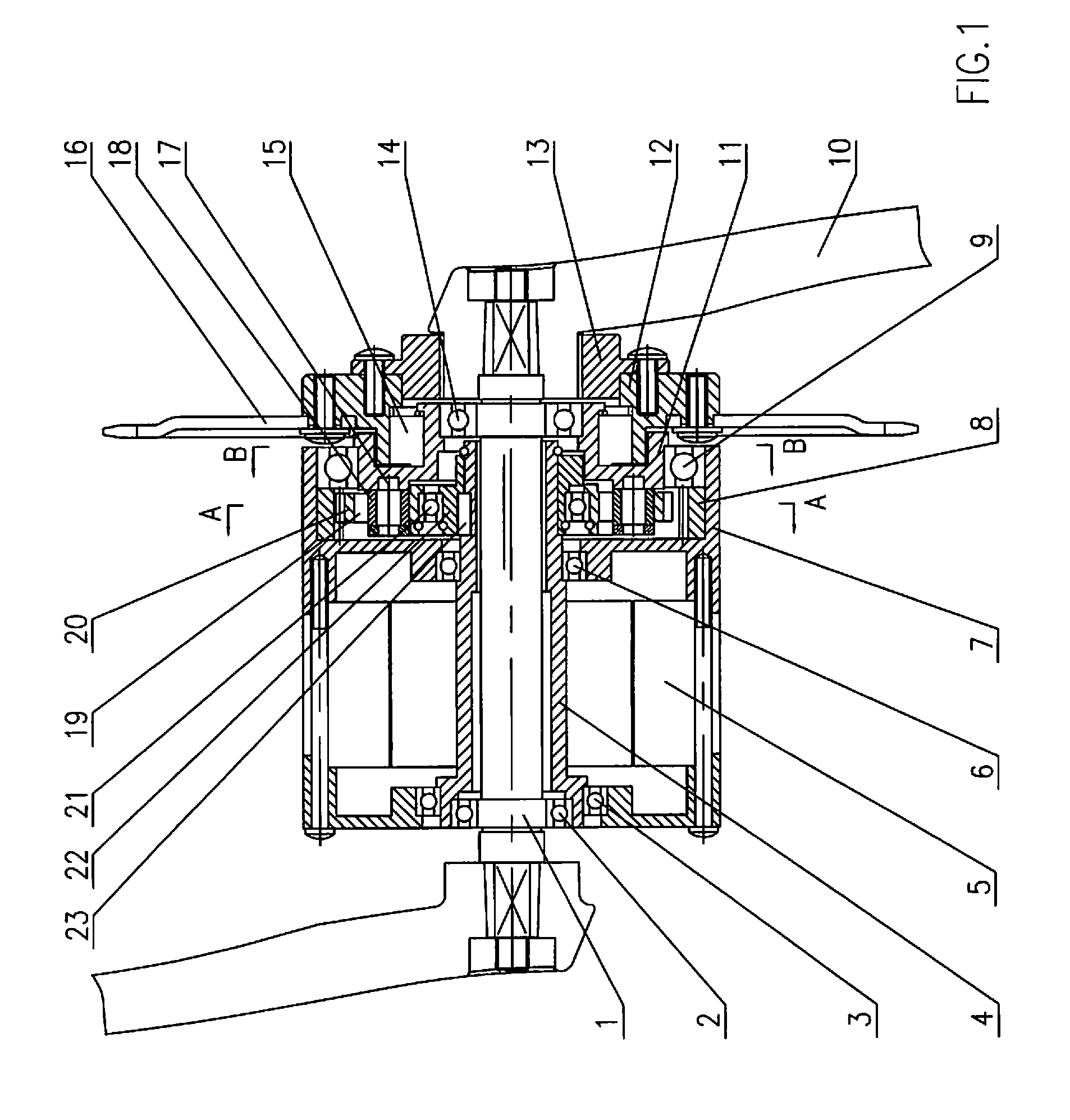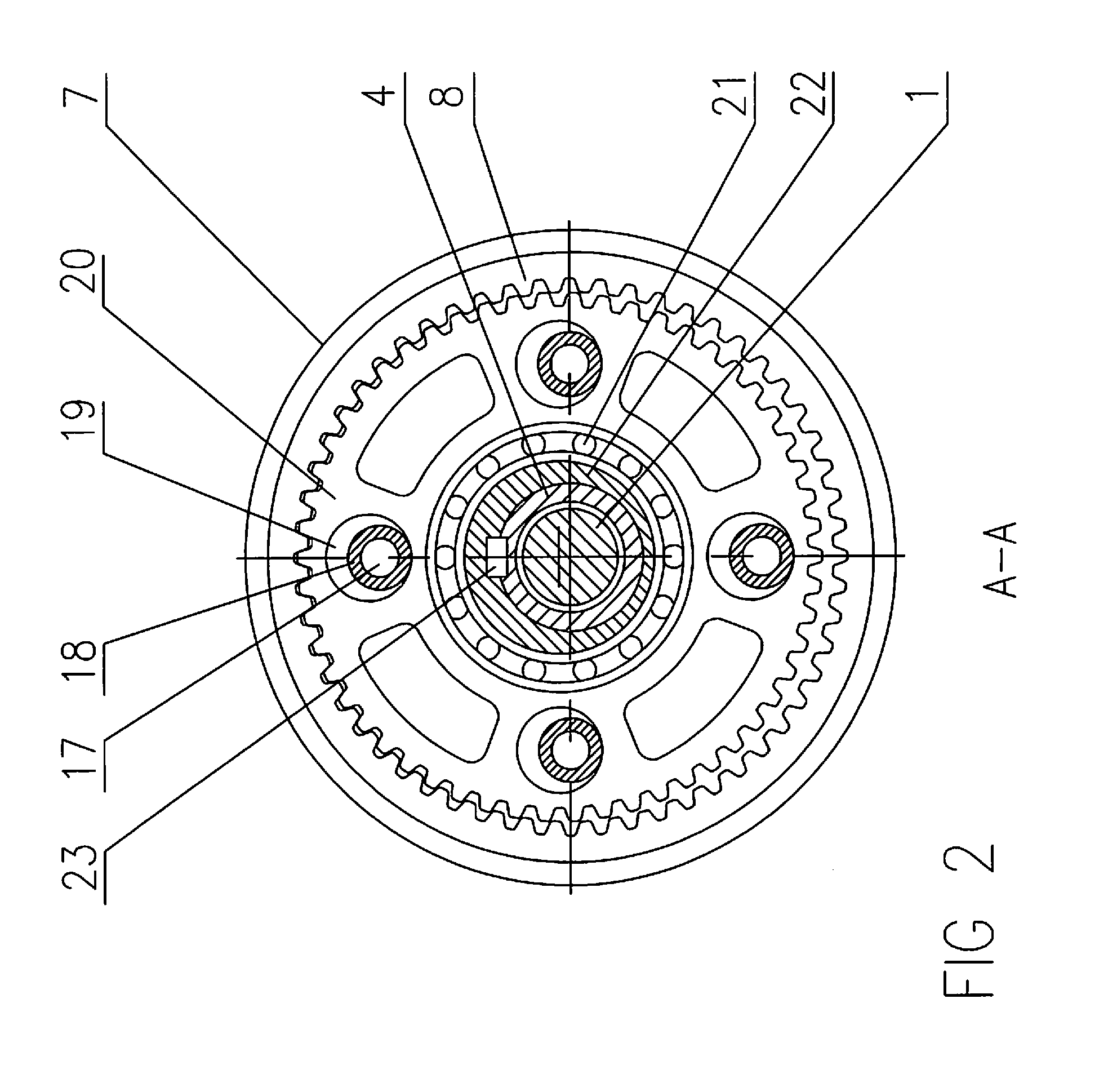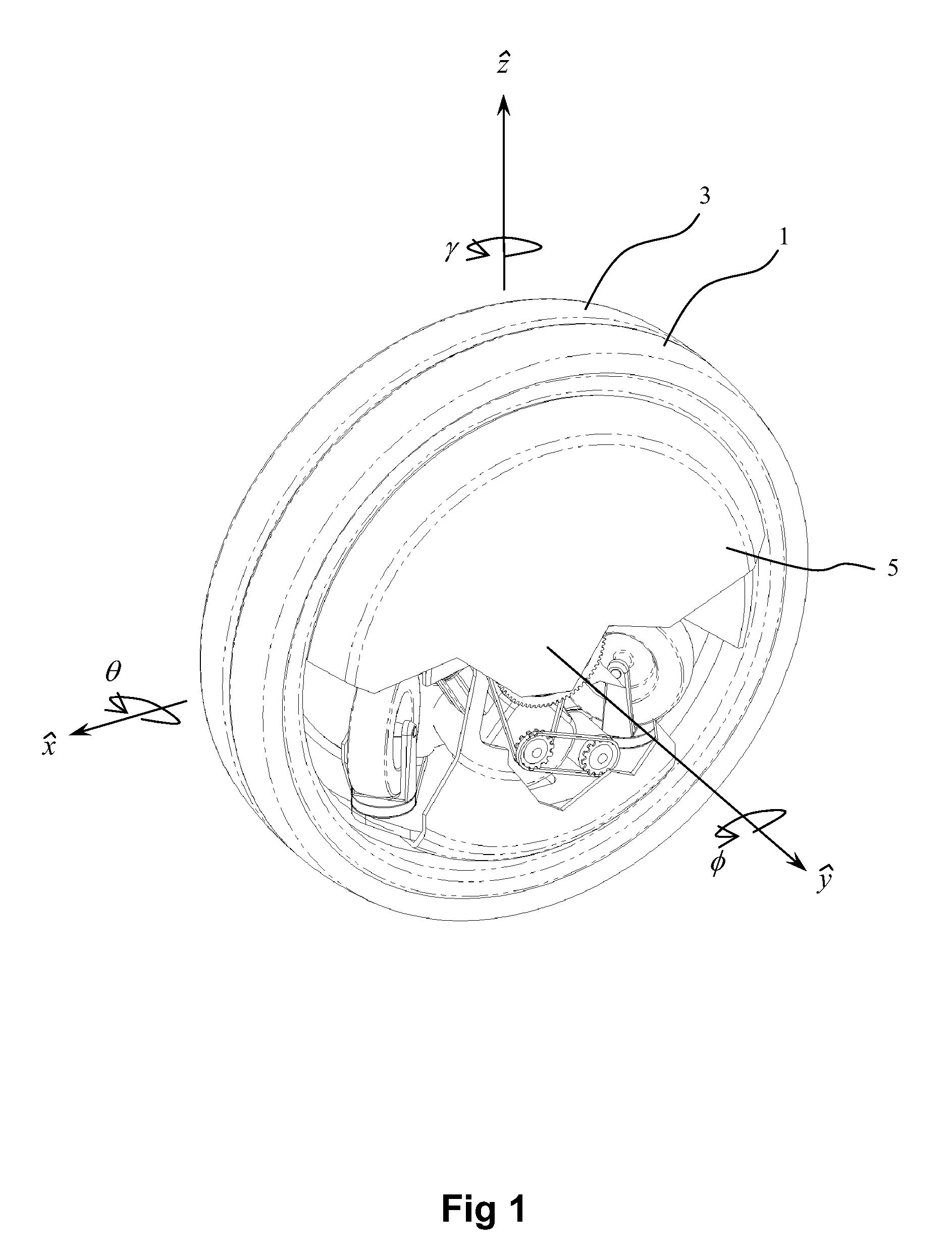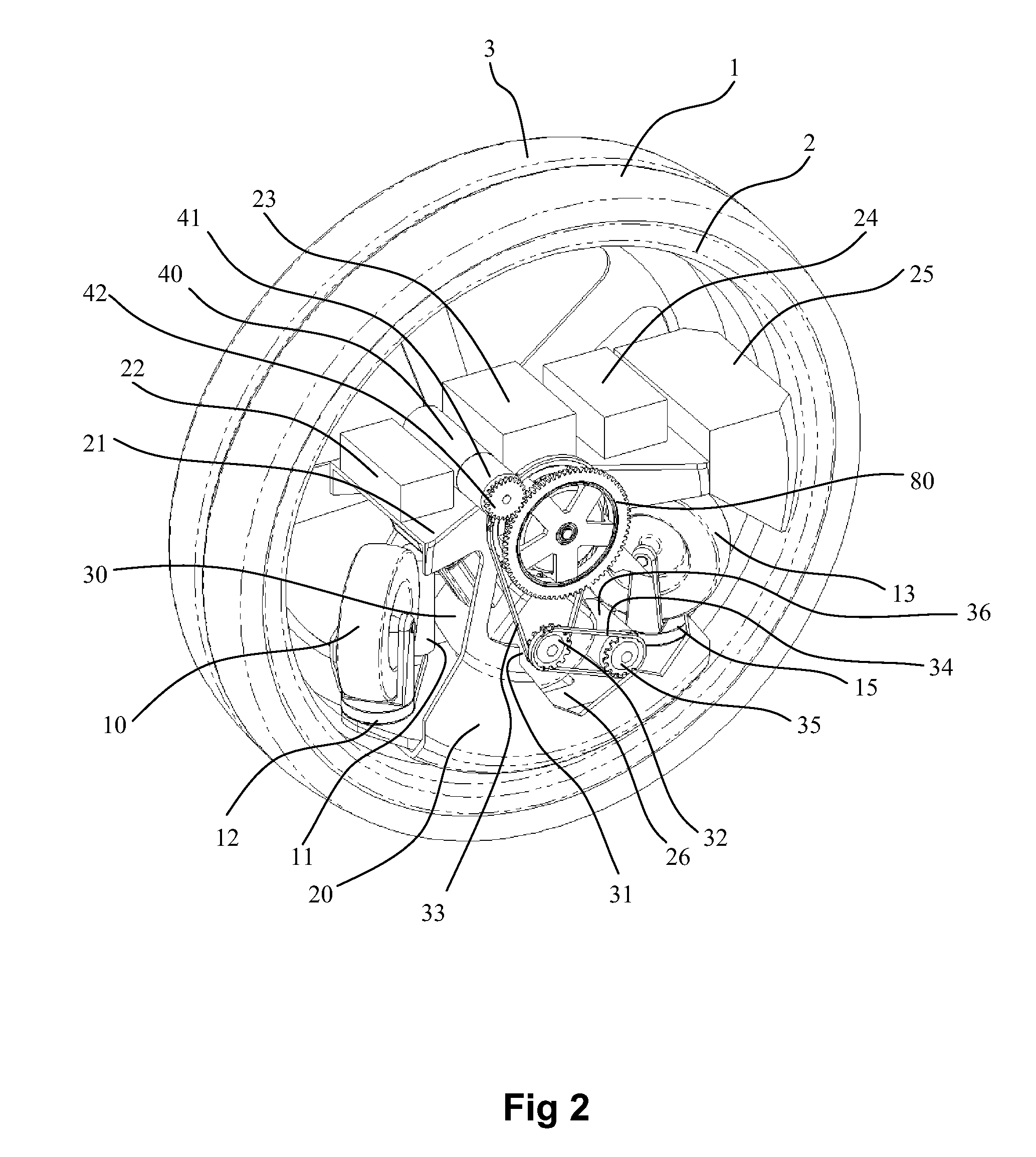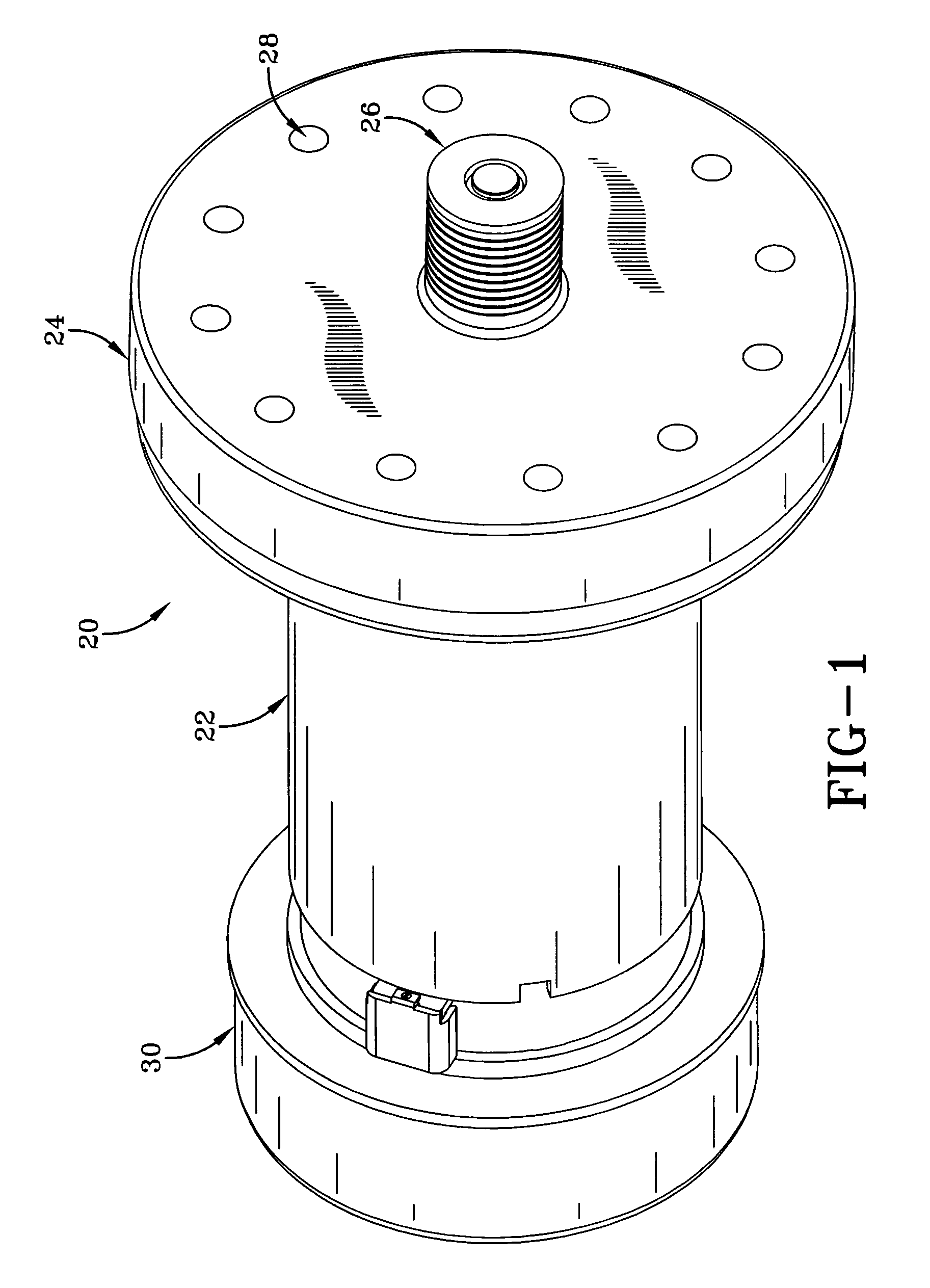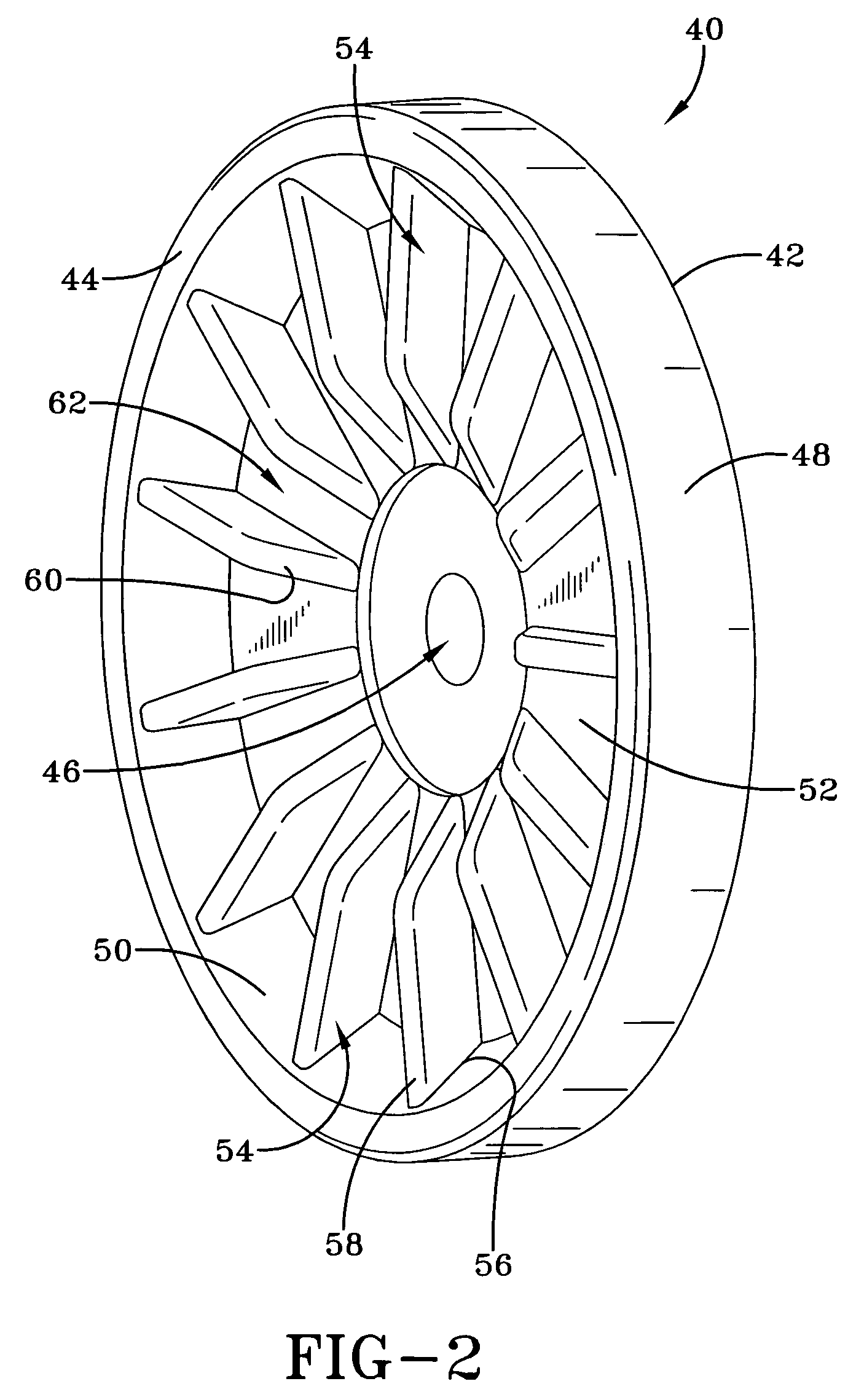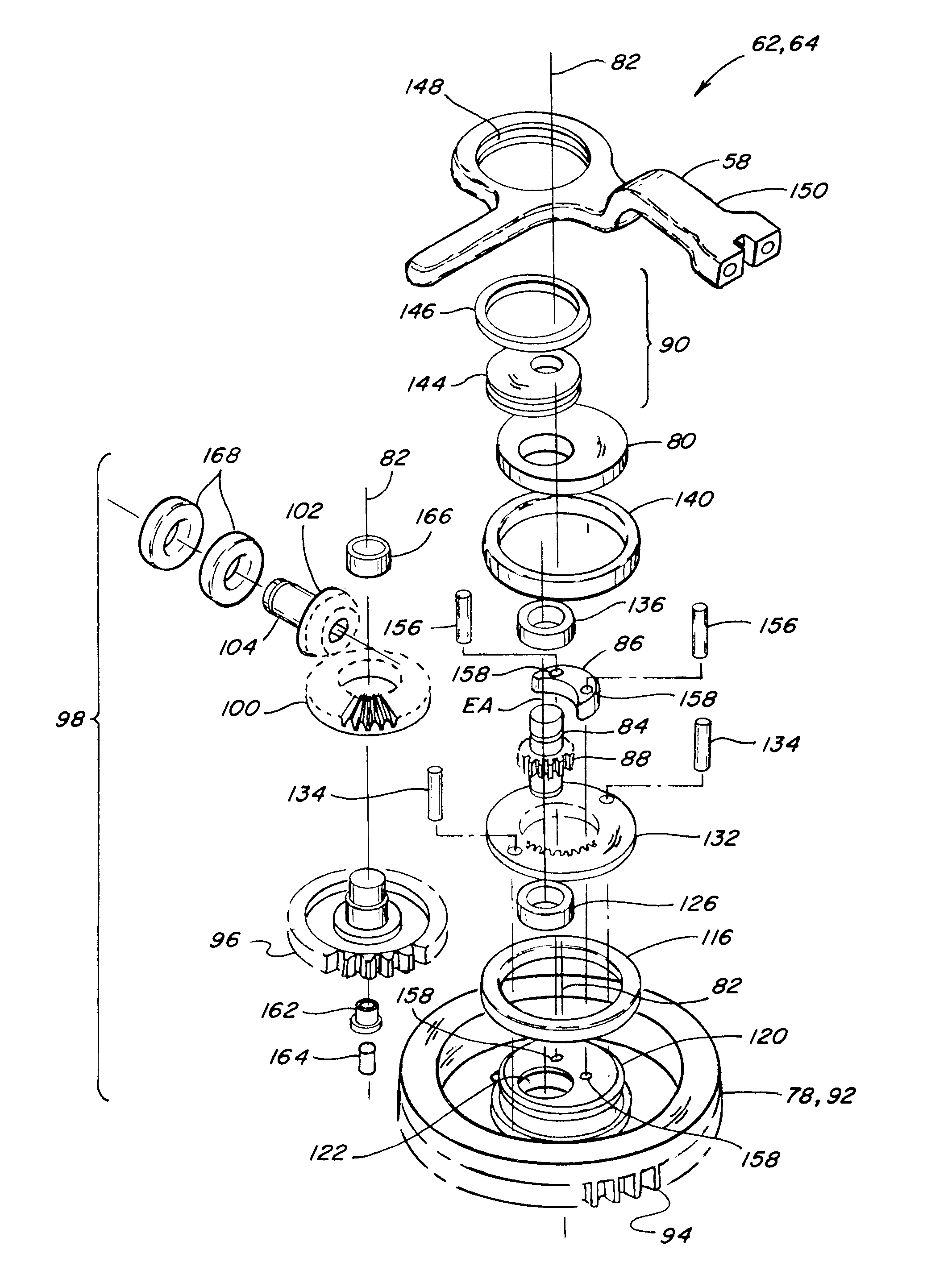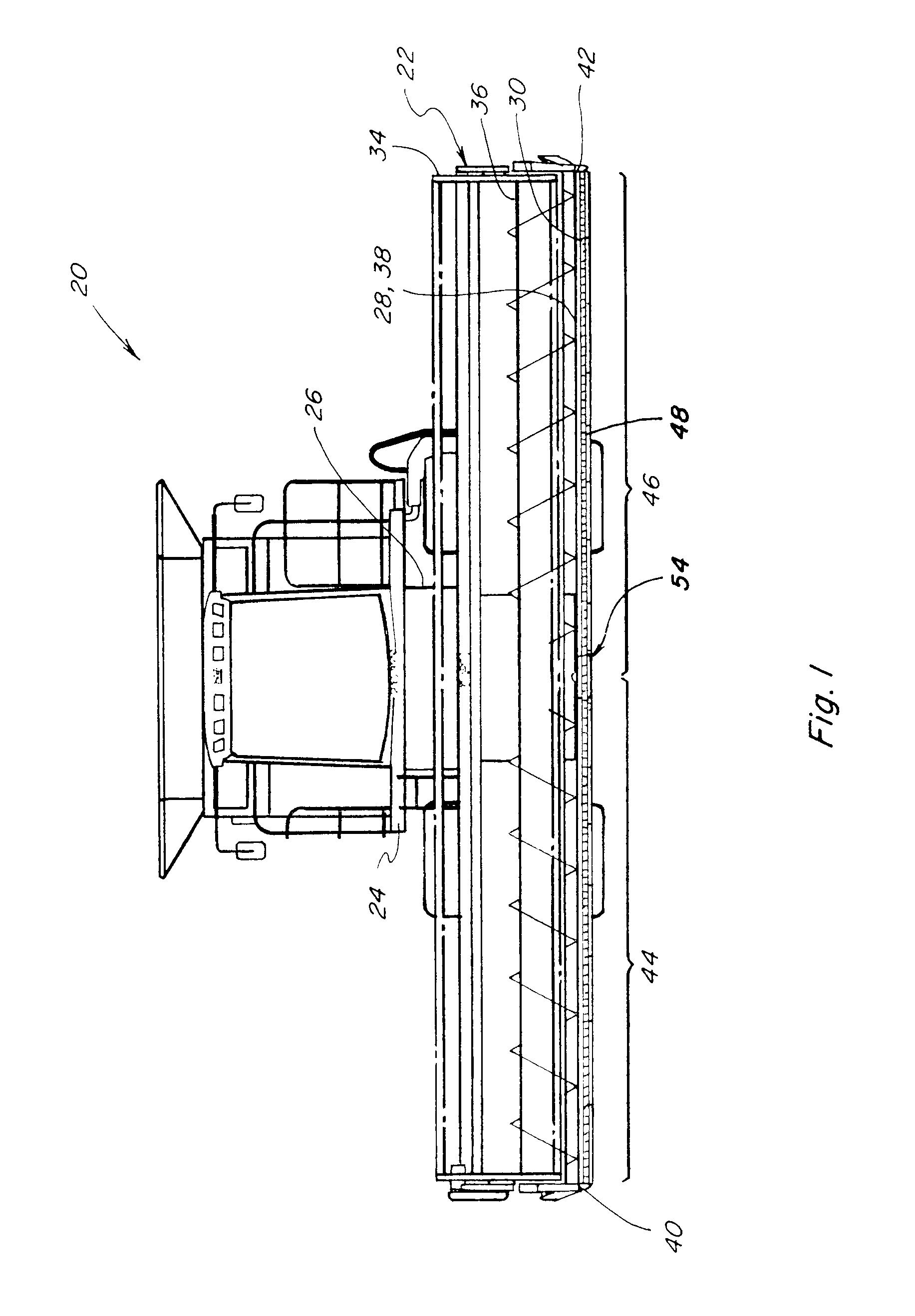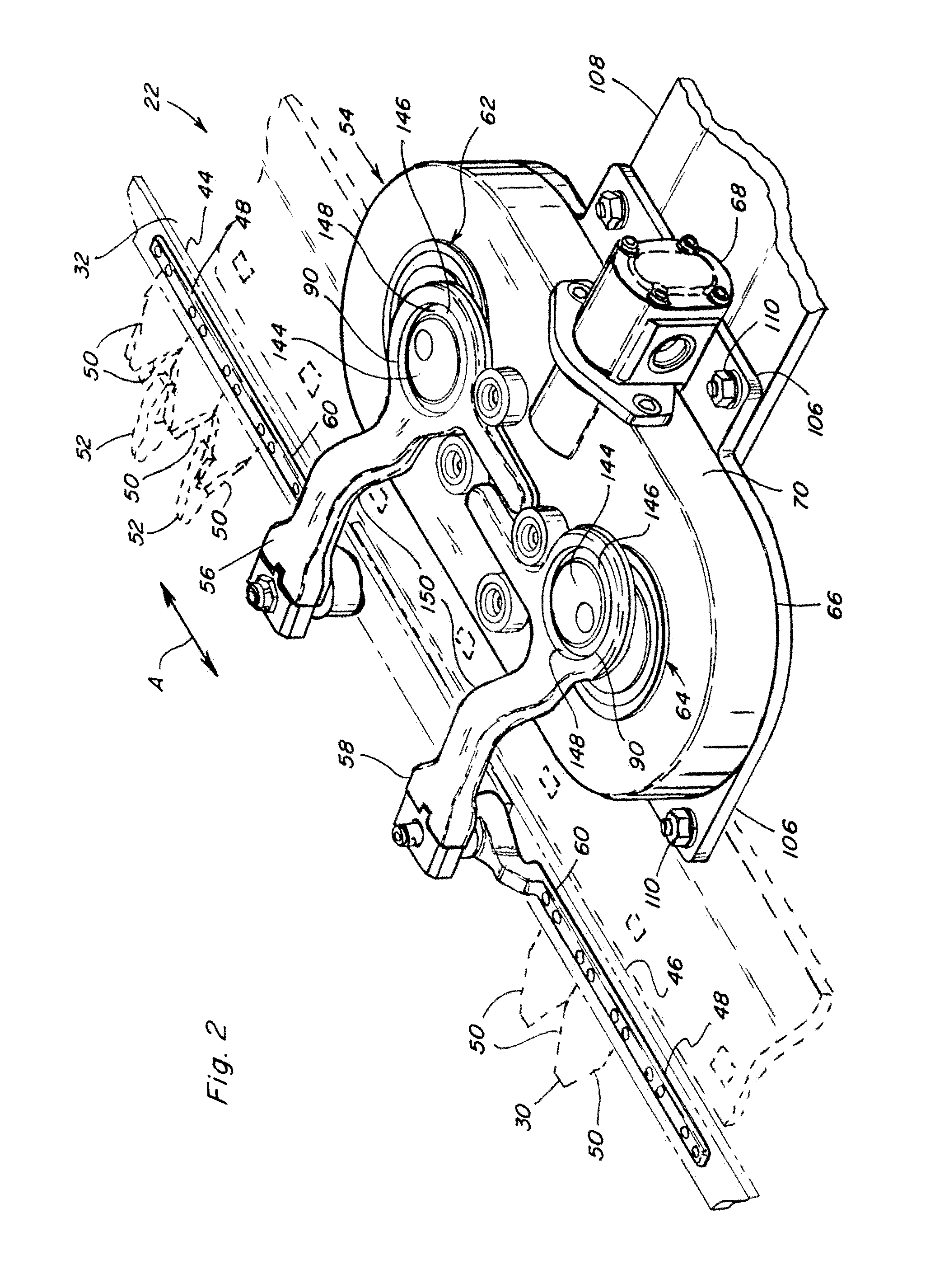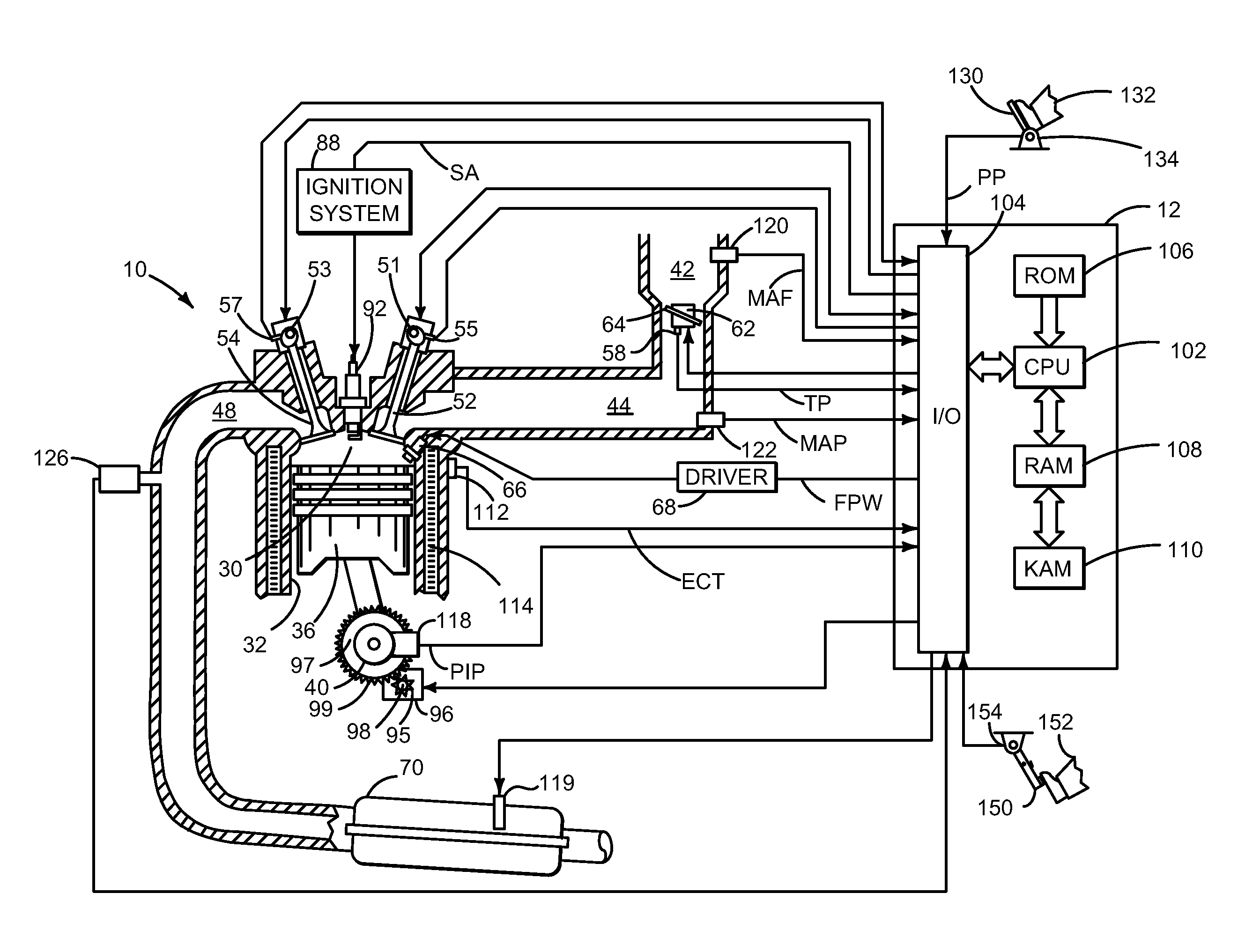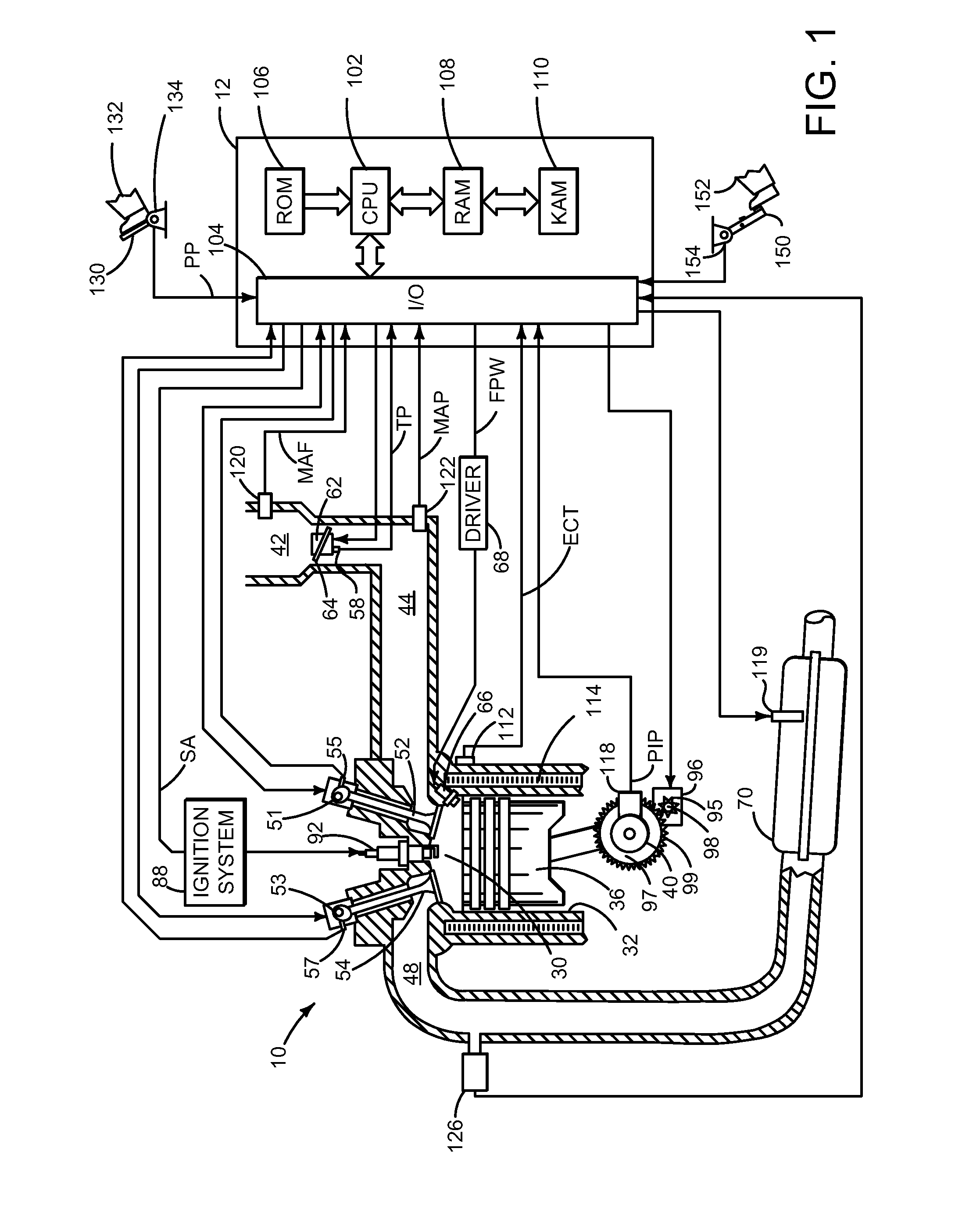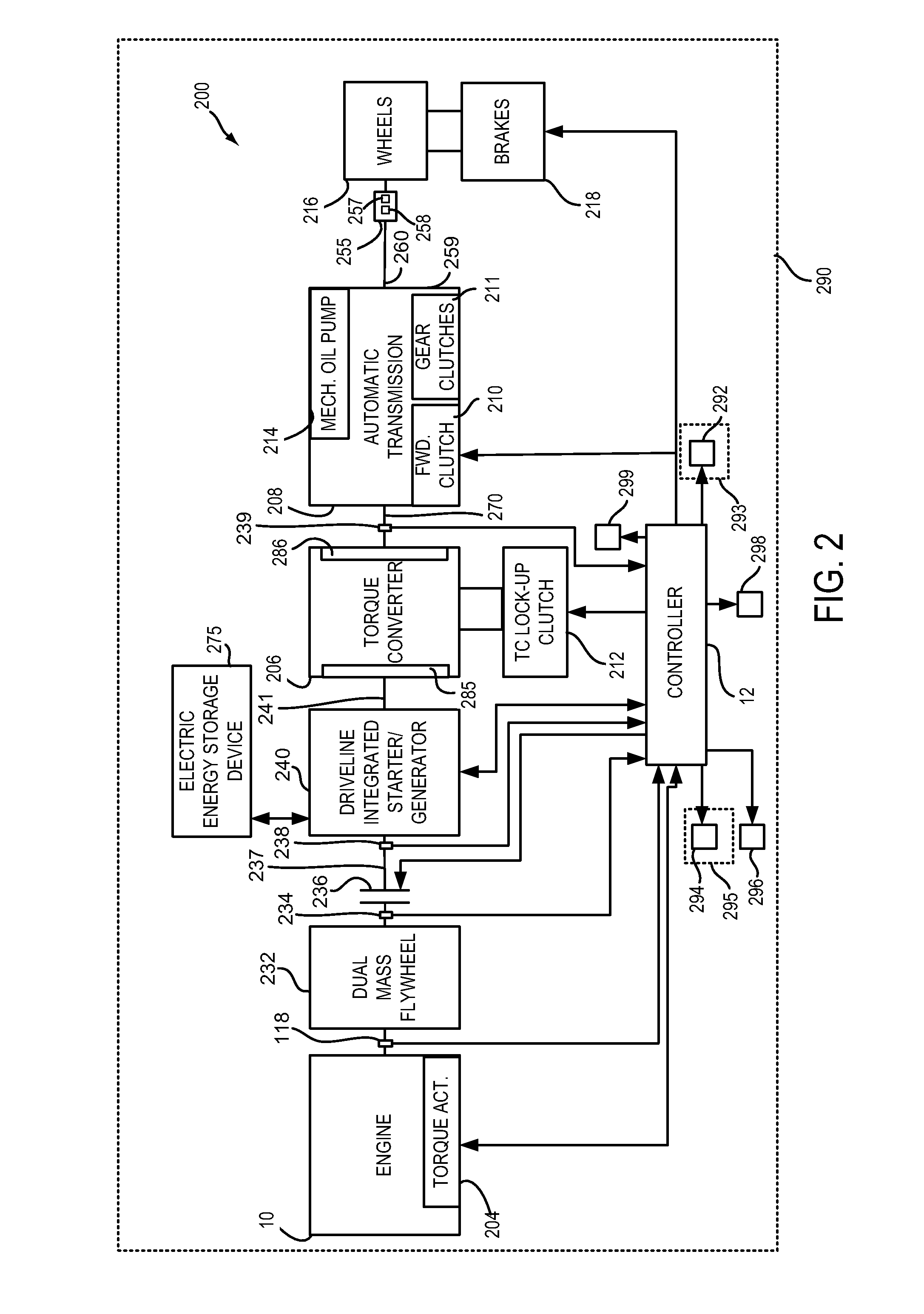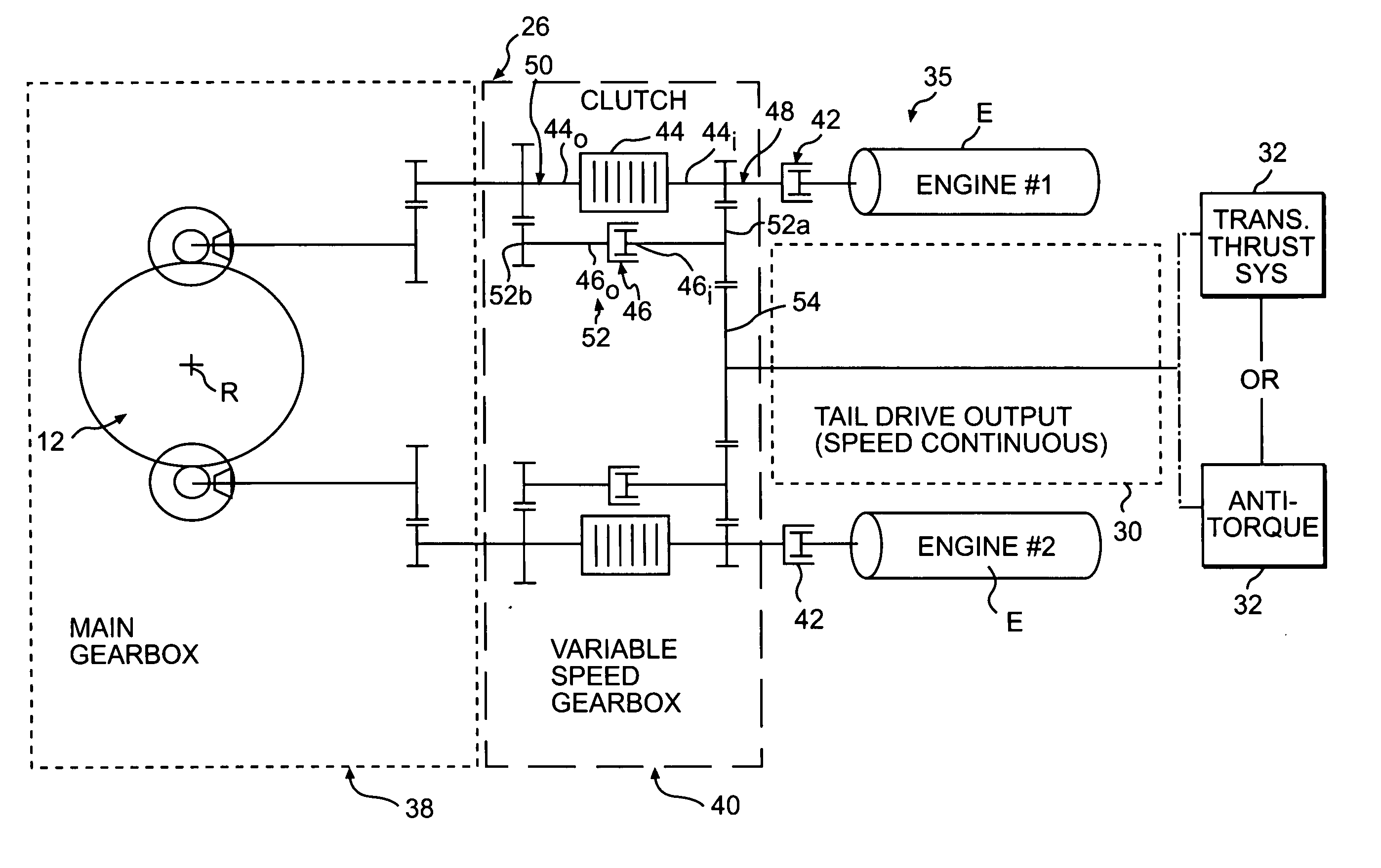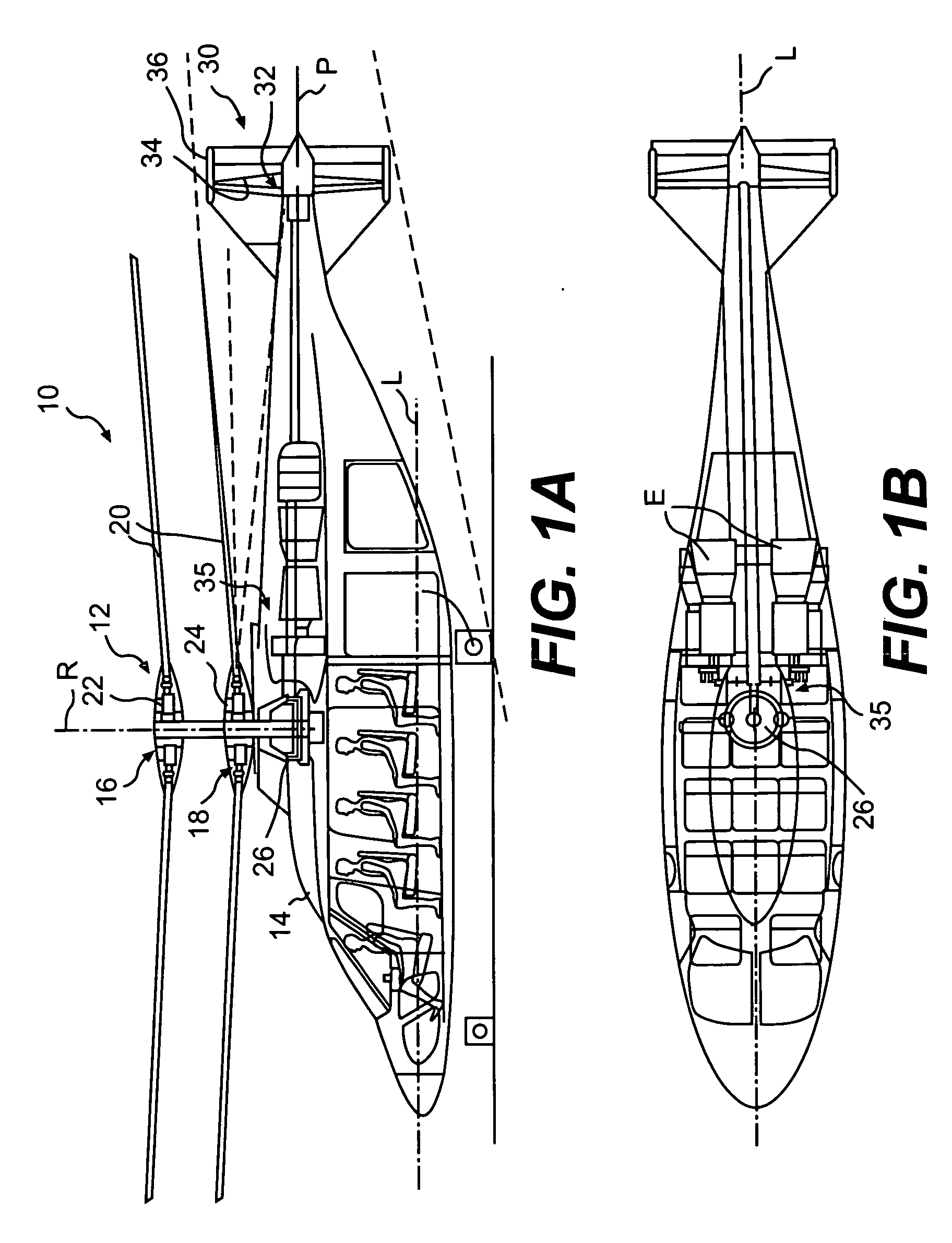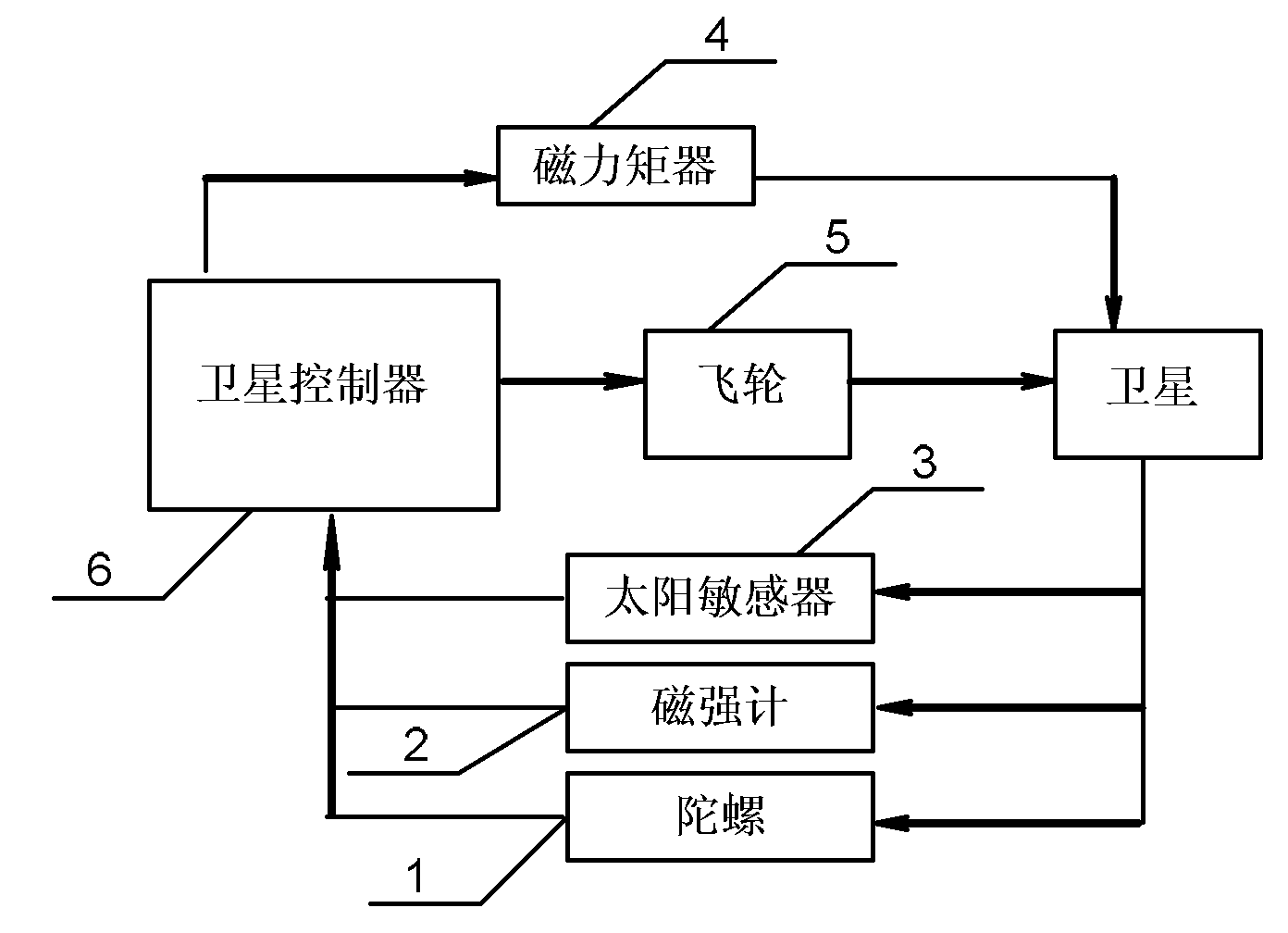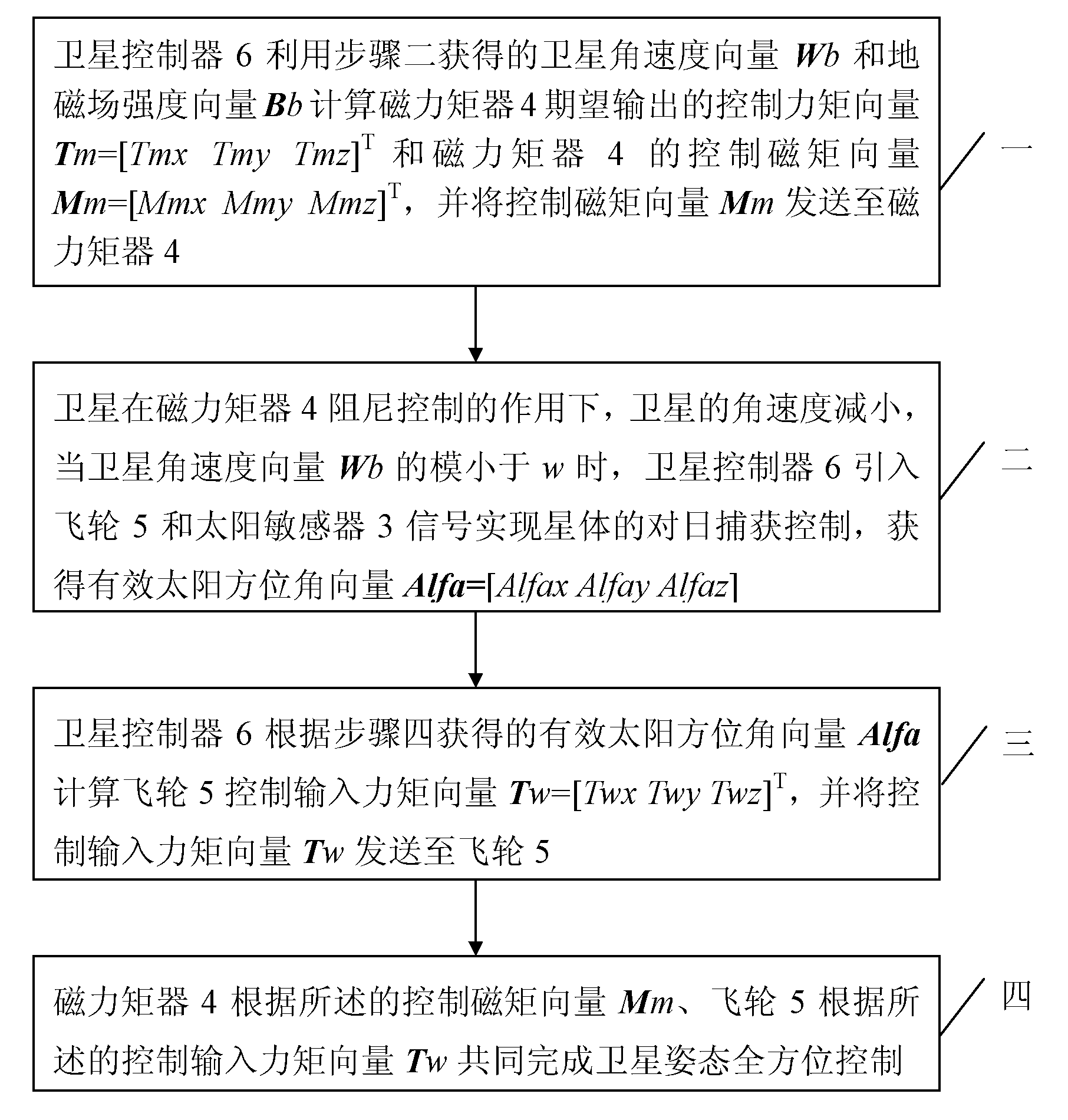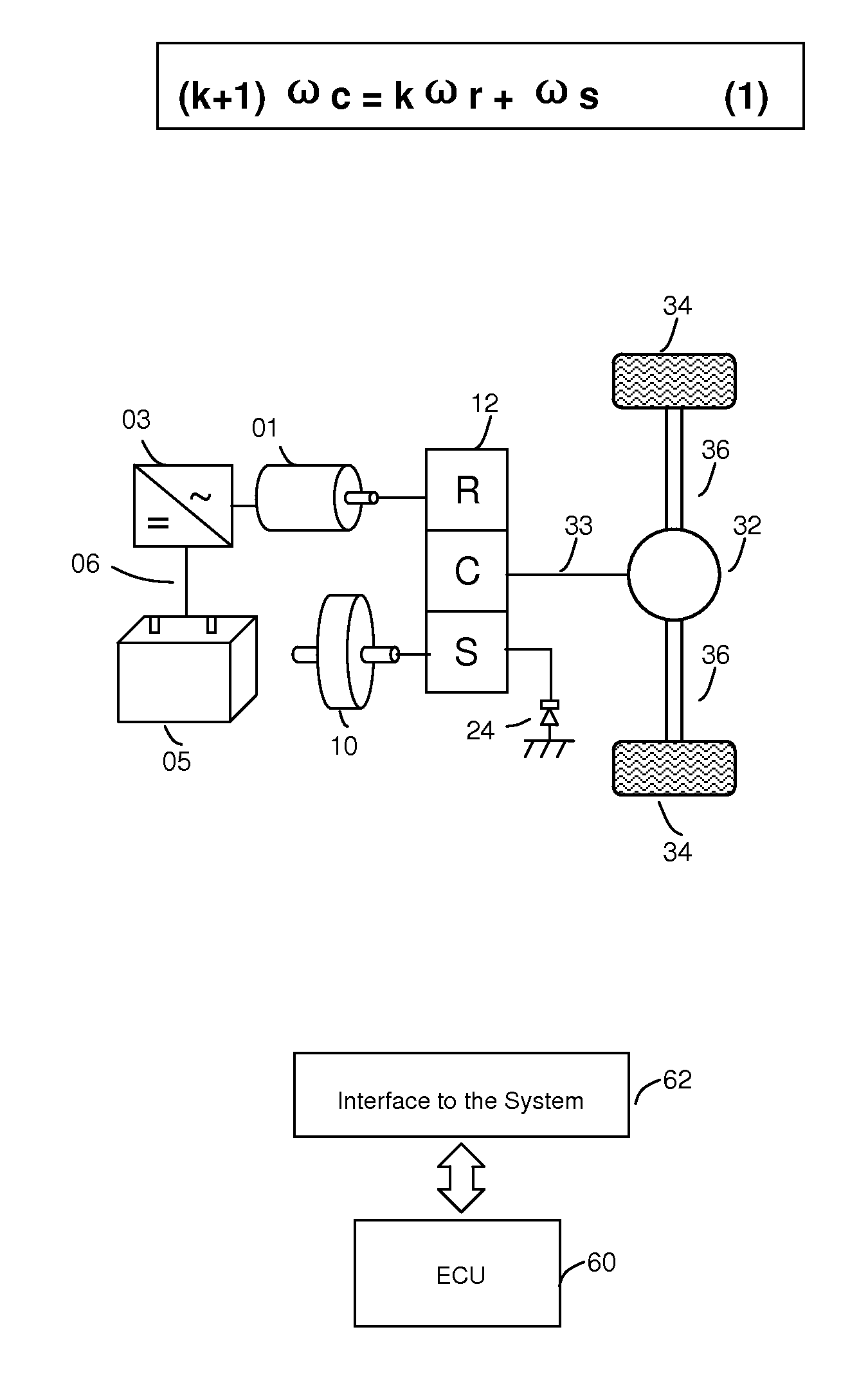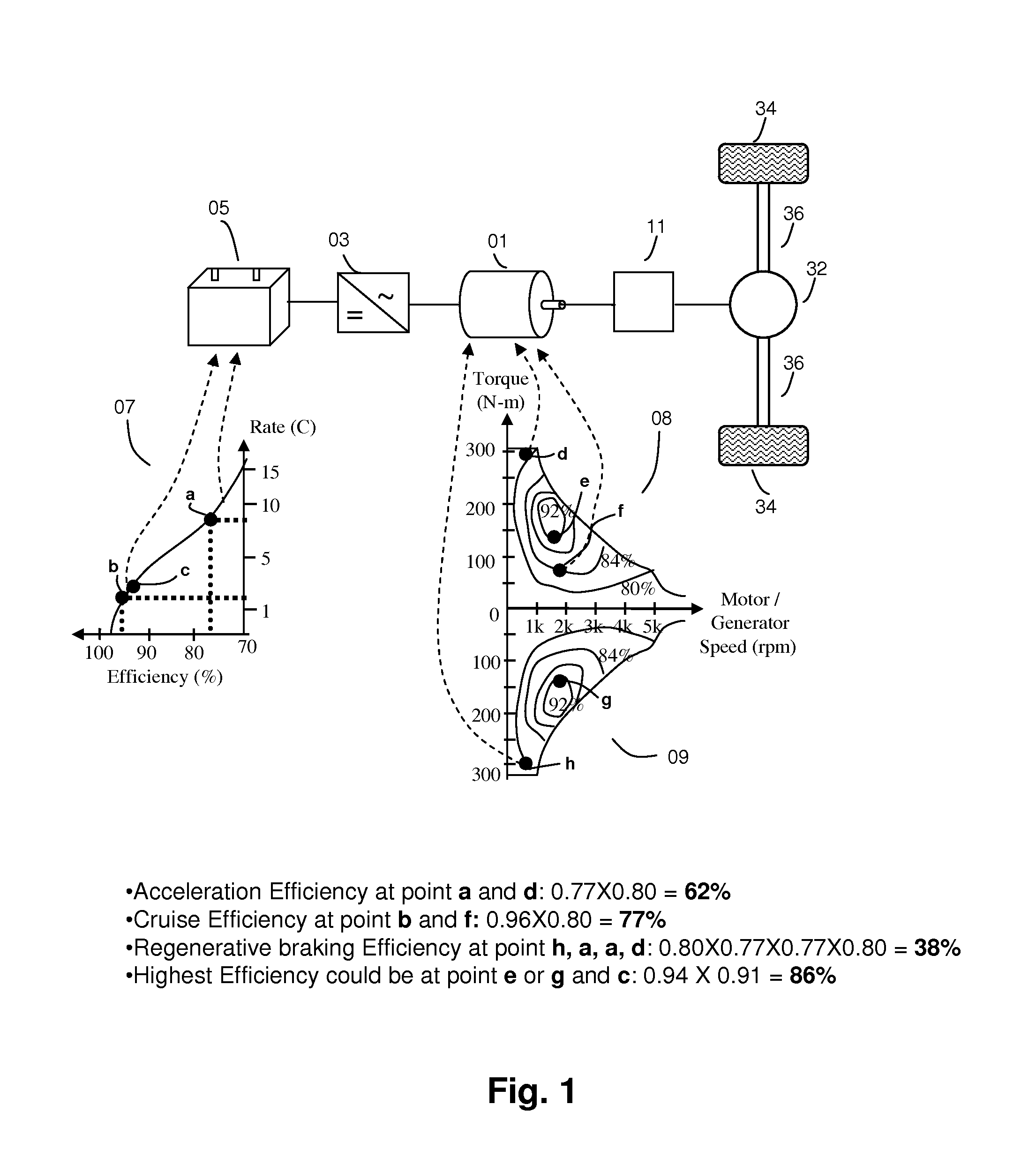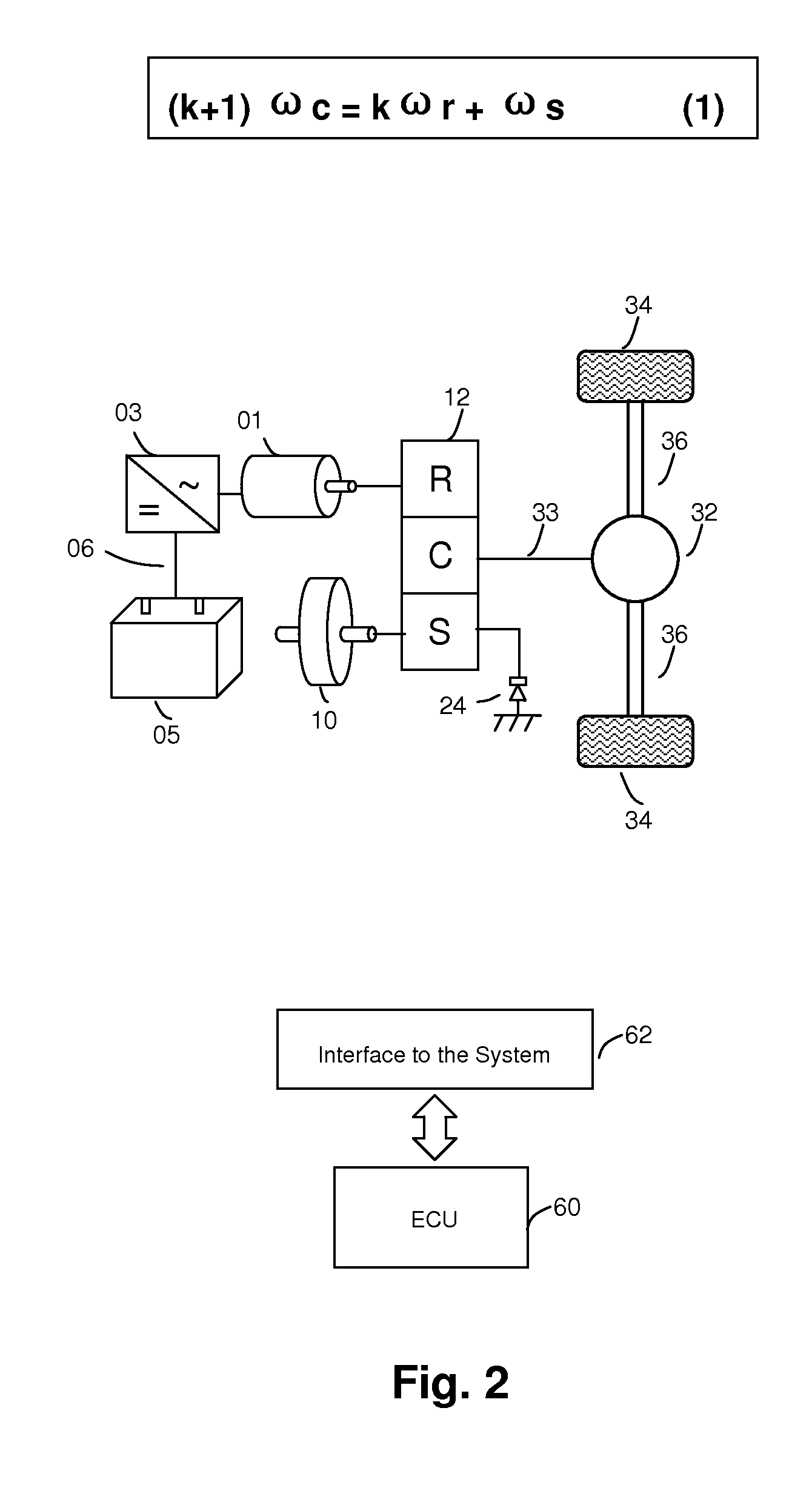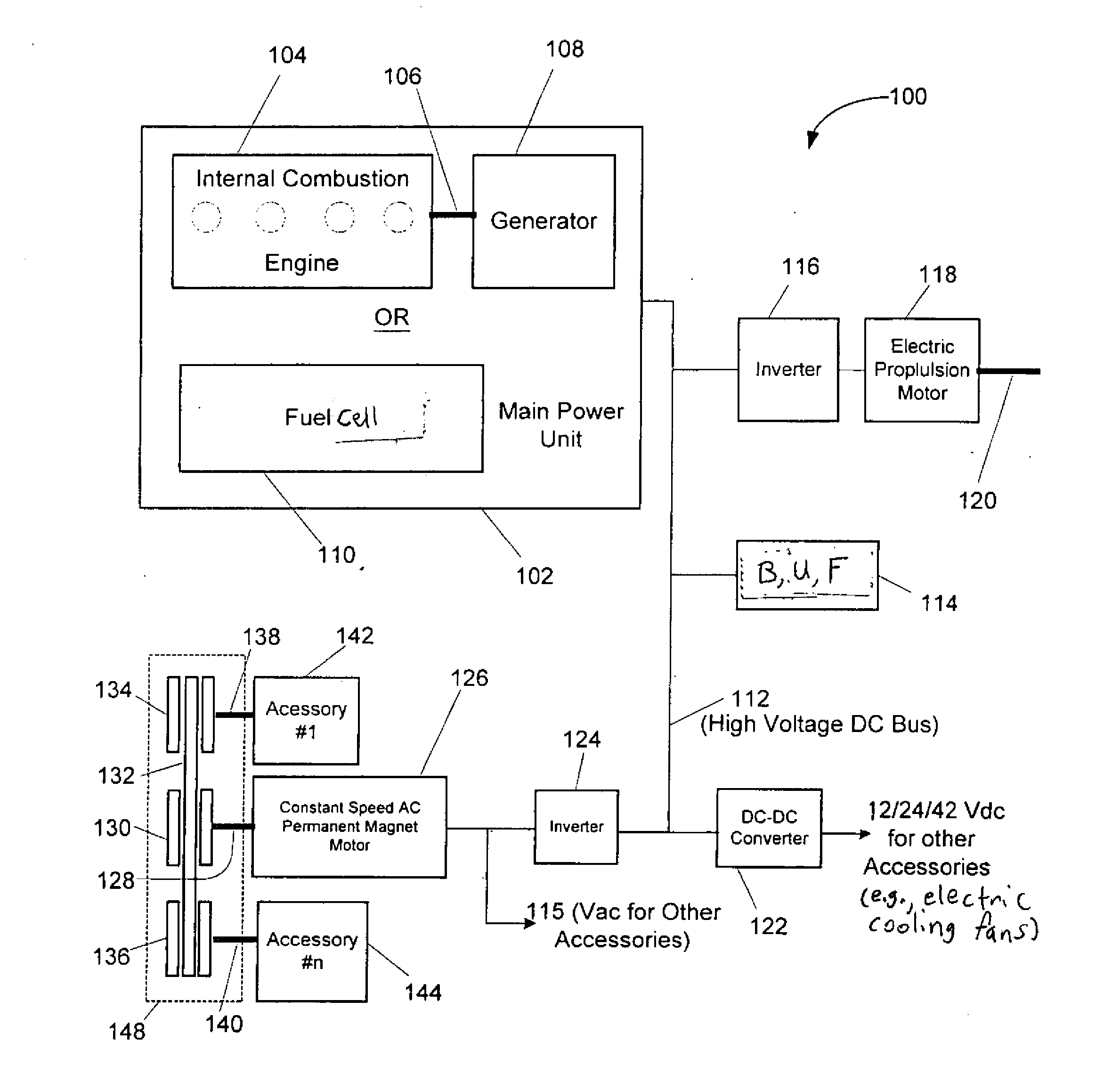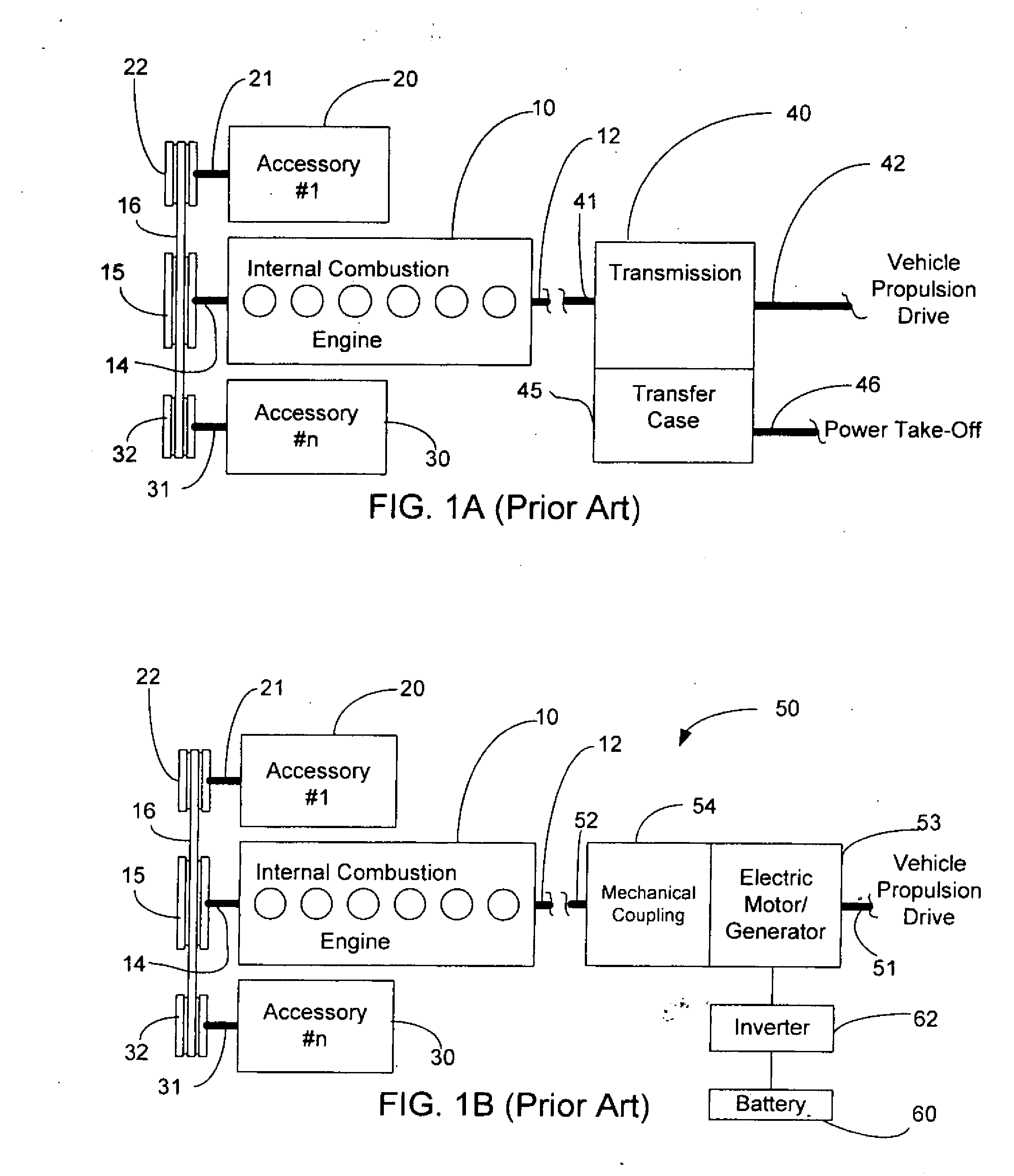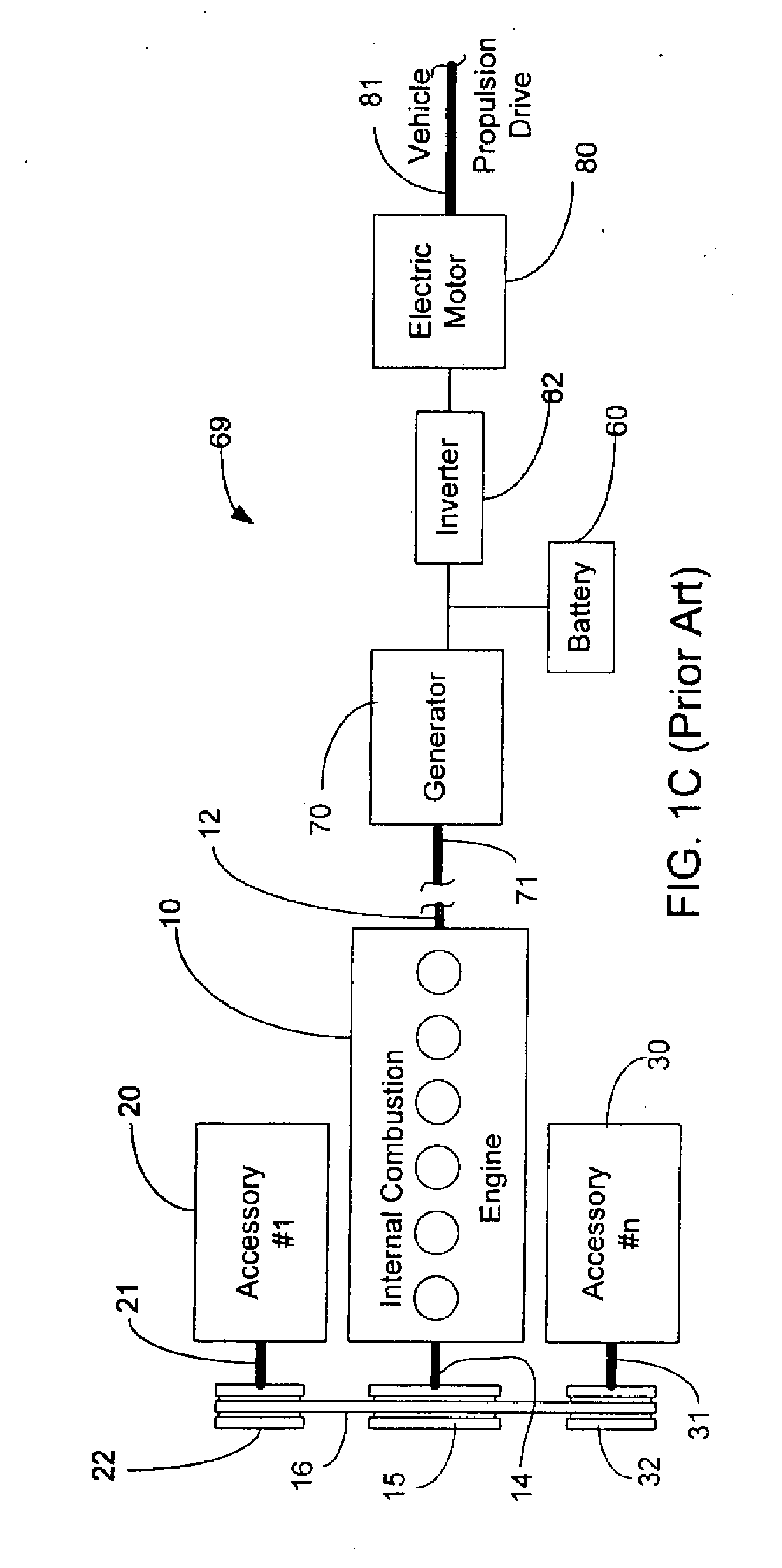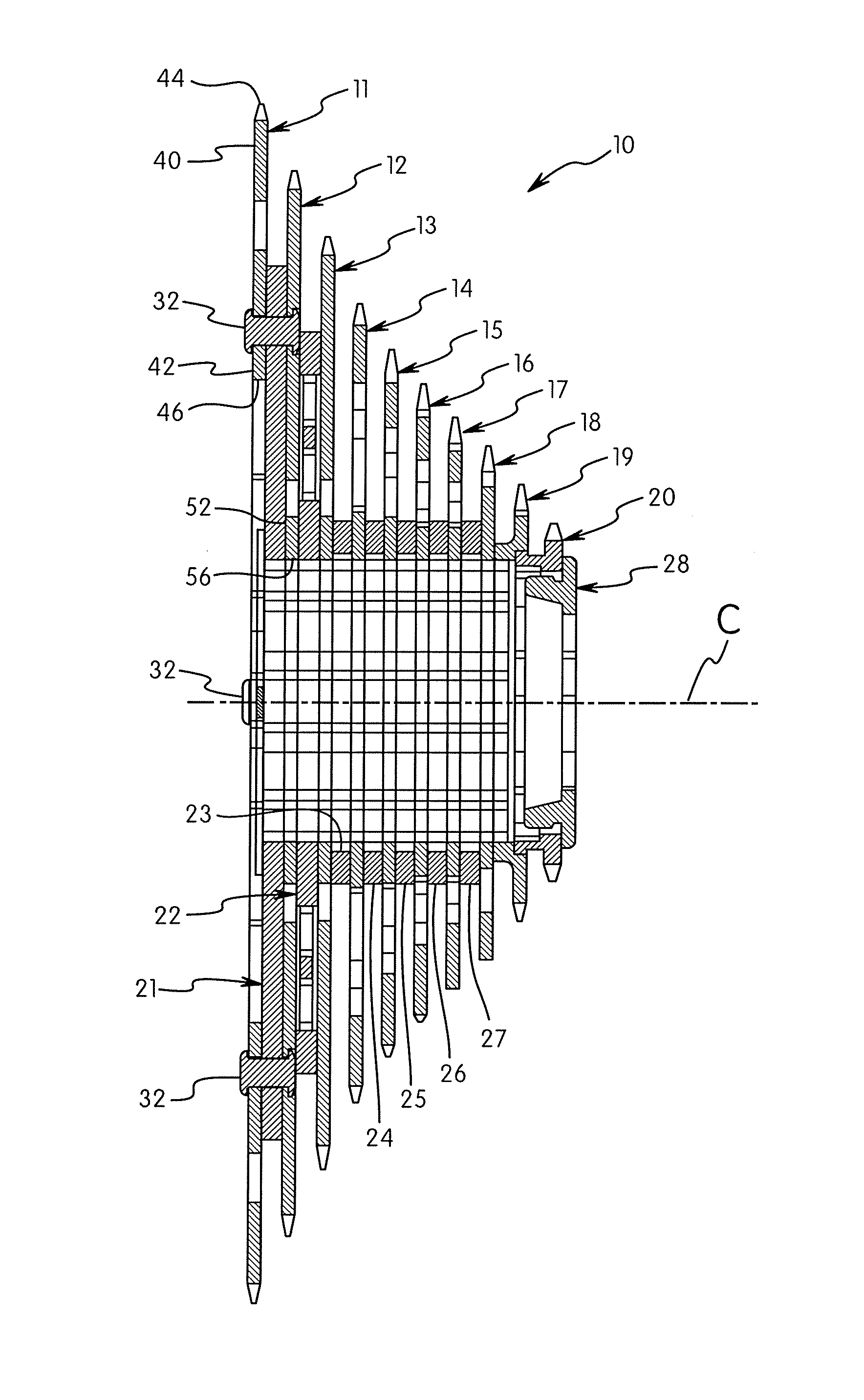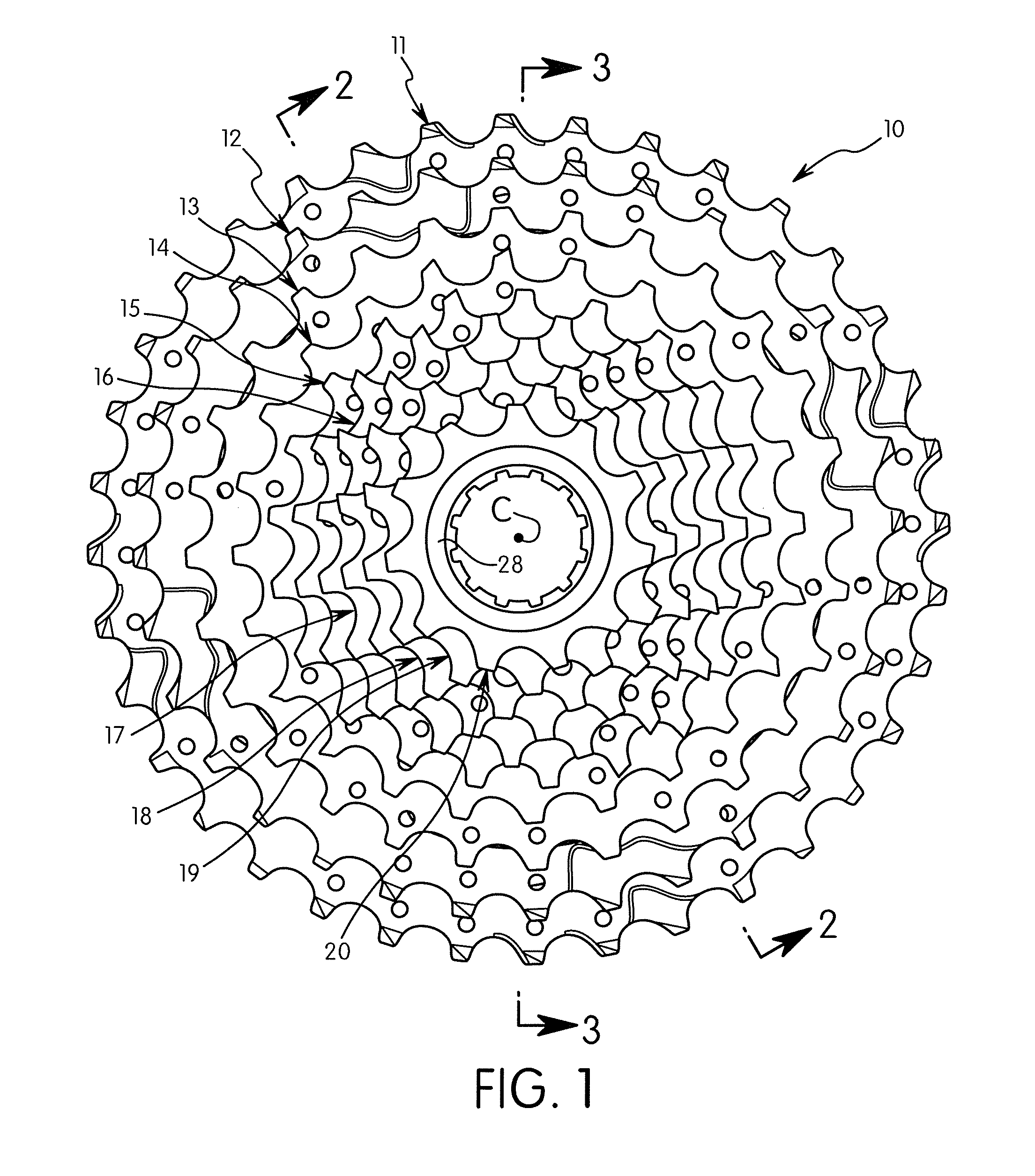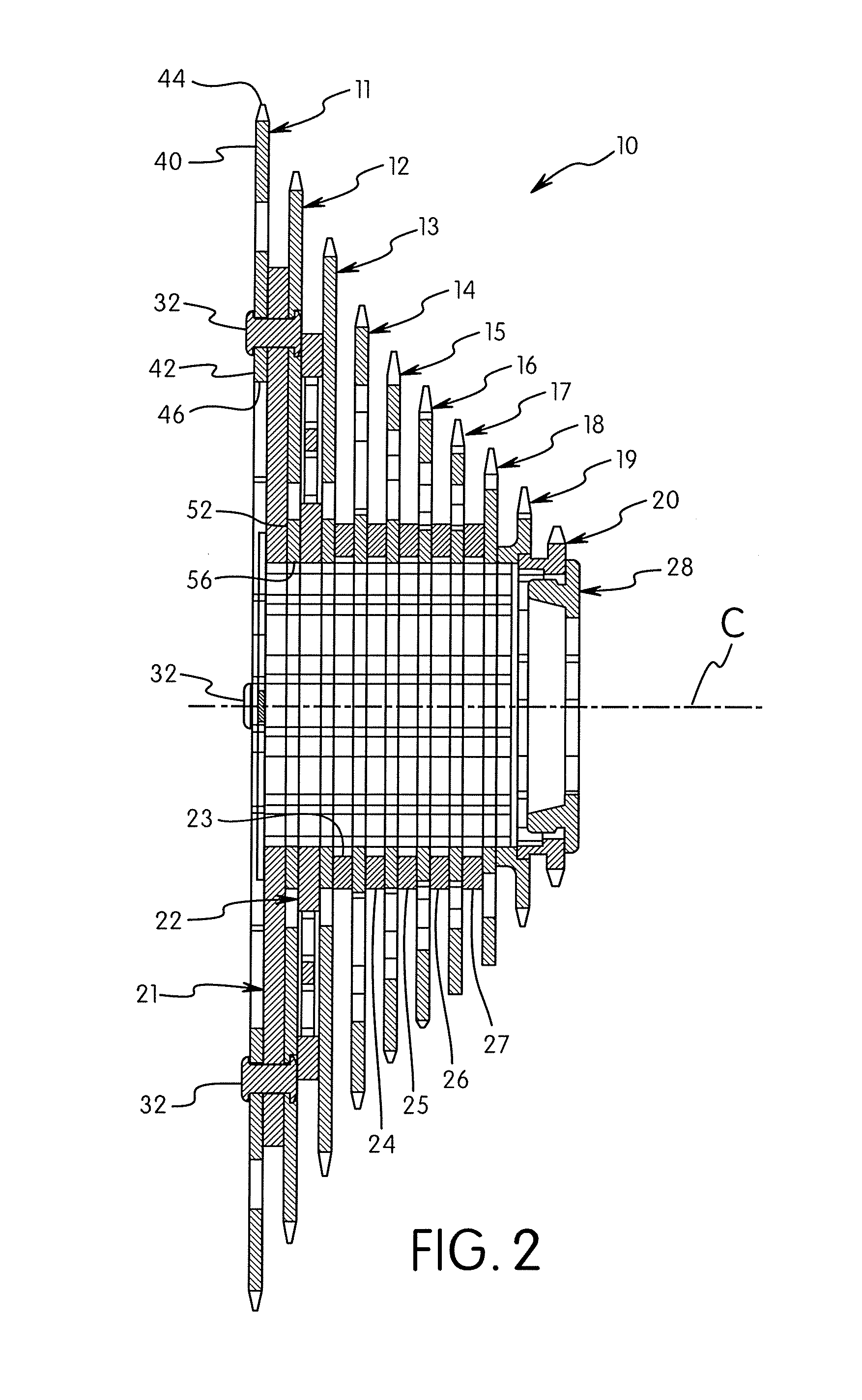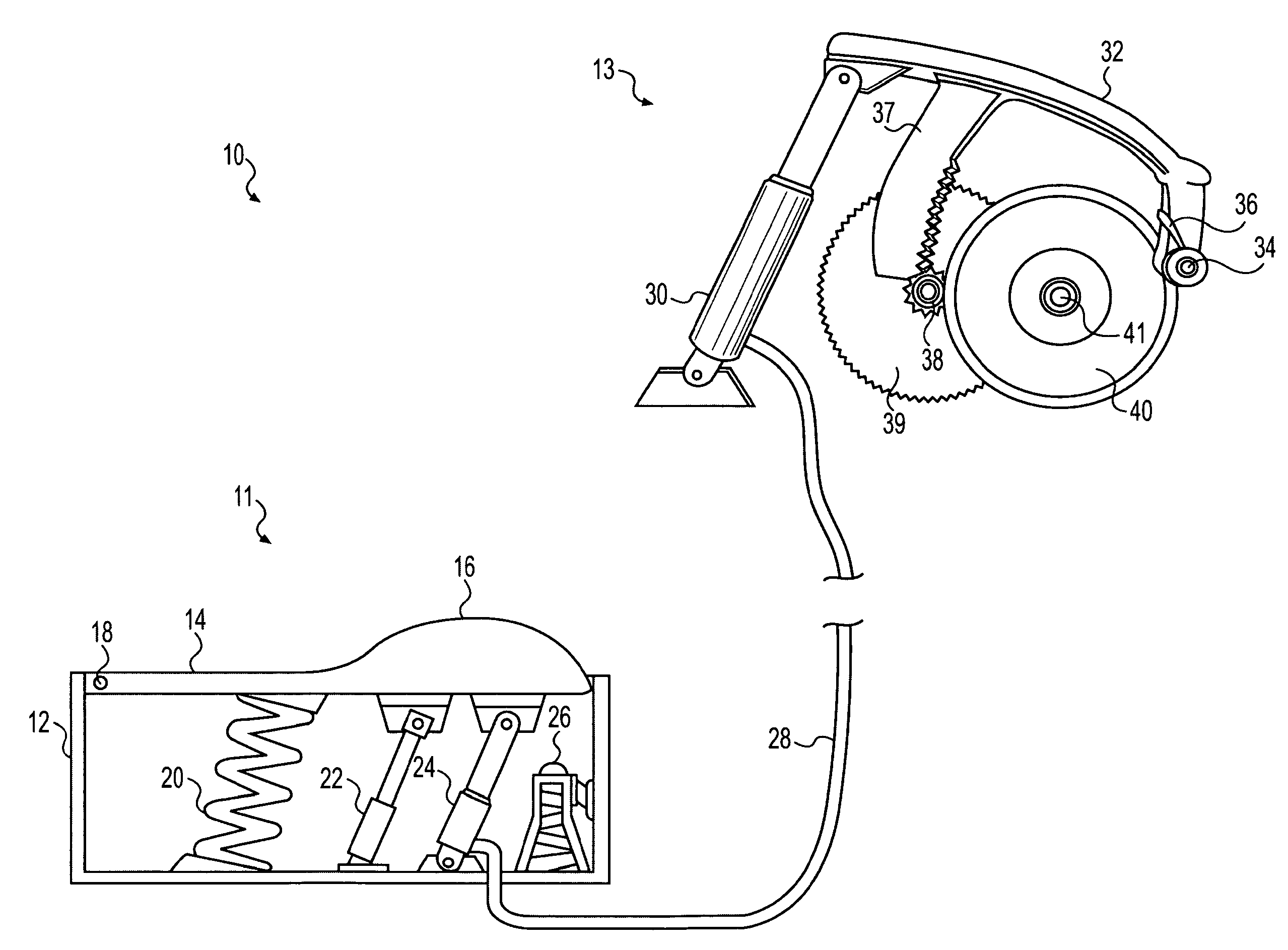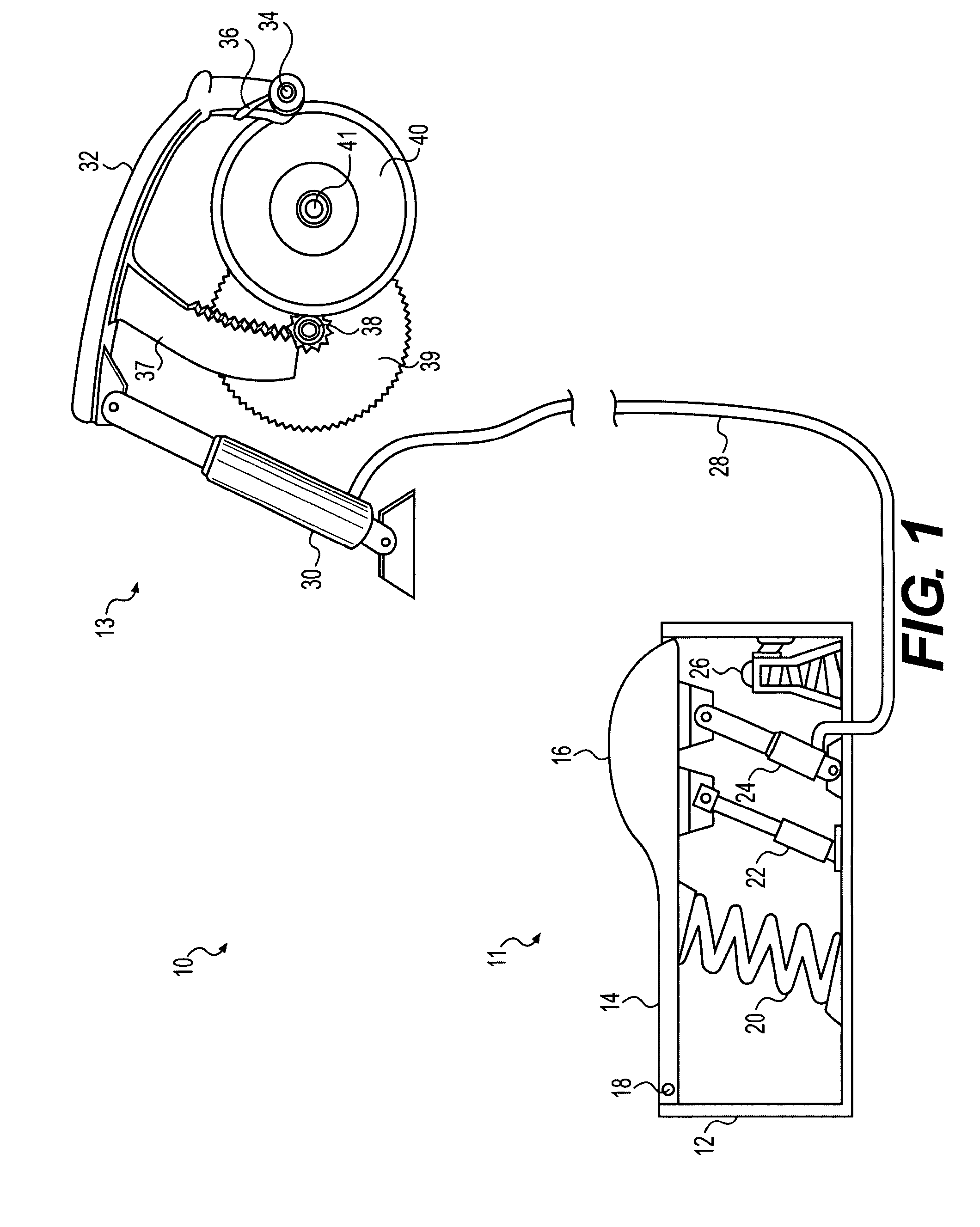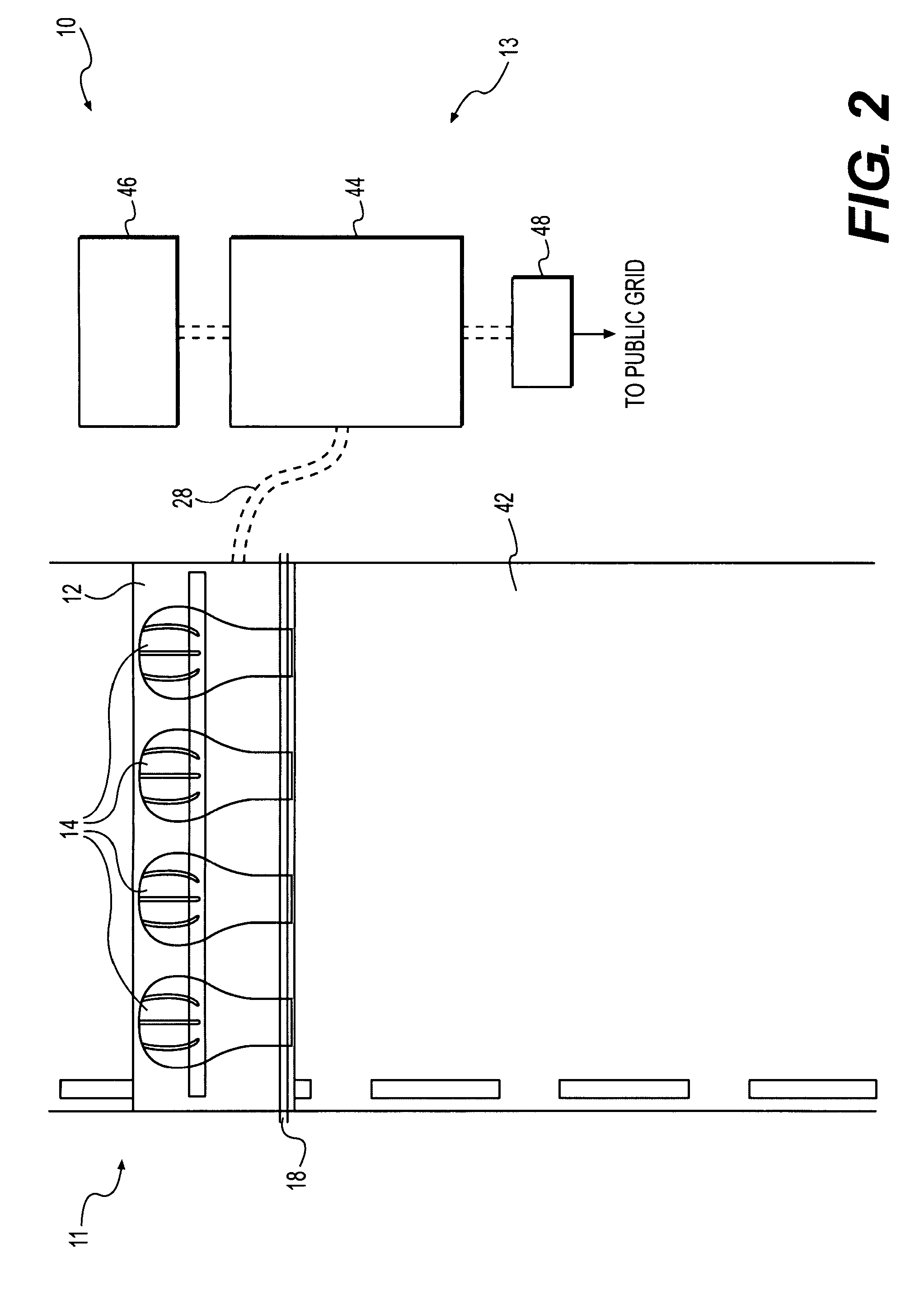Patents
Literature
Hiro is an intelligent assistant for R&D personnel, combined with Patent DNA, to facilitate innovative research.
11872 results about "Flywheel" patented technology
Efficacy Topic
Property
Owner
Technical Advancement
Application Domain
Technology Topic
Technology Field Word
Patent Country/Region
Patent Type
Patent Status
Application Year
Inventor
A flywheel is a mechanical device specifically designed to efficiently store rotational energy (kinetic energy). Flywheels resist changes in rotational speed by their moment of inertia. The amount of energy stored in a flywheel is proportional to the square of its rotational speed and its mass. The way to change a flywheel's stored energy without changing its mass is by increasing or decreasing its rotational speed. Since flywheels act as mechanical energy storage devices, they are the kinetic-energy-storage analogue to electrical capacitors, for example, which are a type of accumulator. Like other types of accumulators, flywheels smooth the ripple in power output, providing surges of high power output as required, absorbing surges of high power input (system-generated power) as required, and in this way act as low-pass filters on the mechanical velocity (angular, or otherwise) of the system.
Electrical motor driven nail gun
InactiveUS6705503B1Easy to handleReduce wearStapling toolsReciprocating drilling machinesEngineeringFlywheel
A portable electric nailing gun operating from a power supply. The motor accelerates a flywheel, which at the appropriate energy state is coupled through a mechanism to an anvil acting directly on the nail. The actuation is governed by a control circuit and initiated from a trigger switch. The stored energy delivered from the motor is coupled to the output anvil drives the nail. At least one position of the output anvil is sensed and once the nail is driven, the power is disconnected from the motor. This method uses a direct acting clutch and a harmonic motion nailing mechanism to reduce wear and increase robustness of the nailer. Elastic elements are used to limit stresses during the impact periods. The electrical control circuit and sensors allow precise control and improve safety. The power supply is preferably a rechargeable low impedance battery pack.
Owner:TRICORD SOLUTIONS
Lock-out for activation arm mechanism in a power tool
A power tool, such as a nailer, having a driver, a flywheel and an activation arm for selectively driving the driver into contact with the flywheel to transfer energy therebetween to cause the driver to translate. The power tool includes a bar that may be moved so as to resist movement of the activation arm in a direction that would bring the driver into contact with the flywheel. A method for operating a power tool is also provided.
Owner:BLACK & DECKER INC
Opposed piston internal combustion engine with inviscid layer sealing
InactiveUS9909492B2Close toleranceAccurate concentricityCombustion enginesReciprocating piston enginesDetonationCombustion
An opposed-piston engine that forms an inviscid layer between pistons and the respective cylinder walls. In an aspect, the opposed-piston engine utilizes a Scotch yoke assembly that includes rigidly connected opposed combustion pistons. In an aspect, the Scotch yoke assembly is configured to transfer power from the combustion pistons to a crankshaft assembly. In an aspect, the crankshaft assembly can be configured to have dual flywheels that are internal to the engine, and can be configured to assist with an exhaust system, a detonation system, and / or a lubrication system.
Owner:PRIME GRP ALLIANCE
Electronic control of a cordless fastening tool
A fastening tool that drives a fastener into a work-piece. The tool includes a motor that is connected to a transmission. The transmission includes a flywheel. The tool also includes a driver mechanism that is adapted to drive the fastener into the work-piece. The flywheel is connected to the driver mechanism when the flywheel is in a flywheel firing position. The tool includes a control module that detects a flywheel position and compares the flywheel position to the flywheel firing position. The control module also adjusts the flywheel position based on the comparison. The control module ensures that the transmission has enough rotations to ensure that enough momentum can be generated to drive the fastener into the work-piece.
Owner:BLACK & DECKER INC
Graphical user interface for selection of options from option groups and methods relating to same
A system providing a graphical user interface for the selection of options from option groups and method for implementing the same. A graphical user interface enables a user to see the results of applying virtual makeup to an image of a person's face. The interface may enable a user to select the color of the makeup to be applied through a circular region with a series of option tabs. The outer portion of the circular region, or the flywheel, may have multiple color segments. The color segments are arranged so that adjacent color segments may be perceived to be most similar. The inner portion of the circle may present the history of the colors previously chosen and may have an uncolored center circle, and a series of uncolored circles surrounding the center circle.
Owner:TAAZ
Lockup clutch with a compensation flywheel mass at the torsional vibration damper
A lockup clutch at a hydrodynamic torque converter is constructed with a torsional vibration damper which has a drive-side transmission element and a driven-side transmission element which is rotatable relative to the latter. Both of the transmission elements are provided with driving devices for driving elastic elements of a damping device. A carrier for a compensation flywheel mass is associated with the driven-side transmission element, wherein the carrier is connected with the turbine wheel on the one hand and with the driven-side driving device of the elastic elements on the other hand so as to be fixed with respect to rotation relative thereto and is provided at least with a cutout for receiving the compensation flywheel mass. The cutout has a guide path at least in its area of contact with the compensation flywheel mass, which guide path allows a movement of the compensation flywheel mass with at least one component perpendicular to the radial direction at the carrier.
Owner:ZF FRIEDRICHSHAFEN AG
Pump drivetrain damper system and control systems and methods for same
ActiveUS10316832B2Reduce vibrationLiquid resistance brakesPositive displacement pump componentsControl signalDrivetrain
Owner:SPM OIL & GAS INC
System and method for electronically controlling resistance of an exercise machine
ActiveUS20060003872A1Increases pedal resistanceDecreases pedal resistanceMovement coordination devicesMuscle exercising devicesElectrical resistance and conductanceControl system
A stationary exercise machine includes a system for electronically controlling a pedal resistance so as to simulate the riding of a road-going bicycle. The exercise machine includes a control system that monitors pedal velocity and that controls the resistive load generated by an electronically-controlled resistance mechanism. In one example, an electromagnetic device may vary a resistive load placed on a flywheel, which, in turn, varies the pedal resistance experienced by a user. When the user increases the pedal velocity, the resistance mechanism increases the resistive load. When the user decreases the pedal velocity, the resistance mechanism decreases the resistive load. In another example, the resistance mechanism varies the resistive load based on a gear selection by the user. The control system may also take into account other factors, such as the grade of the simulated ride, simulated wind resistance, or other frictional forces when calculating the resistive load.
Owner:CORE HEALTH & FITNESS
Variable magnetic resistance unit for an exercise device
InactiveUS7011607B2Realize automatic adjustmentRegulation stabilityMuscle exercising devicesMovement coordination devicesFreewheelRotation velocity
An automatically adjusting magnetic resistance unit for an exercise device such as a bicycle trainer, in which the degree of resistance is automatically and non-linearly adjusted in relation to the rotational speed of a rotating member caused by the input of a user. The rotating member may be in the form of a flywheel having a number of supports extending between a hub and a rim. The supports define longitudinal grooves which slidably retain magnets that are biased inwardly toward the hub by biasing members. An electrically conductive member is located adjacent the flywheel. As the flywheel rotates in response to rotation of the bicycle wheel, the magnets interact with the conductive member to establish eddy currents that provide resistance to the rotation of the flywheel. The speed of rotation of the flywheel increases as the speed of rotation of the bicycle wheel increases, and centrifugal forces act on the magnets to cause the magnets to slide outwardly along the grooves in opposition to the bias of the biasing members. The outward movement of the magnets causes outward movement of the eddy current forces, to increase the resistance provided to rotation of the flywheel and the bicycle wheel. The variable resistance due to the increased or decreased rotational speed of the flywheel is smooth, based on the constant interaction of the counteracting forces of the biasing members and the centrifugal forces acting on the magnets.
Owner:SARIS EQUIP LLC
System and method for regenerating exhaust system filtering and catalyst components
InactiveUS6865883B2Increase exhaust temperatureEasy loadingElectrical controlInternal combustion piston enginesParticulatesAlternator
A system and method for regenerating particulate filters, catalyzed soot filters and NOx catalysts for a vehicle having a compression ignition engine. An engine control module controls engine operation and regeneration functions. The engine preferably includes an integrated starter / alternator / flywheel / retarder assembly. A load bank heater is provided in the exhaust system that is activated to directly heat exhaust gases raising the temperature thereof and approaching the temperatures required for regeneration and desulfation. Activation of the heater applies a load through the integrated starter / alternator / flywheel / retarder assembly that increases the load on the engine and in turn further increases the temperature of the exhaust to levels required for regeneration and desulfation.
Owner:DETROIT DIESEL CORP
Exercise bike
ActiveUS20100234185A1Increase resistanceFrictional force resistorsMovement coordination devicesPower sensorAccelerometer
An exercise bike may include a magnetic braking system to resist rotation of a flywheel. The magnetic braking system may be magnets mounted on brackets selectively pivoted relative to the frame to increase or decrease the resistance opposing rotation of the flywheel. The brackets may be pivoted using a brake adjustment assembly joined to the brackets in such a manner that the magnetic forces resisting rotation of the flywheel increase or decrease in a proportional manner over at least a portion of the adjustment range of the brake adjustment assembly. The exercise bike may further include a console that displays information, such as power. The power may be estimated from a look-up table using the crank or flywheel speed of the exercise bike measured using a speed sensor and the tilt angle of the brackets relative to a reference point measured using a power sensor that includes an accelerometer.
Owner:NAUTILUS INC
Method and apparatus for converting thermal energy to mechanical energy
InactiveUS20060090467A1Improve efficiencyEfficient regenerationEricsson type enginesSteam engine plantsThermal energyWorking fluid
A method and apparatus for converting thermal energy to mechanical energy which can use a wide range of fuels and perform with a high efficiency. Operating on a little utilized thermodynamic cycle of isentropic compression, isothermal expansion, isentropic expansion and finally constant pressure cooling and contraction. The external heat engine utilizes a heat exchanger carrying heat from the external energy source to the working parts of the engine. Pistons and cylinders are activated by appropriate means to adiabatically compress the working fluid, for example ambient air, to transfer the entire mass of the air through the heat exchanger to accomplish isothermal expansion followed by adiabatic expansion and, finally, exhaust the air to ambient to allow for constant pressure cooling and contraction. Valve pistons in conjunction with the cylinders form valves that allow for the exchange of working fluid with ambient. Energy is added to the engine during isothermal expansion, whereby the energy of compression is added by a flywheel or other appropriate energy storage means, said flywheel stores energy recovered during adiabatic expansion. The thermodynamic cycle described and the engine embodiments disclosed, when run in reverse, perform as a heat pump or refrigeration device.
Owner:CROW DARBY
Freewheel for a bicycle
A freewheel is provided for mounting a plurality of sprockets on an axle of a bicycle. The freewheel basically includes an inner tubular body, an outer tubular body coaxially mounted on the inner tubular body with a bearing assembly rotatably coupling the inner tubular body to the outer tubular body. A one-way clutch is coupled between the inner tubular body and the outer tubular body to allow one-way rotation between the inner and outer tubular bodies. In the preferred embodiment, seven sprockets are mounted on the exterior of the outer tubular body. The bearing assembly has a pair of ball bearing races of the same diameter located at one end. An outer ball race or housing and a side plate are utilized in conjunction with the inner tubular body to fixedly secure the first and second ball bearings on the exterior surface of the inner tubular body. The inner tubular body with the bearings is then fixedly coupled to the outer tubular body so that the outer tubular body can rotate relative to the inner tubular body. The one-way clutch includes a pair of pawls attached to the inner tubular body and a set of ratchet teeth formed on the inner tubular body. The ratchet teeth are rotated between splines that are formed on the exterior surface of the outer body so as to maximize strength and minimize material. The outer tubular body has a step-shaped configuration with a plurality of abutment stoppers formed on the splines of the largest section such that some of the sprockets are installed from one direction and the other sprockets are installed in a second direction.
Owner:SHIMANO SINGAPORE PRIVATE LTD +1
Exercise bike
An exercise bike may include a magnetic braking system to resist rotation of a flywheel. The magnetic braking system may be magnets mounted on brackets selectively pivoted relative to the frame to increase or decrease the resistance opposing rotation of the flywheel. The brackets may be pivoted using a brake adjustment assembly joined to the brackets in such a manner that the magnetic forces resisting rotation of the flywheel increase or decrease in a proportional manner over at least a portion of the adjustment range of the brake adjustment assembly. The exercise bike may further include a console that displays information, such as power. The power may be estimated from a look-up table using the crank or flywheel speed of the exercise bike measured using a speed sensor and the tilt angle of the brackets relative to a reference point measured using a power sensor that includes an accelerometer.
Owner:NAUTILUS INC
Starter for an internal combustion engine
InactiveUS6098584AInexpensive solutionMore time-consumingPower operated startersInternal combustion piston enginesStarter generatorEngineering
PCT No. PCT / DE97 / 01663 Sec. 371 Date Sep. 22, 1998 Sec. 102(e) Date Sep. 22, 1998 PCT Filed Aug. 7, 1997 PCT Pub. No. WO98 / 20252 PCT Pub. Date May 14, 1998The starter apparatus for an internal combustion engine (2) includes a starter-generator including a device for rotating a flywheel (5) to a predetermined rotational speed and a device for rotating the crankshaft (3) of the engine to directly start the engine; at least one clutch (6, 7) for directly coupling or disengaging the flywheel (5) with the crankshaft (3) of the engine (2) so that the flywheel (5) starts the engine (2) with the rotational energy stored in the flywheel (5) by the starter-generator in an impulse starting method and a changeover device (11) for changing between the impulse starting method based on engagement of the flywheel (5) with the engine (2) and a direct starting method in which the starter-generator (4) is directly coupled to the engine, wherein the changeover device switches between the direct starting method and the impulse starting method as a function of a temperature of the engine (2) so that the impulse starting method is used at comparatively lower temperatures and the direct-starting method is used at comparatively higher temperatures. The starter apparatus also includes a device for adaptively determining the threshold for changeover between impulse starting and direct starting.
Owner:ROBERT BOSCH GMBH
Portable electrical motor driven nail gun
A portable electric nailing gun operating from a power supply. The motor accelerates a flywheel which at the appropriate energy state is coupled through a mechanism to an anvil acting directly on the nail. The actuation is governed by a control circuit and initiated from a trigger switch. The motor accelerates a flywheel that is then clutched to the output anvil causing the nail to be driven. The position of the output anvil is sensed and once the nail is driven, the motor is dynamically braked reducing the excess energy in the flywheel. This method uses a highly responsive motor and power supply which enables the motor to come up to speed, drive the nail and return to a low energy condition in less than 2 seconds. The electrical control circuit and brake allow precise control and improve safety. The power supply is preferably a rechargeable low impedance battery.
Owner:TRICORD SOLUTIONS
Exerciser having magnetic retarding device
InactiveUS7004888B1Different strengthSuitable for operationFrictional force resistorsMovement coordination devicesFlywheelBrake shoe
An exerciser includes a flywheel rotatably attached onto a frame and coupled to a pair of foot pedals with a transmission device, an arch having one end rotatably coupled to the frame, one or more magnetic members attached to the arch and moveable toward or away from the flywheel, to adjust the magnetic retarding force to the flywheel. A brake shoe is attached to the other end of the arch, and movable to engage with and to brake the flywheel. A spring may bias the arch and the brake shoe away from the flywheel, to allow the brake shoe to be moved toward and against the flywheel and to brake the flywheel selectively. An actuating device may force the brake shoe of the arch to engage with and to brake the flywheel.
Owner:LUNG TUNG HAI +2
Lightweight Portable Electric Generator with Integrated Starter/Alternator
ActiveUS20070227470A1Improve torque performanceLow costMagnetic circuit rotating partsAir coolingAlternatorFuel efficiency
A compact and lightweight electric generator for portable power applications employs a new engine design and integration approach for reducing engine, generator, and starter weight. A unique flywheel alternator / starter configuration that generates electrical power, rotates the engine for starting, provides inertia for smooth engine operation, pressurized air for cooling, and inertia for the alternator. An engine cowling provides rotating component protection, a fan shroud mechanism, cooling air ducts, and a cooling mechanism for handling large quantities of heat produced by rectified power conversion. An electrical hook up that allows the generator to provide transient surge capacity for starting inductive loads, or improved load leveling and fuel efficiency.
Owner:MAINSTREAM ENG
System for generating electricity by using gravitational mass and/or momentum of moving vehicle
InactiveUS7067932B1Decrease the inclinationMachines/enginesMechanical energy handlingMobile vehicleElectricity
A mechano-electrical energy generation system generates electrical energy from the passage of a vehicle over an inclined ramp assembly. This assembly includes an incline ramp that is rotatable about an axis proximate a vehicle roadway surface, and a safety decline ramp hinged with and rotatable with the incline ramp. The incline ramp is coupled via a roller assembly to a gravity wheel that drives a flywheel coupled to an electrical generator. As a result, passage of the vehicle over the incline ramp rotates the wheel via the roller assembly and drives the flywheel so that the electrical generator outputs electrical energy. When the vehicle exits the safety decline ramp, a counterweight rotates the wheel in a reverse direction, so as to bring the incline ramp and safety decline ramp to back to their original inclined positions above the roadway surface.
Owner:SUNMAN ENG
Motor having an integrated torque sensor
A motor unit comprises a housing for containing a motor, a motor shaft for receiving a motor provided driving force, a torque sensor mechanism for detecting torque, and a controller for controlling power to the motor in response to a detected amount of torque. An actuator couples the torque sensor to a sensor of the controller. The actuator is configured to move relative to the controller sensor thereby causing the sensor to produce a signal indicative of the detected level of torque. The controller is contained within the housing of the motor. The motor unit may also have an auxiliary shaft for receiving an externally provided driving force with a first torque transmission path for transferring the externally provided driving force to a drive mechanism and a second torque transmission path for transferring the motor provided driving force to said drive mechanism. A first one way drive means is provided in the first torque transmission path between the auxiliary shaft and the drive mechanism such that when the drive mechanism is being driven by the motor provided driving force through the second torque transmission path, the auxiliary shaft is able to freewheel. The motor unit can drive any apparatus, but may be used in a pedal driven apparatus such as a bicycle where an externally provided driving force is provided by manually operable pedals of said apparatus which are fixed for rotation with the auxiliary shaft. In this case, the auxiliary shaft comprises a pedal spindle of the bicycle and the drive mechanism comprises a sprocket or belt drive.
Owner:FOSTER ASSETS CORPORATION
Monowheel Type Vehicle
An engine-propelled monowheel vehicle comprises two wheels, close together, that circumscribe the remainder of the vehicle. When the vehicle is moving forward, the closely spaced wheels act as a single wheel, and the vehicle turns by leaning the wheels. A single propulsion system provides a drive torque that is shared by the two wheels. A separate steering torque, provided by a steering motor, is added to one wheel while being subtracted from the other wheel, enabling the wheels to rotate in opposite directions for turning the vehicle at zero forward velocity. The vehicle employs attitude sensors, for sensing roll, pitch, and yaw, and an automatic balancing system. A flywheel in the vehicle spins at a high rate around a spin axis, wherein the spin axis is rotatable with respect to the vehicle's frame. The axis angle and flywheel spin speed are continually adjustable to generate torques for automatic balancing.
Owner:LEESER KARL F
Motor/flywheel assembly with shrouded radial cooling fan
A flywheel / motor assembly is disclosed that comprises a motor housing having a sidewall and an end wall extending substantially perpendicularly from the sidewall. The end wall enclose a motor assembly having a rotatable shaft extending therefrom. The motor housing has at least one air flow opening therethrough. A flywheel is coupled to the shaft, and includes a pulley side and a motor side opposite the pulley side, wherein the motor side is aligned substantially with the end wall and does not extend over the sidewall. A plurality of vanes are associated with the flywheel, wherein adjacent vanes form channels therebetween. A ring is coupled to the plurality of vanes and at least partially encloses the channels and forms exhaust ports away from the shaft. Rotation of the flywheel draws air through the motor housing's openings into the channels and out the exhaust ports. The pulley side may include balancing bores for receiving balancing material to balance the finished assembly. An angular interference fit between the flywheel and motor shaft may also assist in balancing the finished assembly. A ventilation fan system may also be connected to the shaft at an end opposite the flywheel.
Owner:AMETEK INC
Dual flywheel axially compact epicyclical drive
The epicyclical drive incorporates a dual flywheel carrying a pinion in a balanced axially compact assembly. The assembly includes a counterweight for the pinion nested between the flywheels, which also connects the flywheels and transfers loading conditions therebetween, to reduce and distribute torsional and eccentric loading conditions and reduce vibrations. The use of a second flywheel also provides an improved rotary seal capability for keeping out dust, debris and moisture. The drive is adapted for incorporation into a floor of a header of an agricultural harvesting machine for reciprocatingly driving a sickle thereof, advantageously jointly with a mirror image companion drive in a side by side relationship and timed such that forces generated by the reciprocating actions are cancelled.
Owner:BLUE LEAF I P INC
Methods and systems for stopping an engine
ActiveUS20130297191A1Improve engine stoppingIncrease torqueHybrid vehiclesAnalogue computers for vehiclesFlywheelThrottle
Owner:FORD GLOBAL TECH LLC
Variable speed transmission for a rotary wing aircraft
ActiveUS20060269414A1Maximize aircraft performanceFacilitates different flight spectrumPropellersPump componentsFreewheelGear wheel
A transmission gearbox for a rotary-wing aircraft includes a main gearbox and a variable speed gearbox in meshing engagement with the main rotor gearbox. The variable speed gearbox permits at least two different RPMs for the main rotor system without disengaging the engine(s) or changing engine RPMs. The variable speed gearbox includes a clutch, preferably a multi-plate clutch, and a freewheel unit for each engine. A gear path drives the main gearbox in a “high rotor speed mode” when the clutch is engaged to drive the main rotor system at high rotor rpm for hover flight profile. A reduced gear path drives the main gearbox in a “low rotor speed mode” when the clutch is disengaged and power is transferred through the freewheel unit, to drive the main rotor system at lower rotor rpm for high speed flight. The variable speed gearbox may be configured for a tail drive system that operates at a continuous speed, a tail drive system that changes speed with the main rotor shaft or for no tail drive system.
Owner:ACRESSO SOFTWARE +1
Satellite posture all-round controlling method based on magnetic moment device and flywheel
InactiveCN101934863ASimple configurationImprove securityCosmonautic vehiclesSpacecraft guiding apparatusMagnetic tension forceControl system
The invention discloses a satellite posture all-round controlling method based on a magnetic moment device and a flywheel, relating to an all-round posture controlling method for completing a satellite orbit-injection phase by using the magnetic moment device and the flywheel. The invention solves the problems of low reliability and short service life of the traditional satellite posture all-round controlling technology. The satellite posture all-round controlling method comprises the following steps of: 1, setting controller parameters according to the requirement of a control system; 2, measuring a geomagnetic field intensity vector Bb, a satellite angular velocity vector Wb and a solar azimuth, and sending the measured data to a satellite controller; 3, calculating an expected control moment vector Tm and a control magnetic moment vector Mm, and sending the control magnetic moment vector Mm to the magnetic moment device; 4, acquiring an effective solar azimuth vector Alfa; 5, calculating a control input moment vector Tw and sending to the flywheel; and 6, jointly completing the satellite posture all-round control by the magnetic moment device according to the control magnetic moment vector Mm and the flywheel according to the control input moment vector Tw. The invention is suitable for the field of satellite posture control.
Owner:HARBIN INST OF TECH
Powertrain and Method for a Kinetic Hybrid Vehicle
InactiveUS20120197472A1Minimal energy conversion and conversionImprove performanceDigital data processing detailsToothed gearingsGear systemFlywheel
A kinetic hybrid device and method for a vehicle may include a planetary gear system configured as a continuously variable transmission comprised of three or four ports. The kinetic hybrid device and method may include a flywheel connected to a first port of the system, a final drive connected to a second port of the system, and the variator for the flywheel connected to a third or fourth port of the system. The prime mover and / or other power sources may share a port with the flywheel, but do not share a port with the final drive.
Owner:HE JING +1
System and Method for Powering Accessories in a Hybrid Vehicle
InactiveUS20070103002A1Plural diverse prime-mover propulsion mountingPower to auxillary motorsFlywheelInternal combustion engine
A heavy-duty hybrid vehicle power system includes a main power unit located in an engine compartment; an electric propulsion motor; a DC bus that receives DC power from the main power unit; a vehicle accessory traditionally powered directly from an internal combustion engine of a conventional heavy-duty vehicle and requiring more than 1 kilowatt of power; an electric accessory motor, which is electrically coupled with the DC bus and mechanically coupled with the vehicle accessory, configured to supply power to the vehicle accessory, and the electric accessory motor and vehicle accessory carried by the heavy-duty vehicle either inside or outside of the engine compartment; and at least one of an ultracapacitor pack and a fly wheel coupled with the DC bus and configured to store power when the main power unit is on and supply power in place of the main power unit when the main power unit is off.
Owner:SHEPPARD MULLIN RICHTER & HAMPTON
Bicycle sprocket assembly
A bicycle sprocket assembly is provided with at least a first sprocket, a second sprocket and a first axial spacer. The first sprocket includes an outermost peripheral portion defining a plurality of first teeth, and an innermost peripheral portion defining an opening that is free of any freewheel engaging splines. The first sprocket is larger than any other sprocket of the bicycle sprocket assembly. The second sprocket includes an outermost peripheral portion defining a plurality of second teeth, and an innermost peripheral portion defining an opening having a plurality of freewheel engaging splines. The first axial spacer is fixed to the first and second sprockets such that the first axial spacer is disposed between the first and second sprockets without any intervening sprockets disposed between the first and second sprockets. The first axial spacer includes an innermost peripheral portion defining an opening having a plurality of freewheel engaging splines.
Owner:SHIMANO INC
Systems for generating useful energy from vehicle motion
InactiveUS7541684B1Batteries circuit arrangementsSecondary cells charging/dischargingHydraulic cylinderMotion generation
A system for generating useful energy from vehicle motion. The system includes: a projection projecting above a road surface, pivotably mounted to the road surface to be pushed downward against an upward bias, by a vehicle tire passing over an upper surface of the projection; a master fluid cylinder mechanically linked to the projection; a fluid transfer device connected to the master fluid cylinder; a secondary fluid cylinder, communicating with the master fluid cylinder via the fluid transfer device; and a lever configured to transfer motion from the secondary fluid cylinder to a flywheel shaft, the flywheel shaft having a distal end coupled to an electric generator.
Owner:VALENTINO JOSEPH A
Features
- R&D
- Intellectual Property
- Life Sciences
- Materials
- Tech Scout
Why Patsnap Eureka
- Unparalleled Data Quality
- Higher Quality Content
- 60% Fewer Hallucinations
Social media
Patsnap Eureka Blog
Learn More Browse by: Latest US Patents, China's latest patents, Technical Efficacy Thesaurus, Application Domain, Technology Topic, Popular Technical Reports.
© 2025 PatSnap. All rights reserved.Legal|Privacy policy|Modern Slavery Act Transparency Statement|Sitemap|About US| Contact US: help@patsnap.com
